Program Highlights
Fellow, Biomaterials Science and Engineering
- Session TrackLuncheon Seminar
- Session TitleFBSE WBC - Fellows Debate
- Session CodeSP-T14-0378
- Date & Time / RoomMay 28 (Tue) 12:20~13:30 / Room 306-A
FBSE WBC - Fellows Debate
Motion: "This house believes that organ on a chip and organoids will in the future replace/reduce traditional in-vitro and in-vivo testing in the regulatory approval of biomaterials and drugs”
Chair/moderator: Rui L. Reis, 3B´s Research Group, University of Minho, Portugal, Chair of the Steering Committee of the Fellows in Biomaterials Science and Engineering (FBSE)
- Introduction of the debate rules and to the motion – Rui L. Reis
- For the proposition team
o Milica Radisic (University of Toronto, Canada)
o Changyou Gao (Zhejiang University, China)
- For the opposition team
o Laura Poole-Warren (University of New South Wales, Australia)
o Bikramjit Basu (India Institute of Sciences, India)
- Organizer
-
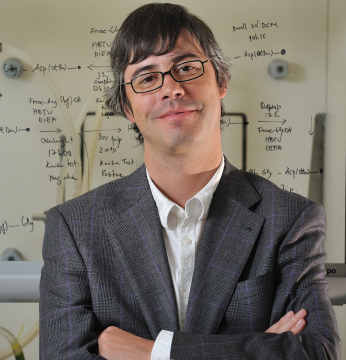 Rui Reis (3B's Research Group/Univ. Minho, Portugal)
Rui Reis (3B's Research Group/Univ. Minho, Portugal)
- Chair
-
 Rui Reis (3B's Research Group/Univ. Minho, Portugal)
Rui Reis (3B's Research Group/Univ. Minho, Portugal)
- Invited Speaker
-
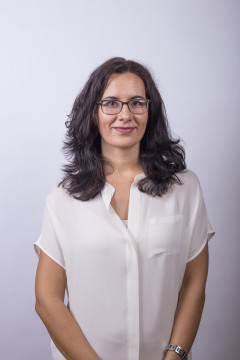 12:20~12:35
Milica Radisic (University of Toronto, Canada)
12:20~12:35
Milica Radisic (University of Toronto, Canada)
Milica Radisic
(University of Toronto, Canada) Dr. Milica Radisic is a Professor at the University of Toronto, Tier 1 Canada Research Chair in Organ-on-a-Chip Engineering and a Senior Scientist at the Toronto General Research Institute. She is also Director of the NSERC CREATE Training Program in Organ-on-a-Chip Engineering & Entrepreneurship and a co-lead for the Center for Research and Applications in Fluidic Technologies. She is a Fellow of the Royal Society of Canada-Academy of Science, Canadian Academy of Engineering, the American Institute for Medical & Biological Engineering, Tissue Engineering & Regenerative Medicine Society as well as Biomedical Engineering Society. She was a recipient of the MIT Technology Review Top 35 Under 35, Queen Elizabeth II Diamond Jubilee Medal, NSERC E.W.R Steacie Fellowship, YWCA Woman of Distinction Award, Killam Fellowship, Acta Biomaterialia Silver Medal, and Humboldt Research Award to name a few. Her research focuses on organ-on-a-chip engineering and development of new biomaterials that promote healing and attenuate scarring. She developed new methods to mature iPSC derived cardiac tissues using electrical stimulation. She is an Executive Editor for ACS Biomaterials Science & Engineering, Senior Consulting Editor for the Journal of Molecular and Cellular Cardiology, a reviewing editor for eLife and a member of the editorial board of another 8 journals. She served on the Board of Directors for Ontario Society of Professional Engineers, Canadian Biomaterials Society and McMaster University Alumni Association. She organized Keystone, EMBO and ECI conferences and numerous sessions at TERMIS and BMES meetings. She served as a Scientific Officer for the Canadian Institutes of Health Research and member of review panels for CIHR, NIH and Israel Ministry of Education. She is the Chair of Investment Committee for Serbia Innovation Fund. She is a co-founder of two companies TARA Biosystems (acquired by Valo Health), that uses human engineered heart tissues in drug development and safety testing, and Quthero that advances regenerative hydrogels. Her work has been presented in over 260 publications, garnering over 20,000 citations with an h-index of 71. Her publications appeared in Cell, Nature Materials, Nature Methods, Nature Protocols, Nature Communications, PNAS etc.
Dr. Milica Radisic is a Professor at the University of Toronto, Tier 1 Canada Research Chair in Organ-on-a-Chip Engineering and a Senior Scientist at the Toronto General Research Institute. She is also Director of the NSERC CREATE Training Program in Organ-on-a-Chip Engineering & Entrepreneurship and a co-lead for the Center for Research and Applications in Fluidic Technologies. She is a Fellow of the Royal Society of Canada-Academy of Science, Canadian Academy of Engineering, the American Institute for Medical & Biological Engineering, Tissue Engineering & Regenerative Medicine Society as well as Biomedical Engineering Society. She was a recipient of the MIT Technology Review Top 35 Under 35, Queen Elizabeth II Diamond Jubilee Medal, NSERC E.W.R Steacie Fellowship, YWCA Woman of Distinction Award, Killam Fellowship, Acta Biomaterialia Silver Medal, and Humboldt Research Award to name a few. Her research focuses on organ-on-a-chip engineering and development of new biomaterials that promote healing and attenuate scarring. She developed new methods to mature iPSC derived cardiac tissues using electrical stimulation. She is an Executive Editor for ACS Biomaterials Science & Engineering, Senior Consulting Editor for the Journal of Molecular and Cellular Cardiology, a reviewing editor for eLife and a member of the editorial board of another 8 journals. She served on the Board of Directors for Ontario Society of Professional Engineers, Canadian Biomaterials Society and McMaster University Alumni Association. She organized Keystone, EMBO and ECI conferences and numerous sessions at TERMIS and BMES meetings. She served as a Scientific Officer for the Canadian Institutes of Health Research and member of review panels for CIHR, NIH and Israel Ministry of Education. She is the Chair of Investment Committee for Serbia Innovation Fund. She is a co-founder of two companies TARA Biosystems (acquired by Valo Health), that uses human engineered heart tissues in drug development and safety testing, and Quthero that advances regenerative hydrogels. Her work has been presented in over 260 publications, garnering over 20,000 citations with an h-index of 71. Her publications appeared in Cell, Nature Materials, Nature Methods, Nature Protocols, Nature Communications, PNAS etc.
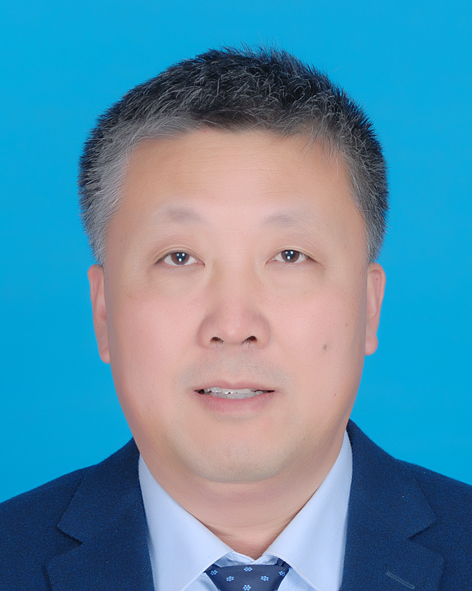 12:35~12:50
Changyou Gao (Zhejiang University, China)
12:35~12:50
Changyou Gao (Zhejiang University, China)
Changyou Gao
(Zhejiang University, China) Changyou Gao graduated from Department of Chemistry, Jilin University to get his Bachelor degree (1990), Master degree (1993) and Ph.D of Polymer Chemistry and Physics (1996). From 1996 to 1998, he worked in Department of Polymer Science and Engineering of Zhejiang University as a postdoctor fellowship. He was a DAAD and visiting scholar in Germany (1999). He is a Cheung Kong Scholar of Ministry of Education of China, a winner for the National Science Fund for Distinguished Young Scholars of China, a fellow of the international federation of biomaterial science and engineering societies, the American Institute of Medicinal and Biological Engineering, Royal Society of Chemistry, and Chinese Society of Biomaterials. He is now serving as an associate president of Chinese Society of Biomaterials, and an associate editor of Biomaterials Advances and Progress in Materials Science. His research interests include self-adaptive biomaterials, immuno-modulation biomaterials, anti-bacterial biomaterials and their applications in tissue repair and regeneration. He has published more than 500 papers with an H-index of 78.
Changyou Gao graduated from Department of Chemistry, Jilin University to get his Bachelor degree (1990), Master degree (1993) and Ph.D of Polymer Chemistry and Physics (1996). From 1996 to 1998, he worked in Department of Polymer Science and Engineering of Zhejiang University as a postdoctor fellowship. He was a DAAD and visiting scholar in Germany (1999). He is a Cheung Kong Scholar of Ministry of Education of China, a winner for the National Science Fund for Distinguished Young Scholars of China, a fellow of the international federation of biomaterial science and engineering societies, the American Institute of Medicinal and Biological Engineering, Royal Society of Chemistry, and Chinese Society of Biomaterials. He is now serving as an associate president of Chinese Society of Biomaterials, and an associate editor of Biomaterials Advances and Progress in Materials Science. His research interests include self-adaptive biomaterials, immuno-modulation biomaterials, anti-bacterial biomaterials and their applications in tissue repair and regeneration. He has published more than 500 papers with an H-index of 78.
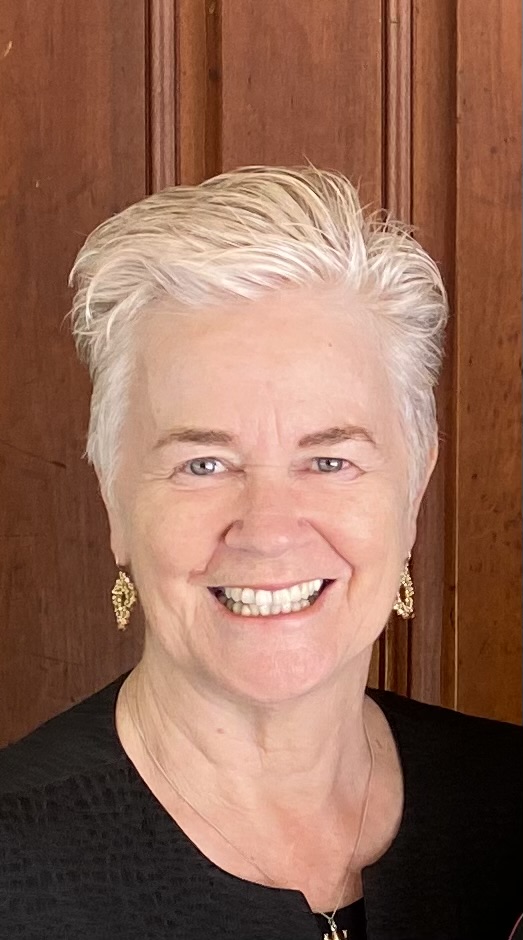 12:50~13:05
Laura Poole-Warren (The University of New South Wales, Australia)
12:50~13:05
Laura Poole-Warren (The University of New South Wales, Australia)
Laura Poole-Warren
(The University of New South Wales, Australia) Laura is a Professor in Biomedical Engineering at UNSW and leads a research group focussed on design and development of novel materials for neural electrodes and other soft-tissue interfaces, and on 3D engineered neural tissue models. A key theme of her work is on understanding material and device compatibility with cells and tissues. Throughout her career, she has worked across academia, industry, and government. She was a research professor at the New Jersey Centre for Biomaterials based at Rutgers University in the USA and a preclinical scientist in the biomedical industry working on development of wound dressings and embolic agents for cancer treatment from 1999 to 2001. She also served from 2003 to 2013 as a member of the Australian Government Therapeutic Goods Administration statutory expert committee on the safety of medical devices. Between 2005 and 2018, Laura held various leadership appointments at UNSW as Pro Vice-Chancellor, and Dean of Graduate Research, as well as being the Australian representative on the International Union of Societies of Biomaterials Science and Engineering. She was awarded honours in January 2020 as a Member of the Order of Australia (AM) for service to Biomedical Engineering and education, is a Fellow of three academies, FTSE, FAIMBE and FBSE and the Royal Society of NSW
Laura is a Professor in Biomedical Engineering at UNSW and leads a research group focussed on design and development of novel materials for neural electrodes and other soft-tissue interfaces, and on 3D engineered neural tissue models. A key theme of her work is on understanding material and device compatibility with cells and tissues. Throughout her career, she has worked across academia, industry, and government. She was a research professor at the New Jersey Centre for Biomaterials based at Rutgers University in the USA and a preclinical scientist in the biomedical industry working on development of wound dressings and embolic agents for cancer treatment from 1999 to 2001. She also served from 2003 to 2013 as a member of the Australian Government Therapeutic Goods Administration statutory expert committee on the safety of medical devices. Between 2005 and 2018, Laura held various leadership appointments at UNSW as Pro Vice-Chancellor, and Dean of Graduate Research, as well as being the Australian representative on the International Union of Societies of Biomaterials Science and Engineering. She was awarded honours in January 2020 as a Member of the Order of Australia (AM) for service to Biomedical Engineering and education, is a Fellow of three academies, FTSE, FAIMBE and FBSE and the Royal Society of NSW
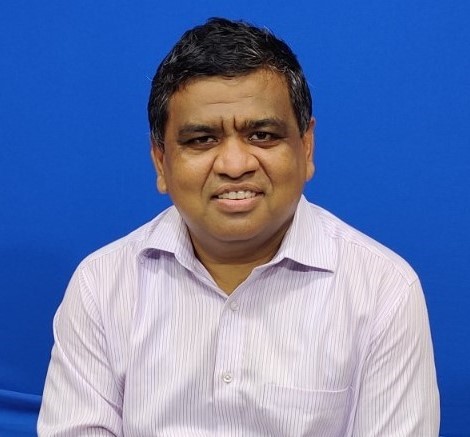 13:05~13:20
Bikramjit Basu (Indian Institute of Science, Bangalore, India)
13:05~13:20
Bikramjit Basu (Indian Institute of Science, Bangalore, India)
Bikramjit Basu
(Indian Institute of Science, Bangalore, India) Dr. Bikramjit Basu is a Professor at the Indian Institute of Science, Bangalore, India, since 2011 and earlier served on the faculty of the Indian Institute of Technology Kanpur (2001-2011). He has been pursuing research at the confluence of Materials Science, Additive Manufacturing, Biological Science, and Medicine, to address many unanswered questions related to regenerative engineering and reconstructive surgeries. His research group has effectively applied the principles and tools of these disciplines to develop next-generation implants and bioengineering solutions to address unmet clinical needs for musculoskeletal, dental, and neurosurgical applications; thereby impacting human healthcare. His research group has developed technologies related to the manufacturing of bioceramics, acetabular liners, customized bone flaps for cranioplasty surgeries, dental implants and variants of hydrogels. These technologies are transferred to multinational corporates or start-ups, and many of the products, after regulatory clearances, are currently used for patient care in India.
Dr. Bikramjit Basu is a Professor at the Indian Institute of Science, Bangalore, India, since 2011 and earlier served on the faculty of the Indian Institute of Technology Kanpur (2001-2011). He has been pursuing research at the confluence of Materials Science, Additive Manufacturing, Biological Science, and Medicine, to address many unanswered questions related to regenerative engineering and reconstructive surgeries. His research group has effectively applied the principles and tools of these disciplines to develop next-generation implants and bioengineering solutions to address unmet clinical needs for musculoskeletal, dental, and neurosurgical applications; thereby impacting human healthcare. His research group has developed technologies related to the manufacturing of bioceramics, acetabular liners, customized bone flaps for cranioplasty surgeries, dental implants and variants of hydrogels. These technologies are transferred to multinational corporates or start-ups, and many of the products, after regulatory clearances, are currently used for patient care in India.
A Chartered Engineer of the UK, he has the unique distinction of being the only ceramic scientist from India to get elected to all the major international societies and academies, including the World Academy of Ceramics (2024), the European Ceramic Society (2023), the American Ceramic Society (2019). In India, he is the only engineering scientist to get elected as a Fellow of all the National Academies of Engineering, Science and Medicine, including the Indian National Science Academy (2021), Indian Academy of Sciences (2020), American Ceramic Society (2019), National Academy of Medical Sciences (2017), Indian National Academy of Engineering (2015), and National Academy of Sciences, India (2013). Internationally, he is an elected fellow of the International Union of Societies for Biomaterials Science and Engineering (2020), International Academy of Medical and Biological Engineering (2017) and the American Institute of Medical and Biological Engineering (2015). He is a recipient of India’s most prestigious Science and Technology award, Shanti Swarup Bhatnagar Prize (2013) from the Prime Minister of India; and globally competent awards, like Humboldt Research Award from the Alexander von Humboldt foundation (2022), and International Richard Brook Award from the European Ceramic Society (2022). He is currently serving on many advisory panels of the national institutes, European university and federal funding agencies as well as major multinational corporates. As the current President of the Society for Biomaterials and Artificial Organs India (1000+ members across India, US and Europe) and in his leadership roles as the Chair of Bioceramics Division and other principal committees of the American Ceramic Society (ACerS), he has brought transformative changes to significantly enhance international visibility of the biomaterials programs in different countries, while inspiring several hundreds of young researchers in Bioceramics area across the world. Such activities together with his roles as the lead investigator in several multi-institutional network programs including multicentric clinical studies enabled creating a vibrant translational ecosystem, to bring together key stakeholders (industry professionals and clinicians) on the innovation platform in India.
Young biomaterial scientist mentoring
- Session TrackWorkshop
- Session TitleYoung Scientist Forum (YSF) I: Successful career development
- Session CodeWP-0041
- Date & Time / RoomMay 28 (Tue) 12:20~13:20 / Room 323
Young Scientist Forum (YSF) I: Successful career development
This luncheon session aims to provide scientists and young investigators in Biomaterials research with the necessary tools and knowledge to enhance their professional careers. The session will address topics such as effective writing and publishing strategies, for participants to gain practical knowledge on crafting impactful research papers, understanding the peer-review process, and increasing their visibility within the scientific community. Furthermore, the importance of communication skills is discussed as a key component, with emphasizing the ability to effectively articulate intricate scientific topics and to captivate a wide range of audiences. A significant focus is also placed regarding on the shift to faculty positions in academia. Experienced mentors will share their insights, offering guidance on navigating the academic job market, preparing compelling applications, and excelling in faculty roles for a successful academic career.
- Organizer
-
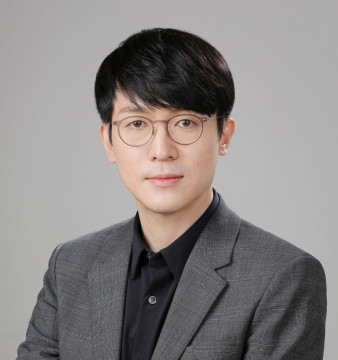 Seung-Woo Cho (Yonsei University, Korea, Republic of)
Seung-Woo Cho (Yonsei University, Korea, Republic of)
- Chair
-
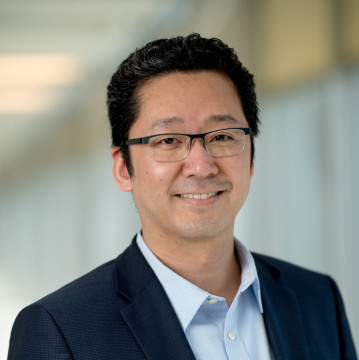 James Moon (University of Michigan, Ann Arbor, USA)
James Moon (University of Michigan, Ann Arbor, USA)
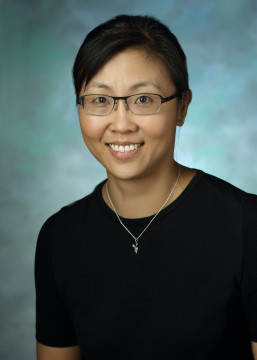 Sing Yian Chew (Nanyang Technological University, Singapore)
Sing Yian Chew (Nanyang Technological University, Singapore)
- Speaker
-
 12:20~12:35
Elizabeth Cosgriff Hernandez (University of Texas at Austin, USA)
12:20~12:35
Elizabeth Cosgriff Hernandez (University of Texas at Austin, USA)
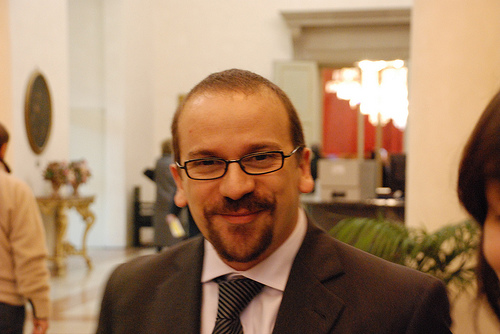 12:35~12:50
Lorenzo Moroni (Maastricht University, Netherlands)
12:35~12:50
Lorenzo Moroni (Maastricht University, Netherlands)
Lorenzo Moroni
(Maastricht University, Netherlands) Prof. Dr. Lorenzo Moroni studied Biomedical Engineering at Polytechnic University of Milan, Italy, and Nanoscale Sciences at Chalmers Technical University, Sweden. He received his Ph.D. cum laude in 2006 at University of Twente on 3D scaffolds for osteochondral regeneration, for which he was awarded the European doctorate award in Biomaterials and Tissue Engineering from the European Society of Biomaterials (ESB). In 2007, he worked at Johns Hopkins University as a post-doctoral fellow in the Elisseeff lab, focusing on hydrogels and stem cells. In 2008, he was appointed the R&D director of the Musculoskeletal Tissue Bank of Rizzoli Orthopedic Institute, where he investigated the use of stem cells from alternative sources for cell banking, and the development of novel bioactive scaffolds for skeletal regeneration. From 2009 till 2014, he joined again University of Twente, where he got tenured in the Tissue Regeneration department.
Prof. Dr. Lorenzo Moroni studied Biomedical Engineering at Polytechnic University of Milan, Italy, and Nanoscale Sciences at Chalmers Technical University, Sweden. He received his Ph.D. cum laude in 2006 at University of Twente on 3D scaffolds for osteochondral regeneration, for which he was awarded the European doctorate award in Biomaterials and Tissue Engineering from the European Society of Biomaterials (ESB). In 2007, he worked at Johns Hopkins University as a post-doctoral fellow in the Elisseeff lab, focusing on hydrogels and stem cells. In 2008, he was appointed the R&D director of the Musculoskeletal Tissue Bank of Rizzoli Orthopedic Institute, where he investigated the use of stem cells from alternative sources for cell banking, and the development of novel bioactive scaffolds for skeletal regeneration. From 2009 till 2014, he joined again University of Twente, where he got tenured in the Tissue Regeneration department.
Since 2014 he works at Maastricht University, where he is a founding member of the MERLN Institute for Technology-Inspired Regenerative Medicine. In 2016, he became full professor in biofabrication for regenerative medicine. Since 2019, he is chair of the Complex Tissue Regeneration department. He was vice-director of MERLN from 2019 till 2022. Since 2022, he is director of MERLN.
His research group interests aim at developing biofabrication technologies to generate libraries of 3D scaffolds able to control cell fate, with applications spanning from skeletal to vascular, neural, and organ regeneration. From his research efforts, 3 products have already reached the market. In 2014, he received the prestigious Jean Leray award for outstanding young principal investigators from the ESB and the ERC starting grant. In 2016, he also received the prestigious Robert Brown Award for outstanding early career principal investigators from TERMIS. In 2017, he was elected as faculty of the Young Academy of Europe and in the top 100 Italian scientists within 40 worldwide by the European Institute of Italian Culture. He has been elected as member of the Science Academy of Europe since 2022.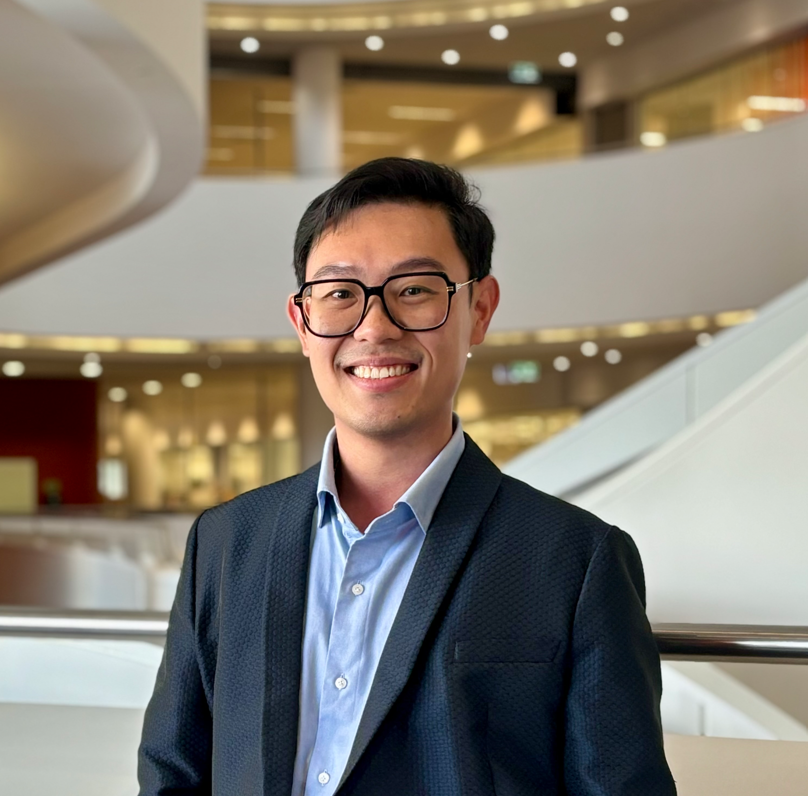 12:50~13:05
Khoon Lim (University of Sydney, Australia)
12:50~13:05
Khoon Lim (University of Sydney, Australia)
Khoon Lim
(University of Sydney, Australia) Associate Professor Khoon Lim is currently an Australian Research Council Future Fellow and the Director of the Light Activated Biomaterials research group at the University of Sydney, Australia. Khoon is a biomedical engineer with specialization in polymer chemistry. He completed a concurrent degree - Bachelors (Hons 1) in Chemical Engineering and Masters in Biomedical Engineering, followed by a PhD in Biomedical Engineering (graduated 2014) from the University of New South Wales. He then went to join the Department of Orthopedic Surgery and Musculoskeletal Medicine at the University of Otago Christchurch in New Zealand for a postdoctoral fellowship, where he established the Light Activated Biomaterials (LAB) research group in 2019. In 2022, he joined the University of Sydney. His research focus is on adopting a class of polymers known as hydrogels as tissue engineering matrices for a variety of applications. His has developed a number of research technology platform, primarily using photo-polymerizable hydrogel bioinks for 3D bioprinting of functional tissues and also delivery of bioactive molecules to promote tissue regeneration. He has generated multiple high impact journal publications (Chemical Reviews, Advanced Materials, Advanced Functional Materials), and raised a total of >$7.8 Million research grant funding with $5.4 Million as lead Chief-Investigator. He is currently the President of the Australasian Society for Biomaterials and Tissue Engineering, Board of Directors of the International Society for Biofabrication, and Executive Board Member of the Medical Technologies Translator Programme (New Zealand). He has won >20 competitive national/international awards and included in the World’s Top 2% Scientist List by Stanford University for 2022 and 2023. His research has also led to commercialisation of biomaterials licensed to a US-based company and commercial contracts with industry partners. He currently sits on the editorial board of Biomaterials Science, Tissue Engineering, Biofabrication, International Journal of Bioprinting, Macromolecular Bioscience, Biomedical Physics & Engineering Express and Journal of Materials Science: Materials in Medicine.
Associate Professor Khoon Lim is currently an Australian Research Council Future Fellow and the Director of the Light Activated Biomaterials research group at the University of Sydney, Australia. Khoon is a biomedical engineer with specialization in polymer chemistry. He completed a concurrent degree - Bachelors (Hons 1) in Chemical Engineering and Masters in Biomedical Engineering, followed by a PhD in Biomedical Engineering (graduated 2014) from the University of New South Wales. He then went to join the Department of Orthopedic Surgery and Musculoskeletal Medicine at the University of Otago Christchurch in New Zealand for a postdoctoral fellowship, where he established the Light Activated Biomaterials (LAB) research group in 2019. In 2022, he joined the University of Sydney. His research focus is on adopting a class of polymers known as hydrogels as tissue engineering matrices for a variety of applications. His has developed a number of research technology platform, primarily using photo-polymerizable hydrogel bioinks for 3D bioprinting of functional tissues and also delivery of bioactive molecules to promote tissue regeneration. He has generated multiple high impact journal publications (Chemical Reviews, Advanced Materials, Advanced Functional Materials), and raised a total of >$7.8 Million research grant funding with $5.4 Million as lead Chief-Investigator. He is currently the President of the Australasian Society for Biomaterials and Tissue Engineering, Board of Directors of the International Society for Biofabrication, and Executive Board Member of the Medical Technologies Translator Programme (New Zealand). He has won >20 competitive national/international awards and included in the World’s Top 2% Scientist List by Stanford University for 2022 and 2023. His research has also led to commercialisation of biomaterials licensed to a US-based company and commercial contracts with industry partners. He currently sits on the editorial board of Biomaterials Science, Tissue Engineering, Biofabrication, International Journal of Bioprinting, Macromolecular Bioscience, Biomedical Physics & Engineering Express and Journal of Materials Science: Materials in Medicine.
His research has also generated a number of intellectual property and patent applications, including a full utility patent now granted in China, Australia, America and Europe, where he’s the lead inventor. He is also involved in a number of collaborative projects involving national and international collaborators (Germany, Netherlands, Australia, China and Scotland). He is the current President of the Australasian Society for Biomaterials and Tissue Engineering, Board Member of the International Society for Biofabrication, and Executive Board Member of the New Zealand Medical Technology Research Acceleration Programme. He also serves on a number of editorial boards including RSC Biomaterials Science, Biofabrication, Macromolecular Bioscience, International Journal of Bioprinting, Tissue Engineering: Part B, Biomedical Physics and Engineering Express and Journal of Materials Science: Materials in Medicine.
- Session TrackWorkshop
- Session TitleYoung Scientist Forum (YSF) II: The past, present, and future of Biomaterials Research (meeting mentors)
- Session CodeWP-0045
- Date & Time / RoomMay 29 (Wed) 12:20~13:20 / Room 323
Young Scientist Forum (YSF) II: The past, present, and future of Biomaterials Research (meeting mentors)
This luncheon session will provide a unique opportunity for students and young scientists to interact with experienced mentors, establishing a connection between the extensive historical background of biomaterials research, its current state, and the promising prospects in the future. During this session, a distinguished group of mentors will share their knowledge and perspectives on the historical turning points that have established the foundation of biomaterials research with highlighting cutting-edge innovations and interdisciplinary collaborations. Participants will have the chance to connect with mentors who have played pivotal roles in shaping the field, gaining valuable guidance on navigating challenges and capitalizing on opportunities. Overall, this session not only provides a comprehensive overview of the past and present of biomaterials research but also cultivates mentorship relationships that are instrumental in guiding the next generation of scientists toward a promising future in the field of biomaterials.
- Organizer
-
 Seung-Woo Cho (Yonsei University, Korea, Republic of)
Seung-Woo Cho (Yonsei University, Korea, Republic of)
- Chair
-
 Hua Ai (West China Hospital, Sichuan University, China)
Hua Ai (West China Hospital, Sichuan University, China)
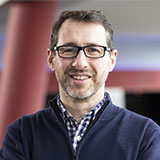 Nicholas Dunne (Dublin City University, Ireland)
Nicholas Dunne (Dublin City University, Ireland)
- Speaker
-
 12:20~12:35
Joachim Kohn (Rutgers University/IUSBSE, USA)
12:20~12:35
Joachim Kohn (Rutgers University/IUSBSE, USA)
Joachim Kohn
(Rutgers University/IUSBSE, USA) Joachim Kohn, PhD, FBSE is a national leader in the field of biomaterials science. As founding director of the New Jersey Center for Biomaterials (NJCBM) for 22 years and as Head of the Laboratory for Biomaterials Research at Rutgers, Prof. Kohn has made seminal contributions to the design and commercialization of new biomaterials for regenerative medicine, tissue engineering and drug delivery. He pioneered the use of combinatorial and computational methods for the optimization of polymer properties for use in medical implants (including a coronary stent and an antimicrobial device to prevent infections in pacemaker patients). These implants are being used by over one million patients and are currently approved in 46 countries. As a translational scientist, Prof Kohn has 78 issued US Patents on novel biomaterials and seven companies have licensed his technologies. He is the scientific founder of three spin-off companies. Dr Kohn retired from Rutgers in 2020 and remains active in research, entrepreneurship and the biomaterials community. He was elected President of the International Union of Societies for Biomaterials Science and Engineering in 2020.
Joachim Kohn, PhD, FBSE is a national leader in the field of biomaterials science. As founding director of the New Jersey Center for Biomaterials (NJCBM) for 22 years and as Head of the Laboratory for Biomaterials Research at Rutgers, Prof. Kohn has made seminal contributions to the design and commercialization of new biomaterials for regenerative medicine, tissue engineering and drug delivery. He pioneered the use of combinatorial and computational methods for the optimization of polymer properties for use in medical implants (including a coronary stent and an antimicrobial device to prevent infections in pacemaker patients). These implants are being used by over one million patients and are currently approved in 46 countries. As a translational scientist, Prof Kohn has 78 issued US Patents on novel biomaterials and seven companies have licensed his technologies. He is the scientific founder of three spin-off companies. Dr Kohn retired from Rutgers in 2020 and remains active in research, entrepreneurship and the biomaterials community. He was elected President of the International Union of Societies for Biomaterials Science and Engineering in 2020.
Selected Recent Honors and Awards
2022 Recipient of the Award for Distinguished Contribution in Advancement of Biomaterials Science, given by the Japanese Society for Biomaterials
2022 Recipient of the International Award by the European Society for Biomaterials
2020 Recipient of the National Award in Applied Polymer Science by the American Chemical Society.
2019 Recipient of the 2019 Society for Biomaterials Founders Award for life-time achievements in biomaterials science.
2018 Recipient of the 2018 Healthcare Heroes Award for outstanding contributions to the advancement of biomaterials-based therapies.
2017 Recipient of the 2017 Thomas Alva Edison Patent Award for best patent in biomaterials in New Jersey presented by the Research and Development Council of New Jersey.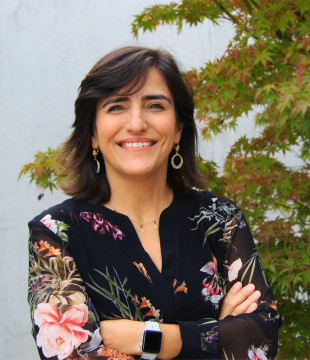 12:35~12:50
Ana Paula Pego (i3S / INEB - University of Porto, Portugal)
12:35~12:50
Ana Paula Pego (i3S / INEB - University of Porto, Portugal)
Ana Paula Pego
(i3S / INEB - University of Porto, Portugal) Ana Paula Pêgo got her Ph.D. in Polymer Chemistry and Biomaterials from the University of Twente, the Netherlands, in 2002. In 2003 she moved to INEB – Instituto de Engenharia Biomédica, where she became a Principal Investigator in 2012. In 2015, INEB joined the i3S – Instituto de Investigação e Inovação em Saúde (Universidade do Porto), where Ana Paula Pêgo leads the nanoBiomaterials for Targeted Therapies (nBTT) Group.
Ana Paula Pêgo got her Ph.D. in Polymer Chemistry and Biomaterials from the University of Twente, the Netherlands, in 2002. In 2003 she moved to INEB – Instituto de Engenharia Biomédica, where she became a Principal Investigator in 2012. In 2015, INEB joined the i3S – Instituto de Investigação e Inovação em Saúde (Universidade do Porto), where Ana Paula Pêgo leads the nanoBiomaterials for Targeted Therapies (nBTT) Group.
By using nanomedicine strategies the nBTT Group, aims at providing in situ and in a targeted manner the required signals to promote nervous tissue regeneration. The research on new biomaterials for application in neurosciences includes the development of new polymers for the design of alternative vectors to viruses for efficient nucleic acid delivery, the preparation of nerve grafts for spinal cord injury treatment and the design of brain tissue engineered platforms. Societal and ethical issues that concern Regenerative Medicine and NanoMedicine are also topics in which Ana Paula Pêgo is involved.
She has been appointed the Scientific Director of the Bioimaging Centre for Biomaterials and Regenerative Therapies of INEB and she is an Invited Associate Professor at the Instituto de Ciências Biomédicas Abel Salazar (ICBAS) of the University of Porto.
Currently Ana Paula Pêgo is a member of the Board of Directors of i3S, being the Head of Strategy & Creation of Value Unit, serves as an Associate Editor of Biomaterials (Elsevier journal) and is part of the Board of Reviewing Editors of Science (AAAS).
Ana Paula Pêgo served two terms in the European Society for Biomaterials (ESB) Council, being the ESB Council Secretary from 2017-2021 and the ESB President from 2021-2023, being now the ESB past President.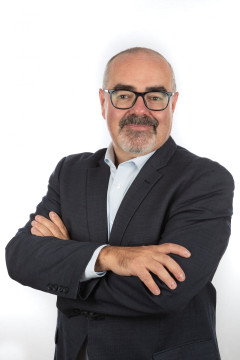 12:50~13:05
Diego Mantovani (Laval University, Canada)
12:50~13:05
Diego Mantovani (Laval University, Canada)
Diego Mantovani
(Laval University, Canada) Professor in biomaterials, scientist in regenerative medicine, holder of the Canada Research Chair Tieur I in biomaterials and bioengineering for the innovation in surgery, Diego Mantovani is en expert in nanocoatings, biodegradable metals and 3D cell culture for advanced in vitro tests alternative to in vivo. With his team, he carried out R&D&I projects often in collaboration with companies to unravel how sciences and engineering can improve the patient quality of life of Humans, and to develop new processes for improving the clinical performances of commercial devices, as well as exploring new strategies for tomorrow's clinical therapies. Focus is on cardiac, peripheral, cerebral, dental and parenchymal tissue. The Lab is based at ULaval, in the beatiful nordic city of Quebec, labelled UNESCO treasure, in the French-living part of Canada. He was elected Fellow of the International Union of Societies of Biomaterials since 2012, of the American Society for Materials Intl since 2016, the American Institute of Medical Biological Engineering since 2019, and of the Canadian Academy of Engineering since 2020. He was executive Co-Chair of the 10th World Biomaterials Congress, held in Montréal, Canada, in 2016, May.
Professor in biomaterials, scientist in regenerative medicine, holder of the Canada Research Chair Tieur I in biomaterials and bioengineering for the innovation in surgery, Diego Mantovani is en expert in nanocoatings, biodegradable metals and 3D cell culture for advanced in vitro tests alternative to in vivo. With his team, he carried out R&D&I projects often in collaboration with companies to unravel how sciences and engineering can improve the patient quality of life of Humans, and to develop new processes for improving the clinical performances of commercial devices, as well as exploring new strategies for tomorrow's clinical therapies. Focus is on cardiac, peripheral, cerebral, dental and parenchymal tissue. The Lab is based at ULaval, in the beatiful nordic city of Quebec, labelled UNESCO treasure, in the French-living part of Canada. He was elected Fellow of the International Union of Societies of Biomaterials since 2012, of the American Society for Materials Intl since 2016, the American Institute of Medical Biological Engineering since 2019, and of the Canadian Academy of Engineering since 2020. He was executive Co-Chair of the 10th World Biomaterials Congress, held in Montréal, Canada, in 2016, May.
- Session TrackWorkshop
- Session TitleYoung Scientist Forum (YSF) III: Experience from academic research to commercialization, start-up company
- Session CodeWP-0046
- Date & Time / RoomMay 30 (Thu) 12:20~13:20 / Room 323
Young Scientist Forum (YSF) III: Experience from academic research to commercialization, start-up company
The purpose of this luncheon session is to facilitate the exchange of ideas among young researchers about effective integration of academic research with practical applications in the commercial sector. This event has a lineup of speakers that have successfully transformed their academic endeavors into tangible products or established startup companies. Their perspectives, challenges, and insights will be disseminated among emerging and young scientists. Participants can expect stimulating discussion regarding practical aspects of converting scientific discoveries into commercially viable innovations, encompassing topics such as intellectual property, funding strategies, and collaboration with industry partners. This session serves as a forum for both a knowledge-sharing event and as a source of inspiration for the next generation of scientists, motivating them to foresee the broader impact of their study and to consider the commercial potential of their work.
- Organizer
-
 Seung-Woo Cho (Yonsei University, Korea, Republic of)
Seung-Woo Cho (Yonsei University, Korea, Republic of)
- Chair
-
 Won Jong Kim (Pohang University of Science and Technology (POSTECH), Korea, Republic of)
Won Jong Kim (Pohang University of Science and Technology (POSTECH), Korea, Republic of)
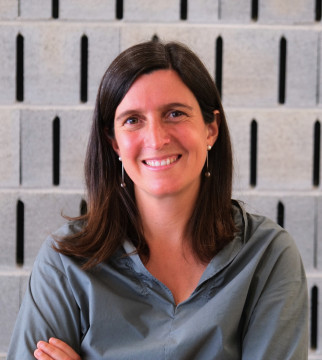 Ines Goncalves (i3S - Institute for Research and Innovation in Health, Portugal)
Ines Goncalves (i3S - Institute for Research and Innovation in Health, Portugal)
- Speaker
-
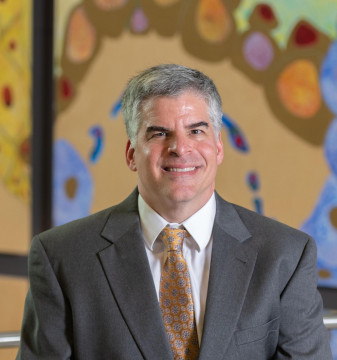 12:20~12:35
Andrés J. García (Georgia Institute of Technology, USA)
12:20~12:35
Andrés J. García (Georgia Institute of Technology, USA)
Andrés J. García
(Georgia Institute of Technology, USA) Andrés J. García is the Executive Director of the Petit Institute for Bioengineering and Bioscience and Regents’ Professor at the Georgia Institute of Technology. Dr. García’s research program integrates innovative engineering, materials science, and cell biology concepts and technologies to create cell-instructive biomaterials for regenerative medicine and generate new knowledge in mechanobiology. This cross-disciplinary effort has resulted in new biomaterial platforms that elicit targeted cellular responses and tissue repair in various biomedical applications, innovative technologies to study and exploit cell adhesive interactions, and new mechanistic insights into the interplay of mechanics and cell biology. In addition, his research has generated intellectual property and licensing agreements with start-up and multi-national companies. He is a co-founder of 3 start-up companies (CellectCell, CorAmi Therapeutics, iTolerance). He has received several distinctions, including the NSF CAREER Award; the Young Investigator Award, the Clemson Award for Basic Science, and the Founders Award from the Society for Biomaterials; the International Award from the European Society for Biomaterials; and Georgia Tech’s Outstanding Interdisciplinary Activities Award and the Class of 1934 Distinguished Professor Award. He is an elected Fellow of Biomaterials Science and Engineering (by the International Union of Societies of Biomaterials Science and Engineering), Fellow of the American Association for the Advancement of Science, Fellow of the American Society of Mechanical Engineers, and Fellow of the American Institute for Medical and Biological Engineering. He served as President for the Society for Biomaterials in 2018-2019. He is an elected member of the National Academy of Engineering, the National Academy of Medicine, and the National Academy of Inventors.
Andrés J. García is the Executive Director of the Petit Institute for Bioengineering and Bioscience and Regents’ Professor at the Georgia Institute of Technology. Dr. García’s research program integrates innovative engineering, materials science, and cell biology concepts and technologies to create cell-instructive biomaterials for regenerative medicine and generate new knowledge in mechanobiology. This cross-disciplinary effort has resulted in new biomaterial platforms that elicit targeted cellular responses and tissue repair in various biomedical applications, innovative technologies to study and exploit cell adhesive interactions, and new mechanistic insights into the interplay of mechanics and cell biology. In addition, his research has generated intellectual property and licensing agreements with start-up and multi-national companies. He is a co-founder of 3 start-up companies (CellectCell, CorAmi Therapeutics, iTolerance). He has received several distinctions, including the NSF CAREER Award; the Young Investigator Award, the Clemson Award for Basic Science, and the Founders Award from the Society for Biomaterials; the International Award from the European Society for Biomaterials; and Georgia Tech’s Outstanding Interdisciplinary Activities Award and the Class of 1934 Distinguished Professor Award. He is an elected Fellow of Biomaterials Science and Engineering (by the International Union of Societies of Biomaterials Science and Engineering), Fellow of the American Association for the Advancement of Science, Fellow of the American Society of Mechanical Engineers, and Fellow of the American Institute for Medical and Biological Engineering. He served as President for the Society for Biomaterials in 2018-2019. He is an elected member of the National Academy of Engineering, the National Academy of Medicine, and the National Academy of Inventors.
 12:35~12:50
Nan Huang (Southwest Jiaotong University, China)
12:35~12:50
Nan Huang (Southwest Jiaotong University, China)
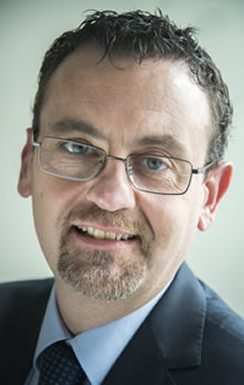 12:50~13:05
Matteo Santin (University of Brighton, United Kingdom)
12:50~13:05
Matteo Santin (University of Brighton, United Kingdom)
Matteo Santin
(University of Brighton, United Kingdom) Prof Matteo Santin is Professor of Tissue Regeneration at the School of Applied Sciences, University of Brighton, UK, and the Director of the Brighton Centre for Regenerative Medicine and Devices. His career in biomedical research and teaching started in 1989 and it has been marked by significant achievements that were internationally recognised in 2005 by the European Society for Biomaterials who conferred him the Jean Leary Award, elected him as a member of the board (2009-2013) and as the President of the Society (2013-2017). He is the founder and director of 2 start-up companies with a mission in biomaterials, Brighton Wound Care Ltd and Tissue Click Ltd.
Prof Matteo Santin is Professor of Tissue Regeneration at the School of Applied Sciences, University of Brighton, UK, and the Director of the Brighton Centre for Regenerative Medicine and Devices. His career in biomedical research and teaching started in 1989 and it has been marked by significant achievements that were internationally recognised in 2005 by the European Society for Biomaterials who conferred him the Jean Leary Award, elected him as a member of the board (2009-2013) and as the President of the Society (2013-2017). He is the founder and director of 2 start-up companies with a mission in biomaterials, Brighton Wound Care Ltd and Tissue Click Ltd.
His scientific interests include natural biomaterials, synthetic biomimetic nano-structured biomaterials able to control tissue regeneration and biosensing. He has developed in vitro clinically-reflective models for the testing of nanomedicines, biomaterials and tissue engineering constructs. He has published over 100 peer-reviewed papers, over 200 presentations at international conferences, filed 11 patents applications and unveiled for the first time the biochemical and cellular mechanisms of inflammatory response to silk fibroin, new cellular mechanisms leading to the failure of cardiovascular stents and the tissue regeneration potential of novel soybean-based biomaterials and biomimetic dendrimers (i.e. hyperbranched molecules able to control cell functions and tissue regeneration).
Biomaterials research in woman health
- Session TrackBiomaterials for tissue engineering
- Session TitleBiomaterials for the Maternal-Fetal Interface
- Session CodeSP-T04-0164
- Date & Time / RoomMay 28 (Tue) 16:30~18:00 / Room 314
Biomaterials for the Maternal-Fetal Interface
Pregnancy involves a complex spatiotemporal cellular dialogue between trophoblast cells from the invading blastocyst and cells from the site of implantation in the endometrium. This dialogue dictates the extent of invasion of trophoblast into the uterus and can dictate the success of pregnancy. The maternal-fetal interface describes the location of uterine-blastocyst interfacing during implantation and the subsequent unique microenvironment of pregnancy once the blastocyst has implanted and continues to grow. The maternal-fetal interface is extremely challenging to study in humans and due to significant differences between animal and human pregnancies, animal models are not ideal. As experts in biomaterials, we have unique capabilities to harness advanced materials science and engineering skillsets to develop increasingly complex systems that can be applied to the maternal-fetal interface. From uterus to blastocyst to placenta, this symposium will highlight recent advances at the intersection of biomaterials and the maternal-fetal interface with the goal of providing a survey of engineering techniques to study this unique biological interface.
- Organizer
-
 Samantha Zambuto (Washington University in St. Louis, USA)
Samantha Zambuto (Washington University in St. Louis, USA)
- Chair
-
 Samantha Zambuto (Washington University in St. Louis, USA)
Samantha Zambuto (Washington University in St. Louis, USA)
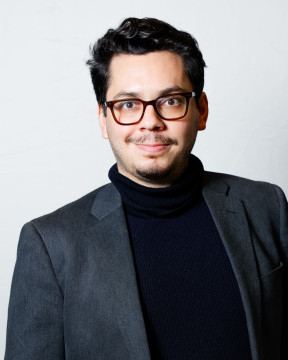 Juan Gnecco (Tufts University, USA)
Juan Gnecco (Tufts University, USA)
- Keynote Speaker
-
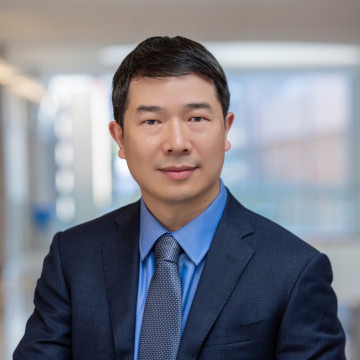 16:30~16:55
Jianping Fu (University of Michigan Ann Arbor, USA)
Developmental Bioengineering for Building Human Embryo and Organ Models
16:30~16:55
Jianping Fu (University of Michigan Ann Arbor, USA)
Developmental Bioengineering for Building Human Embryo and Organ Models
Jianping Fu
(University of Michigan Ann Arbor, USA) Dr. Jianping Fu is a Professor of Mechanical Engineering, Biomedical Engineering, and Cell & Developmental Biology at the University of Michigan. Dr. Fu’s research focuses on stem cell bioengineering, developmental bioengineering, mechanobiology, and microfluidics. Dr. Fu and his co-workers' research has contributed significantly to the emerging field of "Artificial Embryos", which was selected by the MIT Technology Review as “10 Breakthrough Technologies of 2018”. Dr. Fu is the recipient of the NSF CAREER Award, the BMES-CMBE Rising Star Award, the ACS Analytical Chemistry Young Innovator Award, the Alexander von Humboldt Foundation Friedrich Wilhelm Bessel Research Award, and numerous awards from the University of Michigan. Dr. Fu is a Fellow of the American Institute for Medical and Biological Engineering (AIMBE), the Royal Society of Chemistry (RSC), the American Society of Mechanical Engineers (ASME), and the International Academy of Medical and Biological Engineers (IAMBE). Dr. Fu was a member of the International Society for Stem Cell Research (ISSCR) Guidelines Working Group (2019-2021), convened to review the oversight process and provide an update to the ISSCR guidelines on in vitro culture of human embryos, creation of stem cell-based embryo models, and in vitro gametogenesis. Dr. Fu currently is a member of the Biomedical Engineering Society Cellular and Molecular Bioengineering Special Interest Group (BMES CMBE-SIG) and the ISSCR Publication Committee. Dr. Fu also serves as the Associate Editor of npj Regenerative Medicine and is an Editorial Board Member of Cell Regeneration, Mechanobiology in Medicine, and Frontiers in Cell and Developmental Biology.
Dr. Jianping Fu is a Professor of Mechanical Engineering, Biomedical Engineering, and Cell & Developmental Biology at the University of Michigan. Dr. Fu’s research focuses on stem cell bioengineering, developmental bioengineering, mechanobiology, and microfluidics. Dr. Fu and his co-workers' research has contributed significantly to the emerging field of "Artificial Embryos", which was selected by the MIT Technology Review as “10 Breakthrough Technologies of 2018”. Dr. Fu is the recipient of the NSF CAREER Award, the BMES-CMBE Rising Star Award, the ACS Analytical Chemistry Young Innovator Award, the Alexander von Humboldt Foundation Friedrich Wilhelm Bessel Research Award, and numerous awards from the University of Michigan. Dr. Fu is a Fellow of the American Institute for Medical and Biological Engineering (AIMBE), the Royal Society of Chemistry (RSC), the American Society of Mechanical Engineers (ASME), and the International Academy of Medical and Biological Engineers (IAMBE). Dr. Fu was a member of the International Society for Stem Cell Research (ISSCR) Guidelines Working Group (2019-2021), convened to review the oversight process and provide an update to the ISSCR guidelines on in vitro culture of human embryos, creation of stem cell-based embryo models, and in vitro gametogenesis. Dr. Fu currently is a member of the Biomedical Engineering Society Cellular and Molecular Bioengineering Special Interest Group (BMES CMBE-SIG) and the ISSCR Publication Committee. Dr. Fu also serves as the Associate Editor of npj Regenerative Medicine and is an Editorial Board Member of Cell Regeneration, Mechanobiology in Medicine, and Frontiers in Cell and Developmental Biology.
- Oral Presenter
-
 17:10~17:20
Samantha Zambuto (Washington University in St. Louis, USA)
Biomimetic scaffolds for vaginal tissue engineering
17:10~17:20
Samantha Zambuto (Washington University in St. Louis, USA)
Biomimetic scaffolds for vaginal tissue engineering
 17:20~17:30
Emrys Thursfield Thursfield (University of Cambridge / AstraZeneca, United Kingdom)
Selection of a kidney cell line for organoid studies in collagen scaffolds
17:20~17:30
Emrys Thursfield Thursfield (University of Cambridge / AstraZeneca, United Kingdom)
Selection of a kidney cell line for organoid studies in collagen scaffolds
 17:30~17:40
TzuCheng Sung (The Eye hospital of Wenzhou medical university, China)
Generation of low immunogenic stem cell by induced cardiomyocyte differentiation
17:30~17:40
TzuCheng Sung (The Eye hospital of Wenzhou medical university, China)
Generation of low immunogenic stem cell by induced cardiomyocyte differentiation
 17:40~17:50
Stephanie Michelena Tupiza (The University of Queensland, Australia)
Forming and probing human neuromuscular junctions using iPSC-derived cell types within microfabricated devices
17:40~17:50
Stephanie Michelena Tupiza (The University of Queensland, Australia)
Forming and probing human neuromuscular junctions using iPSC-derived cell types within microfabricated devices
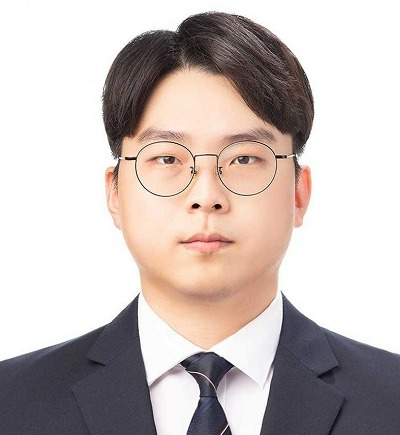 17:50~18:00
Myeong Jae Baek (Kyungpook national university, Korea, Republic of)
Microgranular endometrial orgnaoids to reconstruct endometrial injuries for infertility treatment
17:50~18:00
Myeong Jae Baek (Kyungpook national university, Korea, Republic of)
Microgranular endometrial orgnaoids to reconstruct endometrial injuries for infertility treatment
- Session TrackBiomaterials for tissue engineering
- Session TitleBiomaterials for Women’s Reproductive Health
- Session CodeSP-T04-0051
- Date & Time / RoomMay 31 (Fri) 9:30~11:00 / Room 314
Biomaterials for Women’s Reproductive Health
Women's reproductive health is an important and understudied area of research. While there is a long history of engineers working with medical practitioners, particularly in the orthopaedic and cardiovascular fields, the field of biomedical engineering has a potential role to create solutions specific to women's health issues. This proposed Symposium aims to address these recent developments in women’s reproductive health, including normal physiology, pathology, and pregnancy. This includes topics such as women's cancers like ovarian, cervical, and breast (predominantly), diseases that affect women at higher rates like osteoporosis, and hormone related disorders associated with puberty and menopause; and pregnancy, the uterus and placenta, post-pregnancy pelvic floor disorders, and breast feeding. The need for biomaterials approaches in this broad area will be discussed and special opportunities for collaborations presented. Research presented will include a variety of experimental and computational approaches, including biomechanics, tissue engineering, and imaging, to highlight the growth and continuing interest in this emerging field. This perspective will encourage and inspire future researchers, while engaging current researchers to think about redirecting their skills to problems in women's reproductive health.
- Organizer
-
 Shelly Peyton (University of Massachusetts Amherst, USA)
Shelly Peyton (University of Massachusetts Amherst, USA)
- Chair
-
 Shelly Peyton (University of Massachusetts Amherst, USA)
Shelly Peyton (University of Massachusetts Amherst, USA)
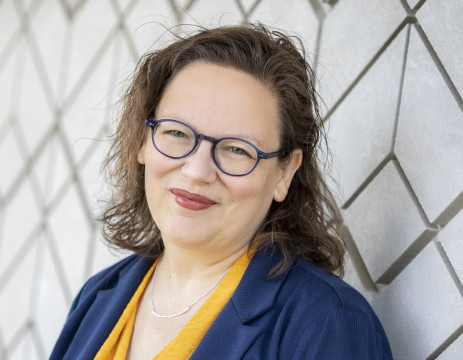 Michelle Oyen (Washington University in St. Louis, USA)
Michelle Oyen (Washington University in St. Louis, USA)
- Keynote Speaker
-
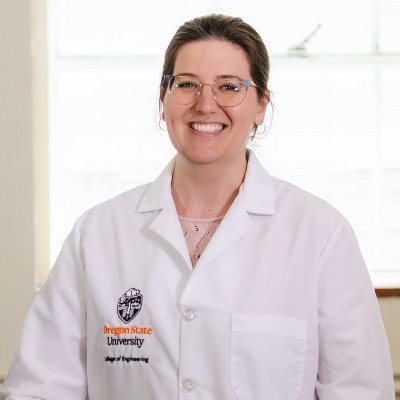 9:30~9:55
Kaitlin Fogg (Oregon State University, USA)
Bridging the Gap: 3D High Throughput Screening Models for Gynecological Disease
9:30~9:55
Kaitlin Fogg (Oregon State University, USA)
Bridging the Gap: 3D High Throughput Screening Models for Gynecological Disease
Kaitlin Fogg
(Oregon State University, USA) Dr. Kaitlin Fogg is an Assistant Professor of Chemical, Biological, and Environmental Engineering at Oregon State University, where her research is focused on gynecological disease modeling. She completed her B.S. in Chemical and Biological Engineering from the University of Wisconsin-Madison and her Ph.D. in Biomedical Engineering at the University of California, Davis in 2016, with a research emphasis on tissue engineering. Following her doctoral studies, Dr. Fogg returned to the University of Wisconsin-Madison for a postdoctoral fellowship, where she used in vitro models of disease and statistical modeling techniques to unravel the intricate interactions between the immune system and ovarian cancer.
Dr. Kaitlin Fogg is an Assistant Professor of Chemical, Biological, and Environmental Engineering at Oregon State University, where her research is focused on gynecological disease modeling. She completed her B.S. in Chemical and Biological Engineering from the University of Wisconsin-Madison and her Ph.D. in Biomedical Engineering at the University of California, Davis in 2016, with a research emphasis on tissue engineering. Following her doctoral studies, Dr. Fogg returned to the University of Wisconsin-Madison for a postdoctoral fellowship, where she used in vitro models of disease and statistical modeling techniques to unravel the intricate interactions between the immune system and ovarian cancer.
Her contributions to the field have earned her prestigious recognitions, including a pre-doctoral fellowship from the American Heart Association, a Scientific Scholar award from the Rivkin Center for Ovarian Cancer Research, and recognition as a Shooting Star at the 2018 Cellular and Molecular Bioengineering Conference. Currently, Dr. Fogg's research focuses on engineering complex models of gynecological diseases that are specifically designed for high throughput drug screening. These models serve as a valuable platform for studying signaling dynamics, identifying potential therapeutic targets, and enabling the rapid evaluation of innovating treatment approaches. This research is supported by an NIGMS R35, an NIEHS R01, and an industry partnership with Hewlett-Packard (HP). Additionally, Dr. Fogg is in the seed stage of establishing a biotech company whose mission is to build an expansive library of advanced drug screening platforms tailored specifically for gynecological diseases.
- Invited Speaker
-
 9:55~10:10
Tina Chowdhury (Queen Mary University of London, United Kingdom)
9:55~10:10
Tina Chowdhury (Queen Mary University of London, United Kingdom)
 10:10~10:25
Minjeong Jang (Korea Institute of Radiological Medical Sciences, Korea, Republic of)
Matrix glycation regulates neurodegeneration in the aged neurovascular-on-a-chip
10:10~10:25
Minjeong Jang (Korea Institute of Radiological Medical Sciences, Korea, Republic of)
Matrix glycation regulates neurodegeneration in the aged neurovascular-on-a-chip
- Oral Presenter
-
 10:25~10:35
Shuichi Ogino (Shiga University of Medical Science, Japan)
Development of a bioabsorbable implant capable of regenerating adipose tissue for breast reconstruction
10:25~10:35
Shuichi Ogino (Shiga University of Medical Science, Japan)
Development of a bioabsorbable implant capable of regenerating adipose tissue for breast reconstruction
 10:35~10:45
Jirut Meesane (Prince of Songkla University, Thailand)
Mimicking extracellular matrix based scaffolds as functional biomaterials for supporting surgical application in disease tissue removal
10:35~10:45
Jirut Meesane (Prince of Songkla University, Thailand)
Mimicking extracellular matrix based scaffolds as functional biomaterials for supporting surgical application in disease tissue removal
 10:45~10:55
Christoph Naderer (University of Applied Sciences Upper Austria, Austria)
Revolutionizing Bone-on-a-Chip: Novel approaches in three-dimensional tissue engineering through protein-based 3D scaffolds
10:45~10:55
Christoph Naderer (University of Applied Sciences Upper Austria, Austria)
Revolutionizing Bone-on-a-Chip: Novel approaches in three-dimensional tissue engineering through protein-based 3D scaffolds
- Session TrackBiomaterials for specific medical applications
- Session TitleBiomaterials for women’s health engineering
- Session CodeSP-T06-0254
- Date & Time / RoomMay 30 (Thu) 13:40~15:10 / Room 323
Biomaterials for women’s health engineering
Women have historically been excluded at all levels of biomedical research and medical device innovation which has led to a gaping hole in the healthcare landscape to meet even the most basic needs in women’s health. To address this critical need, we need innovative biomaterial solutions to expand health technologies available to clinicians to treat women. This session will highlight advances in biomaterial approaches to address the myriad of clinical needs in women's health. Topics include disorders in reproductive tissues (e.g. endometriosis, cancer, premature ovarian insufficiency, infertility, preterm birth), multicellular tissue-level interactions and mechanics in reproductive health, extracellular matrix dynamics and sex-related differences in chronic diseases and device design, gynecological device design, and breast cancer and reconstruction.
- Organizer
-
 Brendan Harley (University of Illinois at Urbana-Champaign, USA)
Brendan Harley (University of Illinois at Urbana-Champaign, USA)
- Chair
-
 Brendan Harley (University of Illinois at Urbana-Champaign, USA)
Brendan Harley (University of Illinois at Urbana-Champaign, USA)
 Elizabeth Cosgriff Hernandez (University of Texas at Austin, USA)
Elizabeth Cosgriff Hernandez (University of Texas at Austin, USA)
- Keynote Speaker
-
 13:40~14:05
Michelle Oyen (Washington University in St. Louis, USA)
13:40~14:05
Michelle Oyen (Washington University in St. Louis, USA)
Michelle Oyen
(Washington University in St. Louis, USA) Michelle L. Oyen is the inaugural Director of the new Center for Women’s Health Engineering at Washington University in St. Louis. She is based in the department of Biomedical Engineering. Prior to her current appointment, she was on the faculty at the University of Cambridge (2006–18) in the UK and then briefly at East Carolina University (2018–21). Michelle has degrees in Materials Science and Engineering (BS), Engineering Mechanics (MS), and a PhD in Biophysical Sciences. Her research primarily concerns problems in tissue biomechanics and biomimetic materials. She has researched engineering approaches to pregnancy and women’s health for over twenty years, particularly in methods to prevent, diagnose, and intervene in preterm birth. Current research projects include multi-scale modeling of placenta function, microstructural fracture models for amniotic sac rupture, and physical properties of the healthy and pathological uterus.
Michelle L. Oyen is the inaugural Director of the new Center for Women’s Health Engineering at Washington University in St. Louis. She is based in the department of Biomedical Engineering. Prior to her current appointment, she was on the faculty at the University of Cambridge (2006–18) in the UK and then briefly at East Carolina University (2018–21). Michelle has degrees in Materials Science and Engineering (BS), Engineering Mechanics (MS), and a PhD in Biophysical Sciences. Her research primarily concerns problems in tissue biomechanics and biomimetic materials. She has researched engineering approaches to pregnancy and women’s health for over twenty years, particularly in methods to prevent, diagnose, and intervene in preterm birth. Current research projects include multi-scale modeling of placenta function, microstructural fracture models for amniotic sac rupture, and physical properties of the healthy and pathological uterus.
- Invited Speaker
-
 14:05~14:20
Brendan Harley (University of Illinois at Urbana-Champaign, USA)
14:05~14:20
Brendan Harley (University of Illinois at Urbana-Champaign, USA)
- Oral Presenter
-
 14:20~14:30
Elizabeth Cosgriff-Hernandez (The University of Texas at Austin, USA)
Self-fitting vaginal stents based on shape memory foams
14:20~14:30
Elizabeth Cosgriff-Hernandez (The University of Texas at Austin, USA)
Self-fitting vaginal stents based on shape memory foams
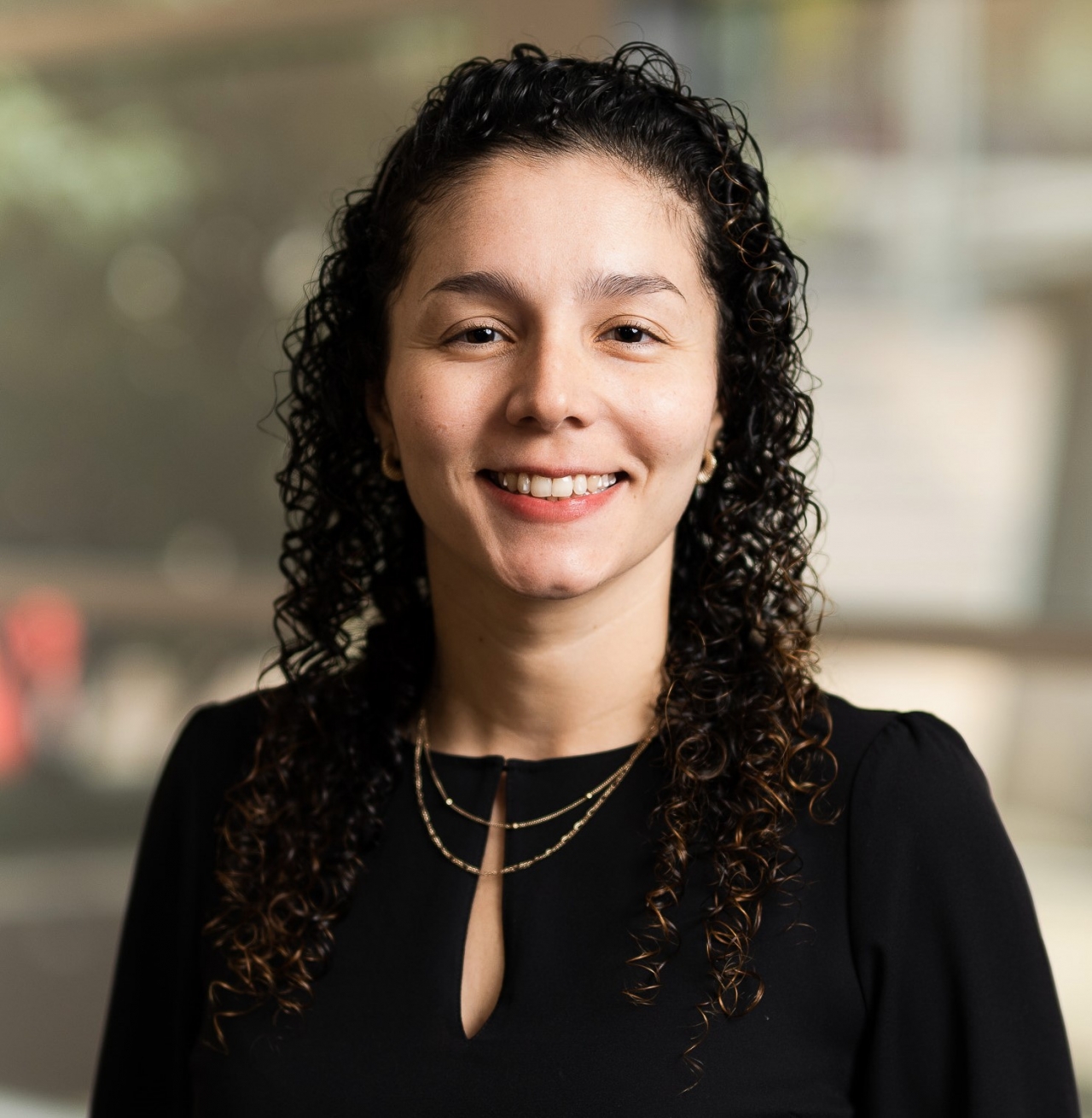 14:30~14:40
Silvia Cometta (Queensland University of Technology, Australia)
Antibacterial albumin-tannic acid coatings for scaffold-guided breast reconstruction
14:30~14:40
Silvia Cometta (Queensland University of Technology, Australia)
Antibacterial albumin-tannic acid coatings for scaffold-guided breast reconstruction
 14:40~14:50
Credson Langueh (CY Cergy Paris University, France)
In vitro accelerated ageing and infrared microscpectroscopy method study of silicone breast implant
14:40~14:50
Credson Langueh (CY Cergy Paris University, France)
In vitro accelerated ageing and infrared microscpectroscopy method study of silicone breast implant
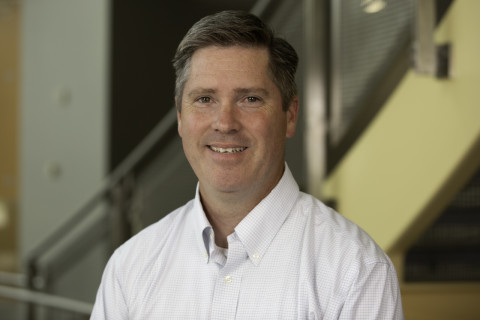 14:50~15:00
John Fisher (University of Maryland, USA)
3D printing for engineering gynecological tissues
14:50~15:00
John Fisher (University of Maryland, USA)
3D printing for engineering gynecological tissues
John Fisher
(University of Maryland, USA) Dr. John P. Fisher is the MPower Professor, Distinguished-Scholar Teacher, Fischell Family Distinguished Professor, and Department Chair in the Fischell Department of Bioengineering at the University of Maryland. Dr. Fisher is also the Director of the Center for Engineering Complex Tissue (CECT), which aims to create a broad community focusing on 3D printing and bioprinting for regenerative medicine applications. As the Director of the Tissue Engineering and Biomaterials Laboratory, Dr. Fisher’s group investigates biomaterials, stem cells, bioprinting, and bioreactors for regenerating lost tissues, particularly bone, cartilage, and cardiovascular tissues. Dr. Fisher’s laboratory has published over 225 articles, book chapters, editorials, and proceedings (16,000+ citations / 72 h-index) and delivered over 400 invited and contributed presentations, with support from NIH, NSF, FDA, NIST, DoD, and other institutions. Dr. Fisher has been elected Fellow of the American Institute for Medical and Biological Engineering (2012), the Biomedical Engineering Society (2016), the International Academy of Medical and Biological Engineering (2020), and the International Union of Societies for Biomaterials Science and Engineering (2024). In 2023, Dr. Fisher was elected Chair of the Council of Chairs (CoC), an assembly of the 150+ biomedical engineering / bioengineering department chairs throughout the United States and beyond. Dr. Fisher will serve as Chair of the CoC in 2025.
Dr. John P. Fisher is the MPower Professor, Distinguished-Scholar Teacher, Fischell Family Distinguished Professor, and Department Chair in the Fischell Department of Bioengineering at the University of Maryland. Dr. Fisher is also the Director of the Center for Engineering Complex Tissue (CECT), which aims to create a broad community focusing on 3D printing and bioprinting for regenerative medicine applications. As the Director of the Tissue Engineering and Biomaterials Laboratory, Dr. Fisher’s group investigates biomaterials, stem cells, bioprinting, and bioreactors for regenerating lost tissues, particularly bone, cartilage, and cardiovascular tissues. Dr. Fisher’s laboratory has published over 225 articles, book chapters, editorials, and proceedings (16,000+ citations / 72 h-index) and delivered over 400 invited and contributed presentations, with support from NIH, NSF, FDA, NIST, DoD, and other institutions. Dr. Fisher has been elected Fellow of the American Institute for Medical and Biological Engineering (2012), the Biomedical Engineering Society (2016), the International Academy of Medical and Biological Engineering (2020), and the International Union of Societies for Biomaterials Science and Engineering (2024). In 2023, Dr. Fisher was elected Chair of the Council of Chairs (CoC), an assembly of the 150+ biomedical engineering / bioengineering department chairs throughout the United States and beyond. Dr. Fisher will serve as Chair of the CoC in 2025.
 15:00~15:10
Subramanian Gunasekaran (Encoll Corp, USA)
Elastin in amniotic membrane can cause cancer through its bio-disintegrated peptides
15:00~15:10
Subramanian Gunasekaran (Encoll Corp, USA)
Elastin in amniotic membrane can cause cancer through its bio-disintegrated peptides
- Session TrackBiomaterials for specific medical applications
- Session TitleSex as a biological variable in biomaterials research
- Session CodeSP-T06-0042
- Date & Time / RoomMay 30 (Thu) 16:30~18:00 / Room 322
Sex as a biological variable in biomaterials research
Introductory abstract of a maximum of 300 words that addresses the symposium’s
1) objectives or purposes;
2) Proposed program and intended audience
3) expected outcomes and relevance to the main topic of WBC 2024.
Sex differences exist in both health and disease, yet our mechanistic knowledge of the underlying sex-specific molecular and cellular mechanisms involved remain poorly characterized. In terms of biomaterials, the effects of sex on processes such as fibrosis, wound healing, tissue regeneration, and immune rejection, are only now beginning to be appreciated. In this session, we seek to highlight the latest research in biomaterials-based technologies that enable sex-specific understanding of biological mechanisms in health and disease. Topics in this session include (and are not limited to) using biomaterials to design sex-specific cellular microenvironments, understand sex-specific disease pathologies and immune responses, and and develop sex-specific drug delivery and tissue engineered approaches. Incorporating sex as a biological variable in biomaterials research may enable the improved understanding of sex differences in health and disease and provide a path toward sex-specific therapies to help benefit diverse patient populations. Our session will align with the overall vision of WBC 2024, since we seek to develop therapies that will work in both women and men to achieve equity in medical practice and address sex and gender disparties in our discipline.
- Organizer
-
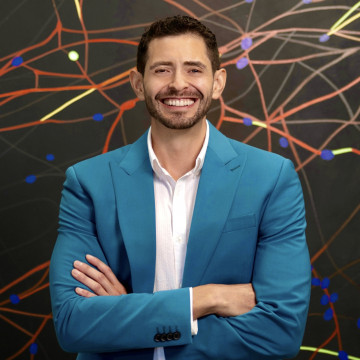 Brian Aguado (University of California San Diego, USA)
Brian Aguado (University of California San Diego, USA)
- Chair
-
 Brian Aguado (University of California San Diego, USA)
Brian Aguado (University of California San Diego, USA)
 Shelly Peyton (University of Massachusetts Amherst, USA)
Shelly Peyton (University of Massachusetts Amherst, USA)
- Keynote Speaker
-
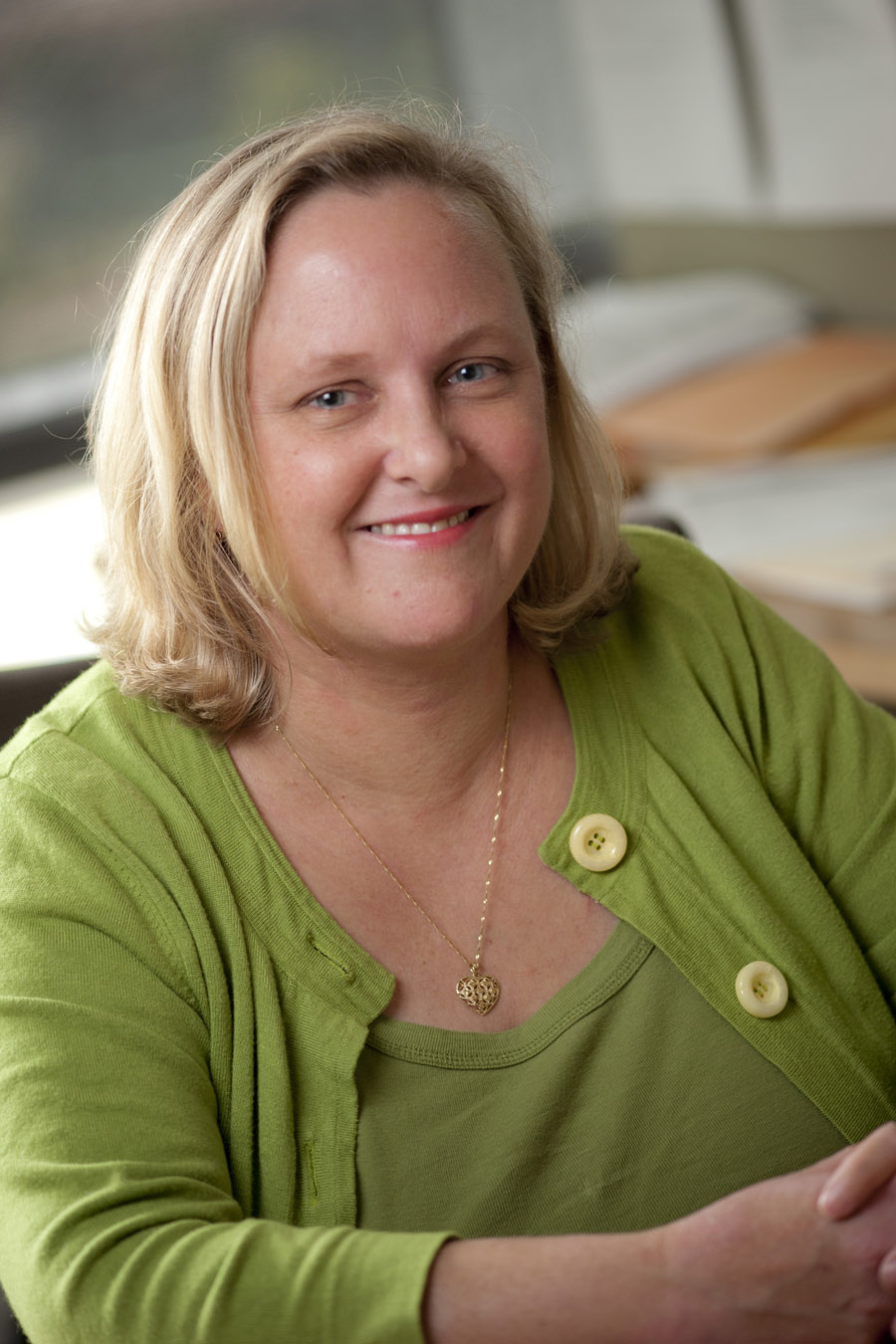 16:30~16:55
Jane Grande-Allen (Rice University, USA)
Matrix-dependent regulation of endothelial-mesenchymal transition in Turner Syndrome: relevance to bicuspid aortic valves
16:30~16:55
Jane Grande-Allen (Rice University, USA)
Matrix-dependent regulation of endothelial-mesenchymal transition in Turner Syndrome: relevance to bicuspid aortic valves
Jane Grande-Allen
(Rice University, USA) Dr. Grande-Allen is Professor of Bioengineering and Associate Dean for Faculty Development in the School of Engineering at Rice University.
Dr. Grande-Allen is Professor of Bioengineering and Associate Dean for Faculty Development in the School of Engineering at Rice University.
- Invited Speaker
-
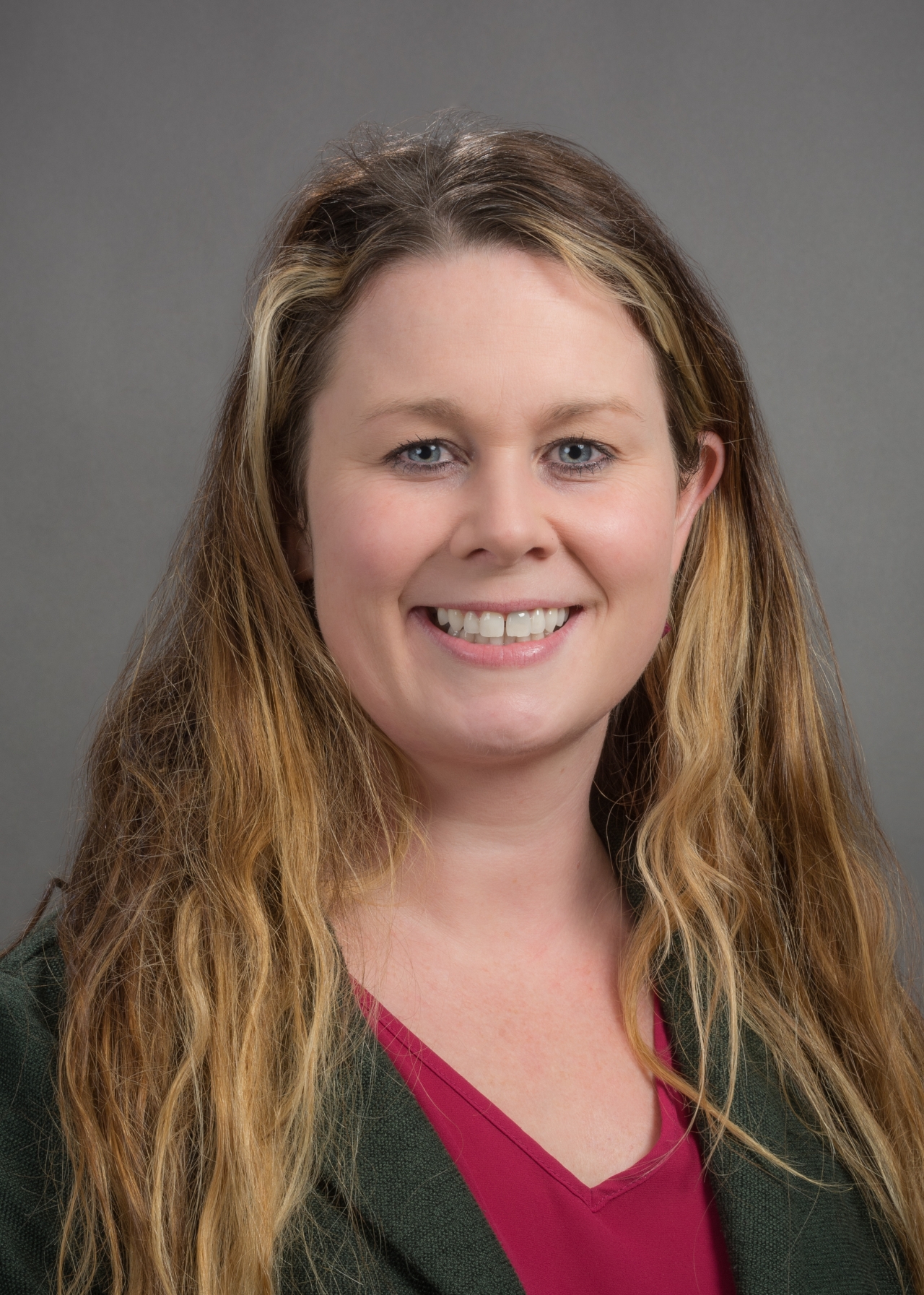 16:55~17:10
Jenny Robinson (University of Washington, USA)
Biomaterial Tools to Interrogate Sex Differences in Knee Connective Tissue Regeneration
16:55~17:10
Jenny Robinson (University of Washington, USA)
Biomaterial Tools to Interrogate Sex Differences in Knee Connective Tissue Regeneration
Jenny Robinson
(University of Washington, USA) Dr. Jenny Robinson is an Assistant Professor in Orthopaedics and Sports Medicine and Mechanical Engineering and Core Faculty in the Institute for Stem Cell and Regenerative Medicine at the University of Washington. There she holds the Endowed Chair in Women’s Sports Medicine and Lifetime Fitness. Jenny received her B.S. and Ph.D. in Biomedical Engineering from Rice University and Texas A&M University, respectively. Dr. Robinson completed her postdoctoral fellowship in Biomedical Engineering and Craniofacial Biology at Columbia University. Dr. Robinson was previously an Assistant Professor in Chemical Engineering and the Bioengineering Graduate Program at the University of Kansas prior to her move to the University of Washington. Her research has been recognized by a NIH NIGMS R35 MIRA award, a Biomaterials Science Emerging Investigator issue award, a AIChE Futures Journal award, Rosalind Franklin Society/Mary Ann Liebert Award, and delegate to the National Academy of Engineering Frontiers Symposium.
Dr. Jenny Robinson is an Assistant Professor in Orthopaedics and Sports Medicine and Mechanical Engineering and Core Faculty in the Institute for Stem Cell and Regenerative Medicine at the University of Washington. There she holds the Endowed Chair in Women’s Sports Medicine and Lifetime Fitness. Jenny received her B.S. and Ph.D. in Biomedical Engineering from Rice University and Texas A&M University, respectively. Dr. Robinson completed her postdoctoral fellowship in Biomedical Engineering and Craniofacial Biology at Columbia University. Dr. Robinson was previously an Assistant Professor in Chemical Engineering and the Bioengineering Graduate Program at the University of Kansas prior to her move to the University of Washington. Her research has been recognized by a NIH NIGMS R35 MIRA award, a Biomaterials Science Emerging Investigator issue award, a AIChE Futures Journal award, Rosalind Franklin Society/Mary Ann Liebert Award, and delegate to the National Academy of Engineering Frontiers Symposium.
 17:10~17:25
Juan Gnecco (Tufts University, USA)
Dissecting Cell-Matrix Interactions in Endometrial Disorders using Tissue Engineered Models
17:10~17:25
Juan Gnecco (Tufts University, USA)
Dissecting Cell-Matrix Interactions in Endometrial Disorders using Tissue Engineered Models
Juan Gnecco
(Tufts University, USA) Dr. Juan Gnecco is Colombian-American scientist and an Assistant Professor in the Dept. of Biomedical Engineering at Tufts University. He is the principal investigator of the Laboratory of Reproductive Engineering and an associate principal investigator in the Mother Infant Research Institute (MIRI) at Tufts Medical Center. His overarching research vision lies at the interface of women’s health and engineering to understand the immune-endocrine mechanisms driving both reproductive physiology and disease pathogenesis. As a trained reproductive biologist with extensive experience in bioengineering, he merges interdisciplinary approaches to dissect the complex and dynamic nature of the female reproductive tract. Dr. Gnecco first obtained a B.S. in Biotechnology from Rutgers University followed by a Ph.D in Cellular and Molecular Pathology from Vanderbilt University Medical Center (VUMC). He then conducted his post-doctoral training at Massachusetts Institute of Technology (MIT) where he led efforts to transform the human clinical relevance of 3-dimensional (3D) reproductive tract models. He has been awarded three rounds of funding from Gates Foundation (2018-present) for his work building phenotypic screening models of the female reproductive tract. He is the consortium lead for the World Endometriosis Research Foundation (WERF) consortium to unify experimental organoid models, and was selected as a Rising Star in Engineering and Health by Columbia University (2020)
Dr. Juan Gnecco is Colombian-American scientist and an Assistant Professor in the Dept. of Biomedical Engineering at Tufts University. He is the principal investigator of the Laboratory of Reproductive Engineering and an associate principal investigator in the Mother Infant Research Institute (MIRI) at Tufts Medical Center. His overarching research vision lies at the interface of women’s health and engineering to understand the immune-endocrine mechanisms driving both reproductive physiology and disease pathogenesis. As a trained reproductive biologist with extensive experience in bioengineering, he merges interdisciplinary approaches to dissect the complex and dynamic nature of the female reproductive tract. Dr. Gnecco first obtained a B.S. in Biotechnology from Rutgers University followed by a Ph.D in Cellular and Molecular Pathology from Vanderbilt University Medical Center (VUMC). He then conducted his post-doctoral training at Massachusetts Institute of Technology (MIT) where he led efforts to transform the human clinical relevance of 3-dimensional (3D) reproductive tract models. He has been awarded three rounds of funding from Gates Foundation (2018-present) for his work building phenotypic screening models of the female reproductive tract. He is the consortium lead for the World Endometriosis Research Foundation (WERF) consortium to unify experimental organoid models, and was selected as a Rising Star in Engineering and Health by Columbia University (2020)
- Oral Presenter
-
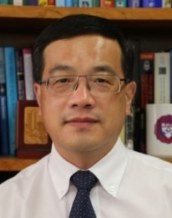 17:25~17:35
Min Wang (Department of Mechanical Engineering, The University of Hong Kong, Pokfulam Road, Hong Kong, Hong Kong SAR, China)
Biomimicking trilayer scaffolds with high stretchability and sustained estradiol release for uterine tissue regeneration
17:25~17:35
Min Wang (Department of Mechanical Engineering, The University of Hong Kong, Pokfulam Road, Hong Kong, Hong Kong SAR, China)
Biomimicking trilayer scaffolds with high stretchability and sustained estradiol release for uterine tissue regeneration
Min Wang
(Department of Mechanical Engineering, The University of Hong Kong, Pokfulam Road, Hong Kong, Hong Kong SAR, China) Min Wang earned his BSc (1985) and PhD (1991) degrees in Materials Science and Engineering at Shanghai Jiao Tong University, China, and University of London, U.K., respectively. Dr.Wang is a tenured professor at The University of Hong Kong (HKU) since 2008. He has also been a Guest Professor or Adjunct Professor of several universities in mainland China (Shanghai Jiao Tong University, Zhejiang University, Tianjin University, Southwest Jiaotong University, South China University of Technology, etc.). As Programme Director, he led HKU’s interfaculty Medical Engineering Programme in 2013-2018. He is now an elected member of HKU’s Senate. Prior to joining HKU in 2003, Dr.Wang conducted research and teaching in universities in the UK (1991-1997), Singapore (1997-2002) and Hong Kong (2002-2003). For his achievements and contributions, he is elected a fellow of professional societies in the UK, Hong Kong, USA and internationally (FIMMM, 2001; FIMechE, 2007; FHKIE, 2010; FBSE, 2011; FAIMBE, 2012; WAC Academician, 2013; FRSC, 2020). His research interests include biomedical materials, tissue engineering, controlled release, and bionanotechnology. He has authored a large number of publications in peer-reviewed journals, books and conference proceedings. He has given many conference presentations, including over 190 invited talks at international conferences. He and his team have won many awards at international conferences. He has been developing new biomaterials using the composite/hybridization approach since 1991 and has been conducting tissue engineering research since 1999. The seminal research on bioactive bone analogue materials for bone substitution conducted in London by him and his colleagues in the 1990s were widely reported by the press (The Times in the UK, Chinese Science News in China, etc.). He is a leading researcher internationally on biomedical composite research and his work on biomedical composites has been widely cited by researchers in many countries. Dr.Wang and co-workers have also investigated various fabrication technologies for tissue engineering scaffolds, including freeze-drying, electrospinning and 3D printing, and the scaffolds developed are used to regenerate tissues such as bone, osteochondral tissue, blood vessel, peripheral nerve and gastrointestinal tract. His group also develops new materials and mechanisms for 4D printing in tissue engineering. He has authored chapters on 3D printing for authoritative books. Dr.Wang has been the Series Editor of Springer Series in Biomaterials Science and Engineering (http://www.springer.com/series/10955) books since 2012 and Editor or Associate Editor of journals (Progress in Materials Science, Medical & Biological Engineering & Computing, IET Nanobiotechnology, etc.). He served/serves in the Editorial Board of more than 20 international journals, including Journal of Materials Science: Materials in Medicine, Composites Science and Technology, Biomedical Materials, Biomaterials Research, and Journal of Orthopaedic Translation. Dr.Wang has served as Chair/Co-Chair and/or Organizer/Co-Organizer of 29 international conferences/symposia/workshops, including symposium/workshop in four World Biomaterials Congresses. Dr.Wang was/is an elected Council Member of Hong Kong Institution of Engineers, Chinese Society for Biomaterials (CSBM), Asian Biomaterials Federation, World Association for Chinese Biomedical Engineers (WACBE), and International Federation for Medical and Biological Engineering (IFMBE). Currently, he is also an elected member of the Steering Committee and Treasurer of IUS-BSE’s International College of Fellows.
Min Wang earned his BSc (1985) and PhD (1991) degrees in Materials Science and Engineering at Shanghai Jiao Tong University, China, and University of London, U.K., respectively. Dr.Wang is a tenured professor at The University of Hong Kong (HKU) since 2008. He has also been a Guest Professor or Adjunct Professor of several universities in mainland China (Shanghai Jiao Tong University, Zhejiang University, Tianjin University, Southwest Jiaotong University, South China University of Technology, etc.). As Programme Director, he led HKU’s interfaculty Medical Engineering Programme in 2013-2018. He is now an elected member of HKU’s Senate. Prior to joining HKU in 2003, Dr.Wang conducted research and teaching in universities in the UK (1991-1997), Singapore (1997-2002) and Hong Kong (2002-2003). For his achievements and contributions, he is elected a fellow of professional societies in the UK, Hong Kong, USA and internationally (FIMMM, 2001; FIMechE, 2007; FHKIE, 2010; FBSE, 2011; FAIMBE, 2012; WAC Academician, 2013; FRSC, 2020). His research interests include biomedical materials, tissue engineering, controlled release, and bionanotechnology. He has authored a large number of publications in peer-reviewed journals, books and conference proceedings. He has given many conference presentations, including over 190 invited talks at international conferences. He and his team have won many awards at international conferences. He has been developing new biomaterials using the composite/hybridization approach since 1991 and has been conducting tissue engineering research since 1999. The seminal research on bioactive bone analogue materials for bone substitution conducted in London by him and his colleagues in the 1990s were widely reported by the press (The Times in the UK, Chinese Science News in China, etc.). He is a leading researcher internationally on biomedical composite research and his work on biomedical composites has been widely cited by researchers in many countries. Dr.Wang and co-workers have also investigated various fabrication technologies for tissue engineering scaffolds, including freeze-drying, electrospinning and 3D printing, and the scaffolds developed are used to regenerate tissues such as bone, osteochondral tissue, blood vessel, peripheral nerve and gastrointestinal tract. His group also develops new materials and mechanisms for 4D printing in tissue engineering. He has authored chapters on 3D printing for authoritative books. Dr.Wang has been the Series Editor of Springer Series in Biomaterials Science and Engineering (http://www.springer.com/series/10955) books since 2012 and Editor or Associate Editor of journals (Progress in Materials Science, Medical & Biological Engineering & Computing, IET Nanobiotechnology, etc.). He served/serves in the Editorial Board of more than 20 international journals, including Journal of Materials Science: Materials in Medicine, Composites Science and Technology, Biomedical Materials, Biomaterials Research, and Journal of Orthopaedic Translation. Dr.Wang has served as Chair/Co-Chair and/or Organizer/Co-Organizer of 29 international conferences/symposia/workshops, including symposium/workshop in four World Biomaterials Congresses. Dr.Wang was/is an elected Council Member of Hong Kong Institution of Engineers, Chinese Society for Biomaterials (CSBM), Asian Biomaterials Federation, World Association for Chinese Biomedical Engineers (WACBE), and International Federation for Medical and Biological Engineering (IFMBE). Currently, he is also an elected member of the Steering Committee and Treasurer of IUS-BSE’s International College of Fellows.
 17:35~17:45
Vasiliki Kolliopoulos (Rice University, USA)
Sex-based differences in human mesenchymal stem cell osteogenic response on mineralized collagen scaffolds
17:35~17:45
Vasiliki Kolliopoulos (Rice University, USA)
Sex-based differences in human mesenchymal stem cell osteogenic response on mineralized collagen scaffolds
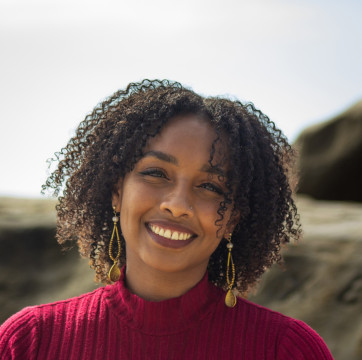 17:45~17:55
Rayyan Gorashi (University of California, San Diego, USA)
Y-chromosome linked genes modulate sex-specific valvular myofibroblast methylation on hydrogels
17:45~17:55
Rayyan Gorashi (University of California, San Diego, USA)
Y-chromosome linked genes modulate sex-specific valvular myofibroblast methylation on hydrogels
- Session TrackLuncheon Seminar
- Session TitleWomen in Biomaterials Science
- Session CodeSP-T14-0459
- Date & Time / RoomMay 28 (Tue) 12:20~13:20 / Room 324-A
Women in Biomaterials Science
Women play a crucial and influential role, contributing significantly to advancements of the dynamic field of biomaterials research. Nevertheless, a disparity in gender representation has persisted, and this imbalance can be attributed, at least in part, to cultures that lack support and impede the progress of women in their professional endeavors. This luncheon session will feature a panel of women scientists with diverse perspectives and experiences in the realm of biomaterials research, with brief presentations and discussions focusing on experiences, goals and best practices for effectively addressing barriers for increased diversity and inclusivity in biomaterials research.
- Organizer
-
 Seung-Woo Cho (Yonsei University, Korea, Republic of)
Seung-Woo Cho (Yonsei University, Korea, Republic of)
- Chair
-
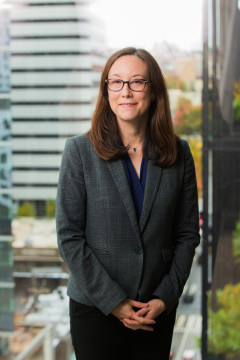 Shelly Sakiyama-Elbert (University of Washington, USA)
Shelly Sakiyama-Elbert (University of Washington, USA)
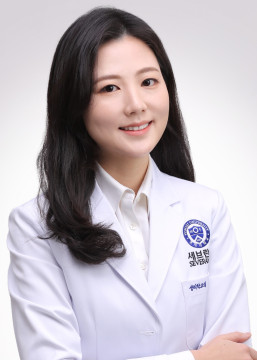 Yoonhee Jin (Yonsei University, Korea, Republic of)
Yoonhee Jin (Yonsei University, Korea, Republic of)
- Invited Speaker
-
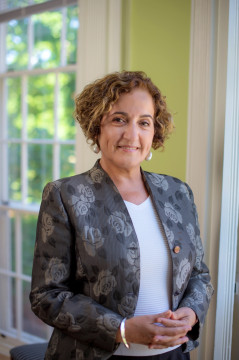 12:20~12:35
Hala Zreiqat (University of Sydney, Australia)
12:20~12:35
Hala Zreiqat (University of Sydney, Australia)
Hala Zreiqat
(University of Sydney, Australia) Hala Zreiqat, is a Payne-Scott Professor of biomedical engineering at The University of Sydney. The focus of her lab is on engineering functional synthetic biomaterials for use in regenerative medicine using cutting-edge materials, biological and nano techniques, and novel 3D-printing technologies.
Hala Zreiqat, is a Payne-Scott Professor of biomedical engineering at The University of Sydney. The focus of her lab is on engineering functional synthetic biomaterials for use in regenerative medicine using cutting-edge materials, biological and nano techniques, and novel 3D-printing technologies.
Prof. Zreiqat’s contribution to regenerative medicine and orthopaedic research has led to a number of national and international awards, including being named a Member of the Order of Australia (2019), 2021-2022 Fulbright Senior Scholar; Laureate for the TAKREEM Foundation 2022 “Scientific & Technological Achievement”; the 2018 New South Wales Premier’s Woman of the Year, the King Abdullah II Order of Distinction of the Second Class (2018), Radcliffe Fellow at Harvard University (2016-2017); Eureka Prize winner for Innovative Use of Technology (2019); and University of Sydney Payne-Scott Professorial Distinction (2019). She is also a Fellow of the Australian Academy of Sciences (2021); the Australian Academy of Technology & Engineering (2020), the International Association of Advanced Materials (2022), the Royal Society of New South Wales (2019); Australian Academy of Health and Medical Sciences (2019), and the International Orthopaedic Research Society (2019). She is the past president of the Australian & New Zealand Orthopaedic Research Society. She was the Director of the Australian Research Council Training Centre for Innovative BioEngineering (2017-2022) and a National Health and Medical Research Council Senior Research Fellow (2006-2020). She is the Chair of the Council for Australian-Arab Relations (CAAR) (2020-2023); an Associate of the John A. Paulson School of Engineering and Applied Sciences at Harvard University and an Honorary Professor at Shanghai Jiao Tong University.
Prof. Zreiqat has authored over 180 peer-reviewed publications with over 10,000 citations. Her research in the field of musculoskeletal disorders and biomaterials research has led to four awarded and four provisional patents and more than $20.5M in competitive funding, including major grants from the National Health and Medical Research Council, Australian Research Council and the New South Wales Medical Devices Fund.
As well as her pioneering work in biomaterials development, Prof. Zreiqat is committed to improving opportunities for women and young scientists around the world. She is the founder and Chair of the BIOTech Futures, a science and engineering mentorship program for high school students. 12:35~12:50
Sung Yun Yang (Chungnam National University, Korea, Republic of)
12:35~12:50
Sung Yun Yang (Chungnam National University, Korea, Republic of)
Sung Yun Yang
(Chungnam National University, Korea, Republic of) Sung Yun Yang received her B.S and M.S. from Ewha Womans University in 1991 and 1993, respectively. After serving in the Chemistry division at KRICT and KIST, in 1995 moved to USA for her doctoral degree in Polymer Chemistry and Engineering at Polytechnic University, New York University currently. In August of 2000, she moved to MIT as a postdoctoral researcher in the Department of Materials Science and Engineering. She worked in a biotech company for a year and returned to Korea in 2004 starting her professorship at Chungnam National University. Since 2004 she has been with CNU, is now a professor of Organic Materials Engineering. Along with her research and academic activity, she also served as a vice-president of the Center for Women in Science, Engineering and Technology to promote educational opportunity for woman engineers. Prof. Yang’s research interests include functional nanomaterials for energy, environmental sustainability, and biomedical application.
Sung Yun Yang received her B.S and M.S. from Ewha Womans University in 1991 and 1993, respectively. After serving in the Chemistry division at KRICT and KIST, in 1995 moved to USA for her doctoral degree in Polymer Chemistry and Engineering at Polytechnic University, New York University currently. In August of 2000, she moved to MIT as a postdoctoral researcher in the Department of Materials Science and Engineering. She worked in a biotech company for a year and returned to Korea in 2004 starting her professorship at Chungnam National University. Since 2004 she has been with CNU, is now a professor of Organic Materials Engineering. Along with her research and academic activity, she also served as a vice-president of the Center for Women in Science, Engineering and Technology to promote educational opportunity for woman engineers. Prof. Yang’s research interests include functional nanomaterials for energy, environmental sustainability, and biomedical application.
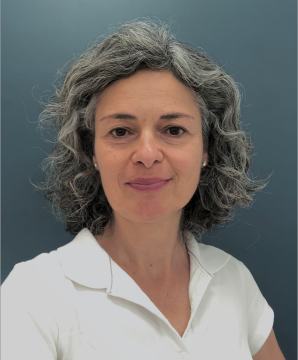 12:50~13:05
Maria Chatzinikolaidou (Foundation for Research and Technology Hellas (FORTH) Institute of Electronic Structure and Laser 100, Greece)
12:50~13:05
Maria Chatzinikolaidou (Foundation for Research and Technology Hellas (FORTH) Institute of Electronic Structure and Laser 100, Greece)
Maria Chatzinikolaidou
(Foundation for Research and Technology Hellas (FORTH) Institute of Electronic Structure and Laser 100, Greece) Dr. Maria Chatzinikolaidou, FBSE, FTERM, is an Associate Professor of Biomaterials in Bioengineering and Head of the Laboratory for Biomaterials in Tissue Engineering at the Department of Materials Science and Technology at the University of Crete (https://www.materials.uoc.gr/el/general/personnel/mchatzin.html), and affiliated faculty member at Foundation for Research and Technology – Hellas (FORTH). Her research interests focus on the development of biomaterials and scaffolds for tissue engineering applications including bone, dental, cardiovascular, and the validation of their in vitro and in vivo biocompatibility, functionality and biomechanical characteristics.
Dr. Maria Chatzinikolaidou, FBSE, FTERM, is an Associate Professor of Biomaterials in Bioengineering and Head of the Laboratory for Biomaterials in Tissue Engineering at the Department of Materials Science and Technology at the University of Crete (https://www.materials.uoc.gr/el/general/personnel/mchatzin.html), and affiliated faculty member at Foundation for Research and Technology – Hellas (FORTH). Her research interests focus on the development of biomaterials and scaffolds for tissue engineering applications including bone, dental, cardiovascular, and the validation of their in vitro and in vivo biocompatibility, functionality and biomechanical characteristics.
Dr. Chatzinikolaidou is actively involved in several competitive national and international projects, is author of >90 publications in international peer-reviewed journals, 4 book chapters, >180 peer-reviewed conference abstracts, and inventor of 4 patents on osteoinductive implants. She was elected member of the Executive Board of the Hellenic Society for Biomaterials and served as vice president in the terms 2015-2018 and 2022-now. She served as chair of the 28th Conference of the European Society for Biomaterials (ESB 2017) held in Athens, and program chair of the TERMIS-EU 2019 conference held in Rhodes in Greece. She is a Fellow in Biomaterials Science and Engineering (FBSE, elected 2020) of the International Union of Societies for Biomaterials Science and Engineering (IUS-BSE) and International Fellow of Tissue Engineering and Regenerative Medicine (FTERM, elected 2023). Since 2022 she is member of the Nomination Committee of Tissue Engineering and Regenerative Medicine International Society (TERMIS) EU chapter. She is an editorial board member in Tissue Engineering, Frontiers in Bioengineering and Biotechnology, Regenerative Biomaterials, Frontiers in Bioengineering and Biotechnology, Journal of Materials Science Materials in Medicine etc. She teaches lectures on Biomaterials, Cell Biology and Biochemistry, and Tissue Engineering in undergraduate and graduate courses at the University of Crete and other Universities in Grece, and is currently supervisor of four PhD candidates and three Master’s students.
Publication in Biomaterials research: advice from Editor-in-chief
- Session TrackLuncheon Seminar
- Session TitleMeet editors related to biomaterials
- Session CodeSP-T14-0402
- Date & Time / RoomMay 28 (Tue) 12:20~13:30 / Room 325-AB
Meet editors related to biomaterials
This forum provides an opportunity for participants to engage with editors from prominent publications specializing in the disciplines of biomaterials, tissue engineering, and biomedical engineering. The editors provide a concise overview of three key aspects of the journal: 1) its scopes and purposes, 2) the peer review process and policy, and 3) the latest statistics pertaining to peer review and citation. Subsequently, all participants proceed to pose their queries to the editors concerning the procedures for submitting manuscripts and the subsequent review process. Therefore, this session has the potential to address several significant challenges and misunderstandings that arise during the review process of these core journals in the respective research domains. Additionally, it can enhance effective communication between the editorial teams and authors who contribute to these journals.
- Organizer
-
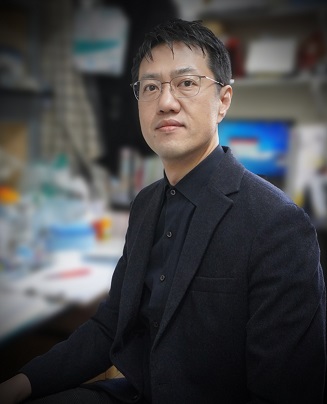 Hyuk Sang Yoo (Kangwon National University, Korea, Republic of)
Hyuk Sang Yoo (Kangwon National University, Korea, Republic of)
- Chair
-
 Hyuk Sang Yoo (Kangwon National University, Korea, Republic of)
Hyuk Sang Yoo (Kangwon National University, Korea, Republic of)
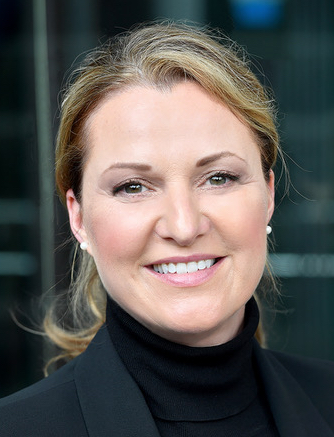 Katja Schenke-Layland (Eberhard Karls University Tubingen, Germany)
Katja Schenke-Layland (Eberhard Karls University Tubingen, Germany)
- Invited Speaker
-
 12:20~12:28
Kam W. Leong (Columbia University, USA)
12:20~12:28
Kam W. Leong (Columbia University, USA)
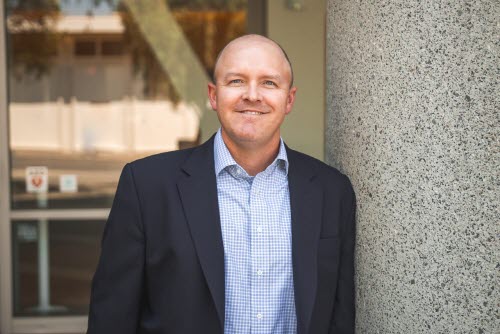 12:28~12:36
Kent Leach (University of California Davis, USA)
12:28~12:36
Kent Leach (University of California Davis, USA)
Kent Leach
(University of California Davis, USA) J. Kent Leach is the Lawrence J. Ellison Endowed Professor of Musculoskeletal Research and Vice Chair of Research in the Department of Orthopaedic Surgery and Professor of Biomedical Engineering at the University of California, Davis. His research interests are focused on developing cell-instructive biomaterials for tissue engineering of replacement tissues and cultivated meat, applying transport principles for growth of engineered tissues and modeling cancer, and translation from the bench to the clinic. He is the Editor-in-Chief of the Journal of Biomedical Materials Research Part A, the official journal of the Society for Biomaterials (SFB). He was inducted into the College of Fellows of the American Institute for Medical and Biological Engineering (AIMBE) in 2017 and as a Fellow of the Biomedical Engineering Society in 2018. He is the Program Director of one of eight NIH-funded predoctoral training grants focused on musculoskeletal health nationally. He has received multiple teaching and mentorship awards at UC Davis, and he holds various leadership roles in his scientific communities including the Board of Directors of BMES and within the Orthopaedic Research Society (ORS).
J. Kent Leach is the Lawrence J. Ellison Endowed Professor of Musculoskeletal Research and Vice Chair of Research in the Department of Orthopaedic Surgery and Professor of Biomedical Engineering at the University of California, Davis. His research interests are focused on developing cell-instructive biomaterials for tissue engineering of replacement tissues and cultivated meat, applying transport principles for growth of engineered tissues and modeling cancer, and translation from the bench to the clinic. He is the Editor-in-Chief of the Journal of Biomedical Materials Research Part A, the official journal of the Society for Biomaterials (SFB). He was inducted into the College of Fellows of the American Institute for Medical and Biological Engineering (AIMBE) in 2017 and as a Fellow of the Biomedical Engineering Society in 2018. He is the Program Director of one of eight NIH-funded predoctoral training grants focused on musculoskeletal health nationally. He has received multiple teaching and mentorship awards at UC Davis, and he holds various leadership roles in his scientific communities including the Board of Directors of BMES and within the Orthopaedic Research Society (ORS).
 12:36~12:44
Katja Schenke-Layland (Eberhard Karls University Tubingen, Germany)
12:36~12:44
Katja Schenke-Layland (Eberhard Karls University Tubingen, Germany)
Katja Schenke-Layland
(Eberhard Karls University Tubingen, Germany) Katja Schenke-Layland is the Professor of Medical Technologies and Regenerative Medicine at the Medical Faculty of the University Tübingen (MFT). She is the Director of the NMI Natural and Medical Sciences Institute in Reutlingen, the CEO of the NMI-TT GmbH, and the Study Dean of Medical Technologies at the University of Tübingen. Katja is currently the Co-Editor-In-Chief of Tissue Engineering Part B (Mary Ann Liebert) and Executive Editor of Advanced Drug Delivery Reviews (Elsevier), as well as on several editorial boards such as Matrix Biology (Elsevier), Current Opinion in Biomedical Engineering (Elsevier), and Journal of 3D Printing in Medicine (Future Medicine). Katja is a fellow/ board member of the German National Academy of Science and Engineering (acatech), the German Central Ethics Committee for Stem Cell Research (ZES), International and German Societies of Matrix Biology, and the European Alliance for Medical and Biological Engineering and Science (EAMBES). She has published more than 190 peer-reviewed articles, has an h-index of 51 (Scopus), and has been granted 4 patents.
Katja Schenke-Layland is the Professor of Medical Technologies and Regenerative Medicine at the Medical Faculty of the University Tübingen (MFT). She is the Director of the NMI Natural and Medical Sciences Institute in Reutlingen, the CEO of the NMI-TT GmbH, and the Study Dean of Medical Technologies at the University of Tübingen. Katja is currently the Co-Editor-In-Chief of Tissue Engineering Part B (Mary Ann Liebert) and Executive Editor of Advanced Drug Delivery Reviews (Elsevier), as well as on several editorial boards such as Matrix Biology (Elsevier), Current Opinion in Biomedical Engineering (Elsevier), and Journal of 3D Printing in Medicine (Future Medicine). Katja is a fellow/ board member of the German National Academy of Science and Engineering (acatech), the German Central Ethics Committee for Stem Cell Research (ZES), International and German Societies of Matrix Biology, and the European Alliance for Medical and Biological Engineering and Science (EAMBES). She has published more than 190 peer-reviewed articles, has an h-index of 51 (Scopus), and has been granted 4 patents.
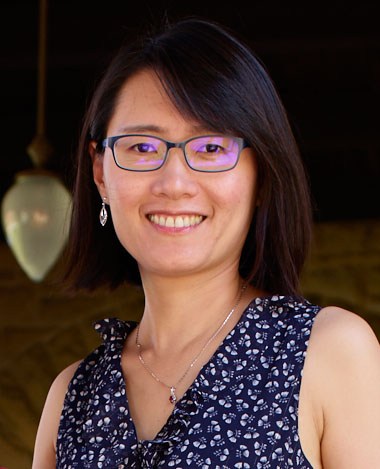 12:44~12:52
Fan Yang (Stanford University School of Medicine, USA)
12:44~12:52
Fan Yang (Stanford University School of Medicine, USA)
Fan Yang
(Stanford University School of Medicine, USA) Fan Yang is an Associate Professor with tenure at Stanford University with joint appointments in the Departments of Bioengineering and Orthopaedic Surgery, and Director of Stanford Stem Cells and Biomaterials Engineering Laboratory. Her research seeks to develop hydrogels with unique design at micro- and nano- scales to modulate stem cell differentiation, tissue regeneration and immunomodulation, with applications focus on musculoskeletal diseases. Her lab also harnesses biomaterials to create 3D cancer models with in vivo-mimicking phenotype and drug responses. Such 3D models could enable discovering novel druggable targets that would otherwise be missed using conventional 2D culture, and enable high-throughput drug screening with reduced cost and time than animal models. Prior to joining Stanford, Dr. Yang received her Ph.D. in Biomedical Engineering from Johns Hopkins University, and then completed a postdoctoral fellowship at MIT under Prof. Robert Langer. In recognition of her innovation, she has been recognized by numerous awards including Fellow of American Institute for Medical and Biological Engineering, MIT TR35 Global list honoree, National Science Foundation CAREER award, Young Investigator Award from Society for Biomaterials, Biomaterials Science Lectureship Award, Young Investigator award from Alliance for Cancer and Gene Therapy, Ellen Weaver Award by the Association for Women in Science, Baxter Faculty Scholar Award, the McCormick Faculty Award, Stanford Asian American Faculty Award, and the Basil O’Connor Starter Scholar Research Award.
Fan Yang is an Associate Professor with tenure at Stanford University with joint appointments in the Departments of Bioengineering and Orthopaedic Surgery, and Director of Stanford Stem Cells and Biomaterials Engineering Laboratory. Her research seeks to develop hydrogels with unique design at micro- and nano- scales to modulate stem cell differentiation, tissue regeneration and immunomodulation, with applications focus on musculoskeletal diseases. Her lab also harnesses biomaterials to create 3D cancer models with in vivo-mimicking phenotype and drug responses. Such 3D models could enable discovering novel druggable targets that would otherwise be missed using conventional 2D culture, and enable high-throughput drug screening with reduced cost and time than animal models. Prior to joining Stanford, Dr. Yang received her Ph.D. in Biomedical Engineering from Johns Hopkins University, and then completed a postdoctoral fellowship at MIT under Prof. Robert Langer. In recognition of her innovation, she has been recognized by numerous awards including Fellow of American Institute for Medical and Biological Engineering, MIT TR35 Global list honoree, National Science Foundation CAREER award, Young Investigator Award from Society for Biomaterials, Biomaterials Science Lectureship Award, Young Investigator award from Alliance for Cancer and Gene Therapy, Ellen Weaver Award by the Association for Women in Science, Baxter Faculty Scholar Award, the McCormick Faculty Award, Stanford Asian American Faculty Award, and the Basil O’Connor Starter Scholar Research Award.
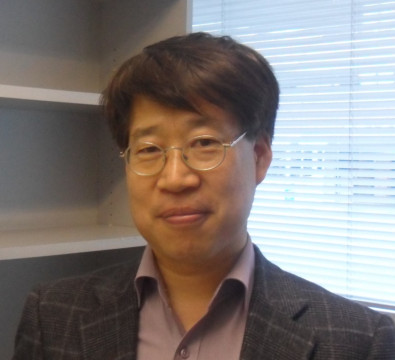 12:52~13:00
Byeongmoon Jeong (Ewha Womans University, Korea, Republic of)
12:52~13:00
Byeongmoon Jeong (Ewha Womans University, Korea, Republic of)
Byeongmoon Jeong
(Ewha Womans University, Korea, Republic of) Byeongmoon Jeong received his B.S. (1987) in the Department of Chemistry from Seoul National University, M.S (1989) from KAIST, and his Ph.D. (1999) in the Department of Pharmaceutics and Pharmaceutical Chemistry at the University of Utah. He worked at the Pacific Northwest National Laboratory, USA as a senior research scientist before joining Ewha Womans University in 2002. He has authored 150 international peer-reviewed papers and patents on stimuli-sensitive polymers; particularly related to biodegradable thermogels. His publications have been cited 17,000 times during the last decade. He received an Achievement Award in the Polymer Division of Korean Chemical Society (2010), Hanwha Polymer Award from Polymer Society of Korea (2021), Osstem Implant Biomaterials Grand Prize from Korean Society for Biomaterials (KSBM) (2022). His research concentrates on stimuli-sensitive hydrogels and their applications for drug delivery and tissue engineering. He is also serving as vice president of KSBM and editor in cheif of Biomaterials Research, an official journal of KSBM.
Byeongmoon Jeong received his B.S. (1987) in the Department of Chemistry from Seoul National University, M.S (1989) from KAIST, and his Ph.D. (1999) in the Department of Pharmaceutics and Pharmaceutical Chemistry at the University of Utah. He worked at the Pacific Northwest National Laboratory, USA as a senior research scientist before joining Ewha Womans University in 2002. He has authored 150 international peer-reviewed papers and patents on stimuli-sensitive polymers; particularly related to biodegradable thermogels. His publications have been cited 17,000 times during the last decade. He received an Achievement Award in the Polymer Division of Korean Chemical Society (2010), Hanwha Polymer Award from Polymer Society of Korea (2021), Osstem Implant Biomaterials Grand Prize from Korean Society for Biomaterials (KSBM) (2022). His research concentrates on stimuli-sensitive hydrogels and their applications for drug delivery and tissue engineering. He is also serving as vice president of KSBM and editor in cheif of Biomaterials Research, an official journal of KSBM.
 13:00~13:08
Michaela Muehlberg (Royal Society of Chemstry (RSC), United Kingdom)
13:00~13:08
Michaela Muehlberg (Royal Society of Chemstry (RSC), United Kingdom)
Biomaterials education
- Session TrackLuncheon Seminar
- Session TitleBiomaterials Education Symposium at the WBC 2024
- Session CodeSP-T14-0388
- Date & Time / RoomMay 29 (Wed) 12:20~13:30 / Room 324-A
Biomaterials Education Symposium at the WBC 2024
The field of biomaterials is a highly interdisciplinary field where materials science and engineering meet chemistry, biology, medicine and entrepreneurship. The advancement of this complex field therefore necessitates research collaborations from various experts. Pushing the field forward, however, also implies educating the future generations of scientists and engineers in a better way than how we were once trained. Given the complexity and interdisciplinarity of the field, it is no secret that we meet many challenges in our attempts to transfer our knowledge, skills and experience to our students. In order to be able to improve our education in this field, it is imperative that we share our teaching practices and ideas in biomaterials.
In this symposium we wish to invite experts and educators in the field of biomaterials to share their observations, challenges (and solutions), practices, initiatives, and research in the education relating to biomaterials. Contributions at any level are welcome, ranging from simple tips & tricks used to activate students in lessons, or new and original experiments for practicals, to new courses and even programs. The intention is not only to exchange best practices and learn from each other during this conference but also to create a network in which sharing ideas and experiences would also lead to new initiatives and collaborations on the education in the field of biomaterials.
- Organizer
-
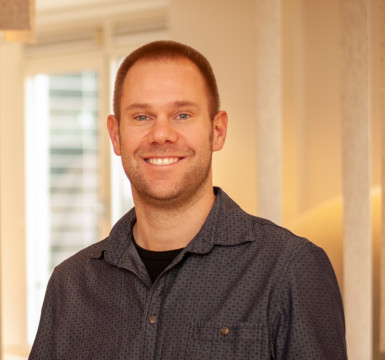 Jurica Bauer (Maastricht University, Netherlands)
Jurica Bauer (Maastricht University, Netherlands)
- Chair
-
 Jurica Bauer (Maastricht University, Netherlands)
Jurica Bauer (Maastricht University, Netherlands)
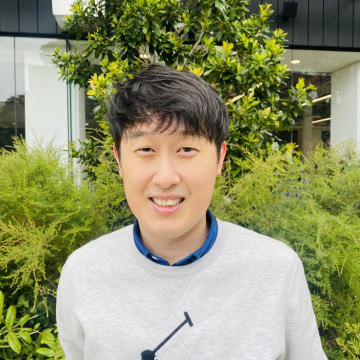 Young Jung No (The University of Sydney, Australia)
Young Jung No (The University of Sydney, Australia)
- Keynote Speaker
-
 12:20~12:45
Johnna S. Temenoff (Georgia Tech and Emory University, USA)
Undergraduate and graduate training in biomaterials within a BME curriculum
12:20~12:45
Johnna S. Temenoff (Georgia Tech and Emory University, USA)
Undergraduate and graduate training in biomaterials within a BME curriculum
Johnna S. Temenoff
(Georgia Tech and Emory University, USA) Dr. Johnna S. Temenoff is the Carol Ann and David D. Flanagan Professor the Coulter Department of Biomedical Engineering at Georgia Tech/Emory University. She is also currently the Director of the NSF Engineering Research Center in Cell Manufacturing Technologies (CMaT) and the Director of the Marcus Center for Therapeutic Cell Characterization and Manufacturing (MC3M). Scientifically, Dr. Temenoff is interested in scaling culture of therapeutic cells and tailoring the molecular interactions between glycosaminoglycans and proteins/cells for use in regenerative medicine applications. Her laboratory focuses primarily on promoting repair after injuries to the tissues of the shoulder, including cartilage, tendon, and muscle.
Dr. Johnna S. Temenoff is the Carol Ann and David D. Flanagan Professor the Coulter Department of Biomedical Engineering at Georgia Tech/Emory University. She is also currently the Director of the NSF Engineering Research Center in Cell Manufacturing Technologies (CMaT) and the Director of the Marcus Center for Therapeutic Cell Characterization and Manufacturing (MC3M). Scientifically, Dr. Temenoff is interested in scaling culture of therapeutic cells and tailoring the molecular interactions between glycosaminoglycans and proteins/cells for use in regenerative medicine applications. Her laboratory focuses primarily on promoting repair after injuries to the tissues of the shoulder, including cartilage, tendon, and muscle.
- Invited Speaker
-
 12:45~13:00
Jurica Bauer (Maastricht University, Netherlands)
Teaching biomaterials in a new multidisciplinary bachelor “Regenerative Medicine and Technology”
12:45~13:00
Jurica Bauer (Maastricht University, Netherlands)
Teaching biomaterials in a new multidisciplinary bachelor “Regenerative Medicine and Technology”
Jurica Bauer
(Maastricht University, Netherlands) Dr. Jurica Bauer graduated in chemistry from the University of Zagreb, Croatia, where he developed a passion for research and teaching. Having worked as medicinal chemist at GlaxoSmithKline for a few years, he moved to The Netherlands to pursue a PhD degree in the field of molecular motors and machines with Professor Feringa at the University of Groningen. As a postdoctoral researcher in the group of Professor Broer at the Eindhoven University of Technology and in collaboration with Philips, he developed a smart liquid-crystalline polymer coating for LEDs to fine-tune the properties of emitted light. In 2014 he was appointed Lecturer in Chemistry at the Inholland University of Applied Sciences in Amsterdam where he developed a new Polymer Chemistry minor and acted as graduation and internationalization coordinator. In 2020 he joined the MERLN Institute at the Maastricht University as Assistant Professor of Education to coordinate the design and development of a new undergraduate study program in the field of Regenerative Medicine and Technology. He is also involved in ongoing teaching and research activities within the institute. His interests include innovation and research in STEM education and scientific research in the field of smart, and especially photoresponsive, nanobiomaterials for medicinal applications.
Dr. Jurica Bauer graduated in chemistry from the University of Zagreb, Croatia, where he developed a passion for research and teaching. Having worked as medicinal chemist at GlaxoSmithKline for a few years, he moved to The Netherlands to pursue a PhD degree in the field of molecular motors and machines with Professor Feringa at the University of Groningen. As a postdoctoral researcher in the group of Professor Broer at the Eindhoven University of Technology and in collaboration with Philips, he developed a smart liquid-crystalline polymer coating for LEDs to fine-tune the properties of emitted light. In 2014 he was appointed Lecturer in Chemistry at the Inholland University of Applied Sciences in Amsterdam where he developed a new Polymer Chemistry minor and acted as graduation and internationalization coordinator. In 2020 he joined the MERLN Institute at the Maastricht University as Assistant Professor of Education to coordinate the design and development of a new undergraduate study program in the field of Regenerative Medicine and Technology. He is also involved in ongoing teaching and research activities within the institute. His interests include innovation and research in STEM education and scientific research in the field of smart, and especially photoresponsive, nanobiomaterials for medicinal applications.
 13:00~13:15
Young Jung No (The University of Sydney, Australia)
Effectively engaging the next generation of biomedical engineers in biomaterials through innovative learning activities and assessment design
13:00~13:15
Young Jung No (The University of Sydney, Australia)
Effectively engaging the next generation of biomedical engineers in biomaterials through innovative learning activities and assessment design
Young Jung No
(The University of Sydney, Australia) Dr Young No is a biomaterials engineer, Lecturer (US: Assistant Professor) and Deputy Head of School (Education) at the School of Biomedical Engineering at the University of Sydney, and also served as acting Associate Dean (Learning and Teaching) at the Faculty of Engineering in early 2023. Dr No was also awarded “40 under 40 Most Influential Asian-Australian for 2022” by the Asian-Australian Leadership Summit for his leadership in biomedical engineering programs at the University of Sydney, shaping the curriculum to be the most comprehensive in the southern hemisphere in terms of topics and areas covered to match the rapidly rising importance and relevance of biomedical engineering in the modern-day technological setting. His innovative and engaging teaching practices in his classes have been well-recognised, with multiple commendations received for his courses, teaching awards, and being featured in university videos for World Teachers’ Day in 2023. Dr No has also led and contributed significantly to biomedical engineering outreach, resulting in significantly increased interest in biomedical engineering amongst prospective students and subsequently increased number of students pursuing biomedical engineering at the University of Sydney for their professional careers.
Dr Young No is a biomaterials engineer, Lecturer (US: Assistant Professor) and Deputy Head of School (Education) at the School of Biomedical Engineering at the University of Sydney, and also served as acting Associate Dean (Learning and Teaching) at the Faculty of Engineering in early 2023. Dr No was also awarded “40 under 40 Most Influential Asian-Australian for 2022” by the Asian-Australian Leadership Summit for his leadership in biomedical engineering programs at the University of Sydney, shaping the curriculum to be the most comprehensive in the southern hemisphere in terms of topics and areas covered to match the rapidly rising importance and relevance of biomedical engineering in the modern-day technological setting. His innovative and engaging teaching practices in his classes have been well-recognised, with multiple commendations received for his courses, teaching awards, and being featured in university videos for World Teachers’ Day in 2023. Dr No has also led and contributed significantly to biomedical engineering outreach, resulting in significantly increased interest in biomedical engineering amongst prospective students and subsequently increased number of students pursuing biomedical engineering at the University of Sydney for their professional careers.
Dr No’s area of research is in the engineering and characterising novel synthetic bioactive materials for musculoskeletal applications, with primary focus on developing novel cements and ceramic composites. He has published 17 peer-reviewed journal articles, with all publications in journals ranked in the top 30% (Scimago Journal Rank) in the fields of materials science and biomedical engineering, including in high impact journals in the field, and has two published patents as primary co-inventor. His research on the synthetic biomaterials has been the subject of multiple successful grant applications, including the Australian Research Council Linkage Grant as well as other grants including the University of Sydney Commercial Development and Industry Partnership Fund, Australia–Germany Joint Research Co-operation Scheme (DAAD), and Harvard Mobility Scheme. YJN’s work has also been recognised for impact and won presentation awards in conferences including the Australia New Zealand Orthopaedic Research Society (ANZORS), and TERMIS-AP.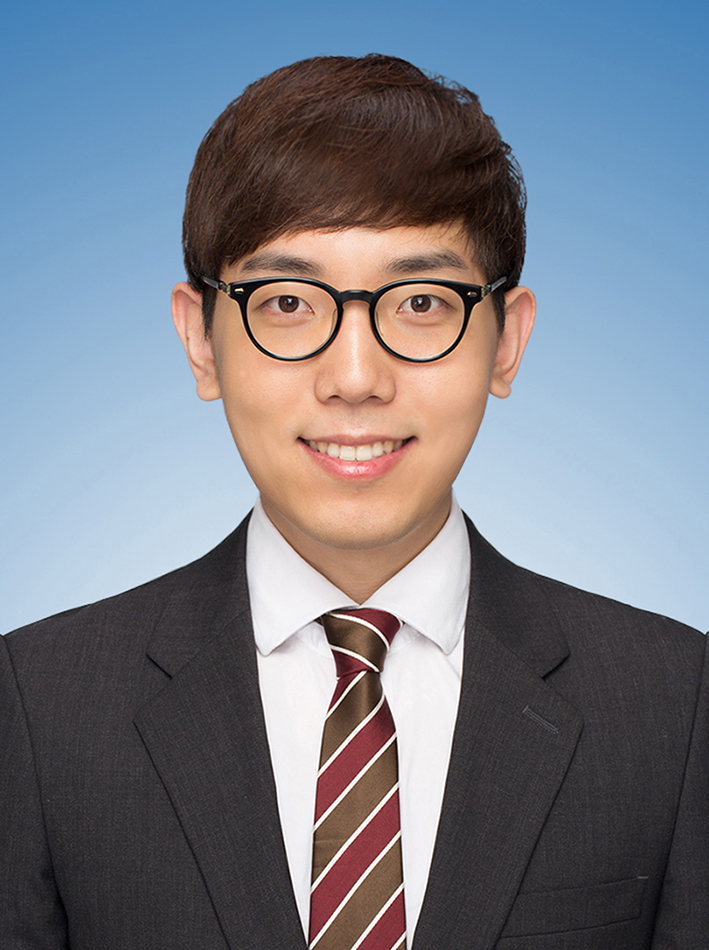 13:15~13:30
Jeong-Kee Yoon (Chung-Ang University, Korea, Republic of)
Integrating Engineering Principles into Biotechnology Education Through Biomaterials and Biomedical Engineering
13:15~13:30
Jeong-Kee Yoon (Chung-Ang University, Korea, Republic of)
Integrating Engineering Principles into Biotechnology Education Through Biomaterials and Biomedical Engineering
Jeong-Kee Yoon
(Chung-Ang University, Korea, Republic of) Dr. Jeong-Kee Yoon is an associate professor in the Department of Systems Biotechnology at Chung-Ang University, Republic of Korea. He received his Ph.D. degree from Seoul National University, Republic of Korea in 2017, and worked as a postdoctoral researcher at Georgia Institute of Technology until 2021. His research interests are at the interface of regenerative medicine and biomedical engineering, primarily focused on vascular engineering using stem cells, engineered exosomes, and 3D cell culture methods for tissue regeneration and disease modeling. He has published 51 peer-reviewed articles, and is a co-inventor on two registered patents. In terms of education, he teaches Organic Chemistry, Biomaterials, and Biomedical Engineering to undergraduates of non-engineering majors, and Tissue Engineering and Regenerative Medicine to graduate students. He has been selected twice (in 2022 and 2023) as a Teacher of Excellence at Chung-Ang University based on surveys completed by 70-80 students per class.
Dr. Jeong-Kee Yoon is an associate professor in the Department of Systems Biotechnology at Chung-Ang University, Republic of Korea. He received his Ph.D. degree from Seoul National University, Republic of Korea in 2017, and worked as a postdoctoral researcher at Georgia Institute of Technology until 2021. His research interests are at the interface of regenerative medicine and biomedical engineering, primarily focused on vascular engineering using stem cells, engineered exosomes, and 3D cell culture methods for tissue regeneration and disease modeling. He has published 51 peer-reviewed articles, and is a co-inventor on two registered patents. In terms of education, he teaches Organic Chemistry, Biomaterials, and Biomedical Engineering to undergraduates of non-engineering majors, and Tissue Engineering and Regenerative Medicine to graduate students. He has been selected twice (in 2022 and 2023) as a Teacher of Excellence at Chung-Ang University based on surveys completed by 70-80 students per class.
Clinical translations of biomaterial research
- Session TrackBiomaterials for pre-clinical and clinical translation
- Session TitleTranslation of bioactive ceramics from bench to bedside and emerging technologies for patient specific approaches
- Session CodeSP-T08-0259
- Date & Time / RoomMay 29 (Wed) 13:40~15:10 / Room 320-A
Translation of bioactive ceramics from bench to bedside and emerging technologies for patient specific approaches
Translation of bioactive ceramics from bench to bedside and emerging technologies for patient specific approaches
Session Scope: Over the last three decades, considerable progress has been made with regards to exploring the fundamental molecular and cellular events at the bone bioactive ceramic interface, which underlie the stimulatory effect of these materials on cell function and bone tissue formation, and with utilizing the knowledge gained to take bioactive ceramic bone grafting materials to the clinical arena in an evidence-based fashion. This has resulted in considerable contributions to improving patient care. It furthermore has prompted emerging patient-specific tissue engineering strategies, soft tissue augmentation approaches, concepts for continuous drug release, enhancement of angiogenesis etc. and has led to an array of approved products. Moreover, due to the inherent bioactive properties of these biomaterials achieving regulatory approval is less demanding than with biomaterials/devices which contain biologics such as growth factors, peptides and others.
The objective of this interdisciplinary symposium is to highlight how the fundamental research that helped to decipher the molecular events that underlie the stimulatory effect of bioactive ceramics on bone tissue formation and how recent advanced in additive manufacturing technologies and drug release concepts led to translation of these materials to the clinic and contributed to the design of patient specific therapeutic concepts.
The program will highlight the evidence-based translation of different bioactive ceramics for various clinical applications. The intended audience will be material scientists, bioengineers, orthopedic surgeons and oral and maxillofacial surgeons.
The expected outcome is to heighten the awareness regarding the impact of this important class of biomaterials on health care in a globally ageing population and to foster interdisciplinary research worldwide.
- Organizer
-
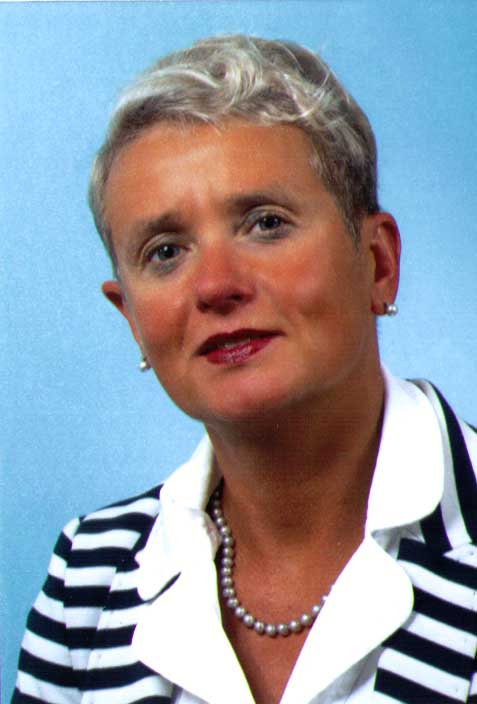 Christine Knabe (Philipps University Marburg, Germany)
Christine Knabe (Philipps University Marburg, Germany)
- Chair
-
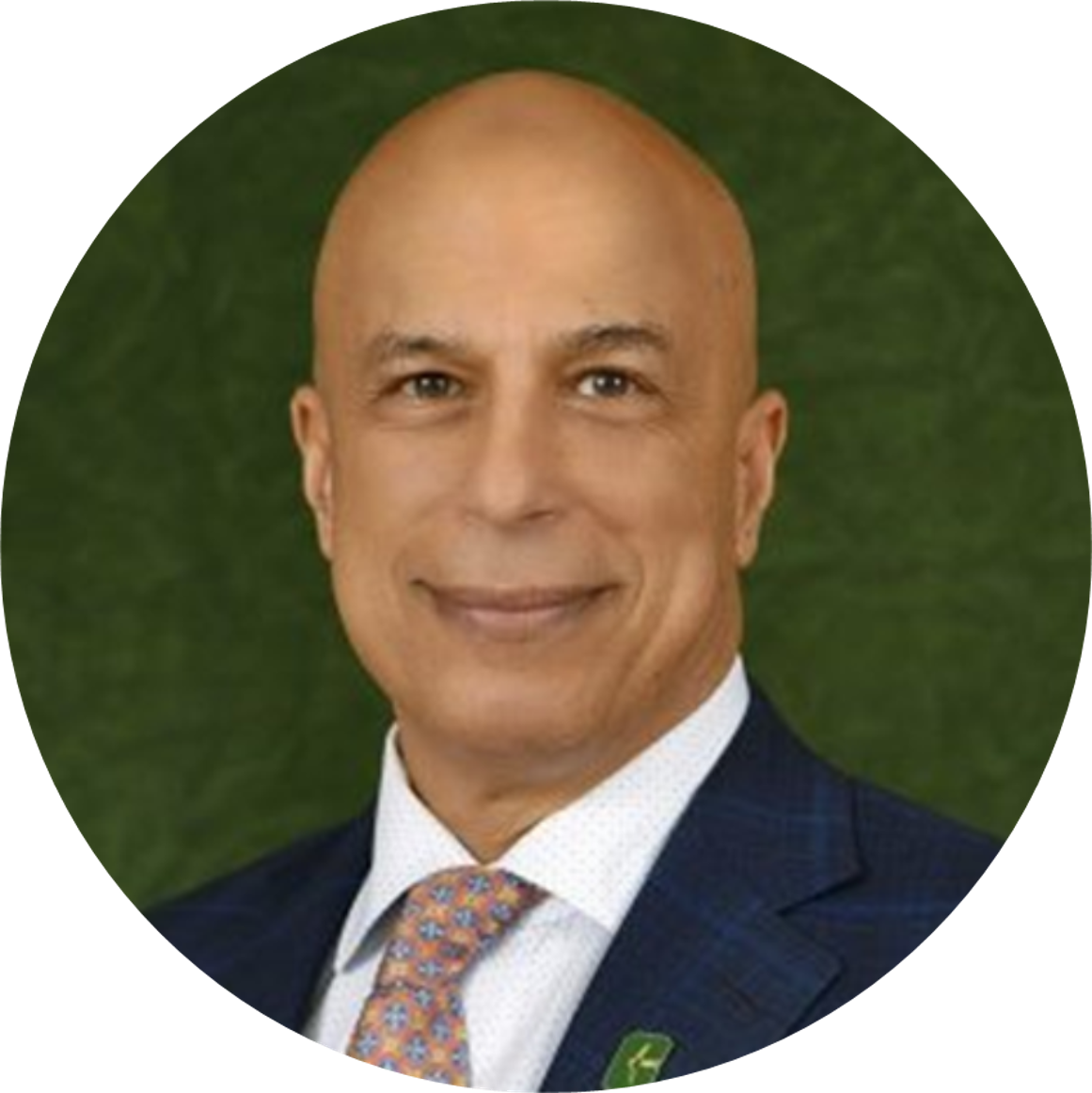 Ahmed El-Ghannam (University of North Carolina at Charlotte, USA)
Ahmed El-Ghannam (University of North Carolina at Charlotte, USA)
 Min Wang (Department of Mechanical Engineering, The University of Hong Kong, Hong Kong SAR, China)
Min Wang (Department of Mechanical Engineering, The University of Hong Kong, Hong Kong SAR, China)
- Keynote Speaker
-
 13:40~14:05
Christine Knabe (Philipps University Marburg, Germany)
Bioactive calcium alkali phosphate bone grafts enhance osteogenesis and facilitate bone repair in vivo – Translational research in oral implantology
13:40~14:05
Christine Knabe (Philipps University Marburg, Germany)
Bioactive calcium alkali phosphate bone grafts enhance osteogenesis and facilitate bone repair in vivo – Translational research in oral implantology
Christine Knabe
(Philipps University Marburg, Germany) Professor Christine Knabe is Professor of Experimental Orofacial Medicine at the dental school of the Philipps University Marburg, Germany. The focus of her work is on translational research from bench to bedside in the context of clinically relevant subjects in regenerative medicine and biomaterials research. Her research deals with various aspects of regenerative medicine, bone regeneration and bone tissue engineering utilizing bioactive resorbable bone grafting materials and 3D printed bioactive ceramic scaffolds in combination with 3D perfusion stem cell culture and microvascular techniques for segmental defect repair mainly in the context of implant dentistry and orthopaedics. From 1999 on, Professor Knabe built her own independent research program, specifically focusing on cellular reaction pathways triggered by the presence of bioactive implant materials and on translational research, which takes new biomaterials and therapeutic concepts for bone and tissue regeneration from basic research via preclinical studies involving large animal models and clinical trials to the clinical arena. These studies led to the FDA approval and clinical use of a novel bioactive silica containing calcium orthophosphate bone grafting material. Professor Knabe’s work furthermore deals with the effect of host factors on craniofacial bone regeneration with bioactive calcium phosphate bone grafts. This is in addition to collaborating with colleagues at University of Pennsylvania in the pursuit of much better treatments of resistant infections and with colleagues of the UNC at Charlotte on novel bioceramic urethral bulking agents.
Professor Christine Knabe is Professor of Experimental Orofacial Medicine at the dental school of the Philipps University Marburg, Germany. The focus of her work is on translational research from bench to bedside in the context of clinically relevant subjects in regenerative medicine and biomaterials research. Her research deals with various aspects of regenerative medicine, bone regeneration and bone tissue engineering utilizing bioactive resorbable bone grafting materials and 3D printed bioactive ceramic scaffolds in combination with 3D perfusion stem cell culture and microvascular techniques for segmental defect repair mainly in the context of implant dentistry and orthopaedics. From 1999 on, Professor Knabe built her own independent research program, specifically focusing on cellular reaction pathways triggered by the presence of bioactive implant materials and on translational research, which takes new biomaterials and therapeutic concepts for bone and tissue regeneration from basic research via preclinical studies involving large animal models and clinical trials to the clinical arena. These studies led to the FDA approval and clinical use of a novel bioactive silica containing calcium orthophosphate bone grafting material. Professor Knabe’s work furthermore deals with the effect of host factors on craniofacial bone regeneration with bioactive calcium phosphate bone grafts. This is in addition to collaborating with colleagues at University of Pennsylvania in the pursuit of much better treatments of resistant infections and with colleagues of the UNC at Charlotte on novel bioceramic urethral bulking agents.
Prof. Knabe obtained her DDS at the University of Göttingen, Germany, in 1988, and her PhD with Professor U. Gross in Berlin, Germany. After training in Oral Surgery and Periodontology at the University of Tübingen, she joined the Department of Prostodontics at the Free Universität Berlin in 1992. She complemented her training by various study periods abroad. In 1993, with Professor J. E. Davies at the University of Toronto, Canada; and in 1994. with Professor U. Belser at the University of Geneva, Switzerland, in clinical implant dentistry. From 1992-2010, she held various positions with increasing responsibilities in the departments of Prosthodontics (1992-1996), Periodontology (1996-1997), and was director of the division of Biomaterials and Dental Materials of the Dept. of Experimental Dentistry (1997-2010) at the Charité University Medical Center. 1999-2000 she spent a sabbatical with Prof. Rolfe Howlett at the Bone Biomaterial Unit of the University of New South Wales in Sydney, Australia to study molecular biological issues regarding implant-tissue interactions. Since 2007 she also has been visiting associate professor at the Division of Orthopaedic Surgery of the Thomas Jefferson University in Philadelphia (Director Prof. I. Shapiro). In January 2011, she joined the Philipps University Marburg, where she chairs the department of Experimental Orofacial Medicine. A very recent honor received by Professor Knabe from the Charité Foundation is the appointment as BIH (Berlin Institute of Health) visiting professor. In this context, Prof. Knabe closely collaborates with colleagues at the Charité University Medical Center and the Federal Institute for Materials Research in the pursuit of tissue engineered approaches for reconstruction of large segmental mandibular discontinuity defects resulting from tumor ablation.
- Oral Presenter
-
 14:05~14:15
Ahmed El-Ghannam (University of North Carolina at Charlotte, USA)
Long term stability and functionality of regenerated bone induced by SCPC resorbable bioactive graft
14:05~14:15
Ahmed El-Ghannam (University of North Carolina at Charlotte, USA)
Long term stability and functionality of regenerated bone induced by SCPC resorbable bioactive graft
Ahmed El-Ghannam
(University of North Carolina at Charlotte, USA) Dr. El-Ghannam is a highly creative biomaterials engineer with several US patents on the design of novel bioactive resorbable ceramics, coating bioceramics on Titanium and cobalt-chromium alloy and additive manufacturing of SiC and SCPC for space, military, and medical applications. The laboratory of Dr. EL-Ghannam got funds from DePuy J&J company, North Carolina Biotechnology center, DoD, NASA and others. Dr. El-Ghannam has successfully taken a novel resorbable bioactive ceramic (Shefabone SCPC) from the laboratory bench to the surgery room through FDA approval. He has many collaborators from universities, industry and medical institutes in US and worldwide. Dr. El-Ghannam has been a keynote speaker and a chair in national and international biomaterials conferences and has served as the associate editor of the JBMR-A for the last 16 years. He authored and co-authored biomaterials books and book chapters and have many publications in biomedical materials, engineering, dental and orthopedic journals. He was recognized recently by Stanford University in the list of the top 2% most widely cited scientists in Bioengineering.
Dr. El-Ghannam is a highly creative biomaterials engineer with several US patents on the design of novel bioactive resorbable ceramics, coating bioceramics on Titanium and cobalt-chromium alloy and additive manufacturing of SiC and SCPC for space, military, and medical applications. The laboratory of Dr. EL-Ghannam got funds from DePuy J&J company, North Carolina Biotechnology center, DoD, NASA and others. Dr. El-Ghannam has successfully taken a novel resorbable bioactive ceramic (Shefabone SCPC) from the laboratory bench to the surgery room through FDA approval. He has many collaborators from universities, industry and medical institutes in US and worldwide. Dr. El-Ghannam has been a keynote speaker and a chair in national and international biomaterials conferences and has served as the associate editor of the JBMR-A for the last 16 years. He authored and co-authored biomaterials books and book chapters and have many publications in biomedical materials, engineering, dental and orthopedic journals. He was recognized recently by Stanford University in the list of the top 2% most widely cited scientists in Bioengineering.
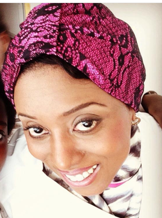 14:15~14:25
RANDA ALFOTAWI (King Saud University, Saudi Arabia)
In vivo analysis of Porous Bioactive Silicon Carbide Scaffold for Craniofacial Bone Augmentation
14:15~14:25
RANDA ALFOTAWI (King Saud University, Saudi Arabia)
In vivo analysis of Porous Bioactive Silicon Carbide Scaffold for Craniofacial Bone Augmentation
RANDA ALFOTAWI
(King Saud University, Saudi Arabia) Randa Alfotawi is an Associate Professor & Clinical Consultant in Oral and Maxillofacial surgery. She received a Ph.D. in Bone and tissue engineering for a novel flap model for reconstructive surgery from the University of Glasgow, UK and MS. from the University of Glasgow, FDS RCS from Royal College of Surgeon Edinburgh. Her research specialty and interests include Regenerative Medicine/ Bone bioengineering using stem cells/ Bio-materials research, looking for innovative autogenous bone scaffolding. Her related publications include: Two book `s chapters”. Biomaterials for Oral and Craniomaxillofacial Applica Deb S(ed). Vol.17 Frontiers of Oral Biology (London, Karger publisher, 2015)”& Flap Techniques in Dentoalveolar Surgery Sridharan G(ed). Oral Disease.(Intechopen, 2020). Moreover, twenty-six other manuscript journal publications include which were published in high-rank scientific journals including Biomedical. Materials, Journal of Materials Science: Materials in Medicine, Materials, PLoS One, Journal of Tissue Engineering, Oral &Maxillofacial Surgery
Randa Alfotawi is an Associate Professor & Clinical Consultant in Oral and Maxillofacial surgery. She received a Ph.D. in Bone and tissue engineering for a novel flap model for reconstructive surgery from the University of Glasgow, UK and MS. from the University of Glasgow, FDS RCS from Royal College of Surgeon Edinburgh. Her research specialty and interests include Regenerative Medicine/ Bone bioengineering using stem cells/ Bio-materials research, looking for innovative autogenous bone scaffolding. Her related publications include: Two book `s chapters”. Biomaterials for Oral and Craniomaxillofacial Applica Deb S(ed). Vol.17 Frontiers of Oral Biology (London, Karger publisher, 2015)”& Flap Techniques in Dentoalveolar Surgery Sridharan G(ed). Oral Disease.(Intechopen, 2020). Moreover, twenty-six other manuscript journal publications include which were published in high-rank scientific journals including Biomedical. Materials, Journal of Materials Science: Materials in Medicine, Materials, PLoS One, Journal of Tissue Engineering, Oral &Maxillofacial Surgery
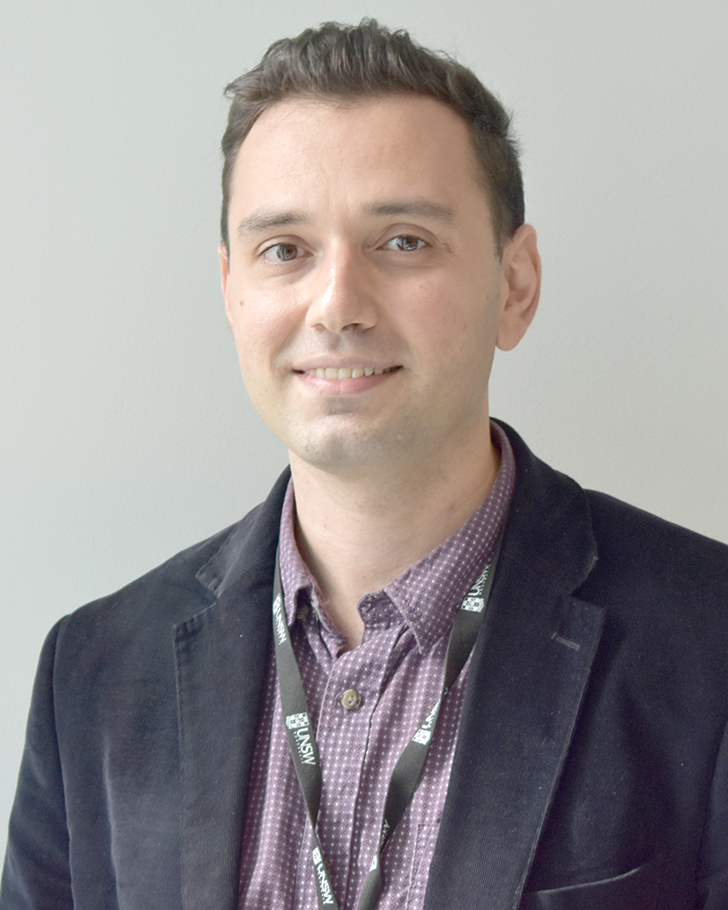 14:25~14:35
Iman Roohani (University of Sydney, Australia)
Nanoscale 3D Printing of Bioceramics
14:25~14:35
Iman Roohani (University of Sydney, Australia)
Nanoscale 3D Printing of Bioceramics
 14:35~14:45
Huasi Zhou (Uppsala University, Sweden)
Effect of interfacial energy on the mechanical properties of ZrO2-SiO2 glass-ceramics
14:35~14:45
Huasi Zhou (Uppsala University, Sweden)
Effect of interfacial energy on the mechanical properties of ZrO2-SiO2 glass-ceramics
- Session TrackBiomaterials for pre-clinical and clinical translation
- Session TitleClinical application of biomaterials in Orthopaedic field
- Session CodeSP-T08-0198
- Date & Time / RoomMay 29 (Wed) 9:30~11:00 / Room 320-A
Clinical application of biomaterials in Orthopaedic field
In this symposium, we will discuss about 'clinical application of biomaterials in Orthopaedic field' as follows.
1) The core of orthopaedic research lies at the intersection of fundamental biomedical science and clinical applications. In terms of theranostic target delivery, we focus on optimizing target nanosome systems using animal imaging techniques and developing animal models for posttraumatic osteoarthritis. Through collaboration with fellow researchers, I aim to apply my findings in the field of targeted drug therapy, fluorescent diagnostic methods, and stem cell-based implantation techniques. The re-discovery of theranostic nano-techniques for cartilage repair will open new avenues for improving existing tissue engineering technology and will create new strategies for developing treatment options in the field of orthopaedic research.
2) Three-dimentional tendon constructs are engineered tissue structures that mimic the structure and function of natural tendons. In our lab, we developed a scaffold-free, three-dimensional (3D) tendon culture system using mouse tendon cells and a differentially adherent growth channel. Our 3D tendon culture system is a reliable in vitro system to study underlying mechanisms that regulate cellular and matrix maturation in tendon. The application of this construct in clinical treatment will be the future direction of this study.
3) Polydeoxyribonucleotide (PDRN) is a tissue regeneration activator that is composed of a mixture of nucleotides and activates adenosine A2A receptors, stimulating vascular endothelial growth factor (VEGF) expression and the activity of fibroblast. We had performed two clinical trials to verify of the effect of PDRN on tendon healing of rotator cuff tear and lateral epicondylitis. The results suggest that PDRN might improve tendon healing and fatty degeneration in arthroscopic rotator cuff repair, and exercise with counter force brace (EX) combined with PDRN might exhibit a greater improvement than EX only or EX combined with extracorporeal shockwave therapy for lateral epicondylitis.
- Organizer
-
 Ji-Hoon Bae (Department of Orthopaedic Surgery, Korea University Guro Hospital, Korea, Republic of)
Ji-Hoon Bae (Department of Orthopaedic Surgery, Korea University Guro Hospital, Korea, Republic of)
- Chair
-
 Hyung Bin Park (Gyeongsang National University, Korea, Republic of)
Hyung Bin Park (Gyeongsang National University, Korea, Republic of)
 Hongsik Cho (1) Dept. of Orthopaedic Surgery, UTHSC-Campbell Clinic 2) VA Medical Center, USA)
Hongsik Cho (1) Dept. of Orthopaedic Surgery, UTHSC-Campbell Clinic 2) VA Medical Center, USA)
- Keynote Speaker
-
 9:30~9:55
Hongsik Cho (1) Dept. of Orthopaedic Surgery, UTHSC-Campbell Clinic 2) VA Medical Center, USA)
9:30~9:55
Hongsik Cho (1) Dept. of Orthopaedic Surgery, UTHSC-Campbell Clinic 2) VA Medical Center, USA)
- Invited Speaker
-
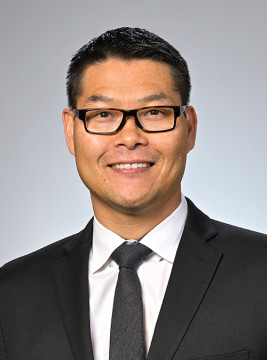 9:55~10:10
Kyu Sang Joeng (McKay Orthopaedic Research Laboratory, Department of Orthopaedic Surgery, Perelman School of Medicine, University of Pennsylvania, USA)
Development of Scaffold-free Three-dimensional Tendon Construct Using Mouse Tendon Cells
9:55~10:10
Kyu Sang Joeng (McKay Orthopaedic Research Laboratory, Department of Orthopaedic Surgery, Perelman School of Medicine, University of Pennsylvania, USA)
Development of Scaffold-free Three-dimensional Tendon Construct Using Mouse Tendon Cells
Kyu Sang Joeng
(McKay Orthopaedic Research Laboratory, Department of Orthopaedic Surgery, Perelman School of Medicine, University of Pennsylvania, USA) Dr. Joeng has been an assistant professor in the Department of Orthopaedic Surgery at the University of Pennsylvania since 2018. Before Penn, he received his bachelor's in Biology from Yonsei University in 2000 and worked two more years at Yonsei University for a Master's Degree. He worked with Dr. Fanxin Long for his Ph.D. at Washington University in Saint Louis and joined Dr. Brendan Lee's lab for his postdoctoral training. The overall goal of his research program is to understand the pathophysiological mechanisms of musculoskeletal disorders, particularly related to the joint, such as osteoarthritis and tendon/ligament disorders.
Dr. Joeng has been an assistant professor in the Department of Orthopaedic Surgery at the University of Pennsylvania since 2018. Before Penn, he received his bachelor's in Biology from Yonsei University in 2000 and worked two more years at Yonsei University for a Master's Degree. He worked with Dr. Fanxin Long for his Ph.D. at Washington University in Saint Louis and joined Dr. Brendan Lee's lab for his postdoctoral training. The overall goal of his research program is to understand the pathophysiological mechanisms of musculoskeletal disorders, particularly related to the joint, such as osteoarthritis and tendon/ligament disorders.
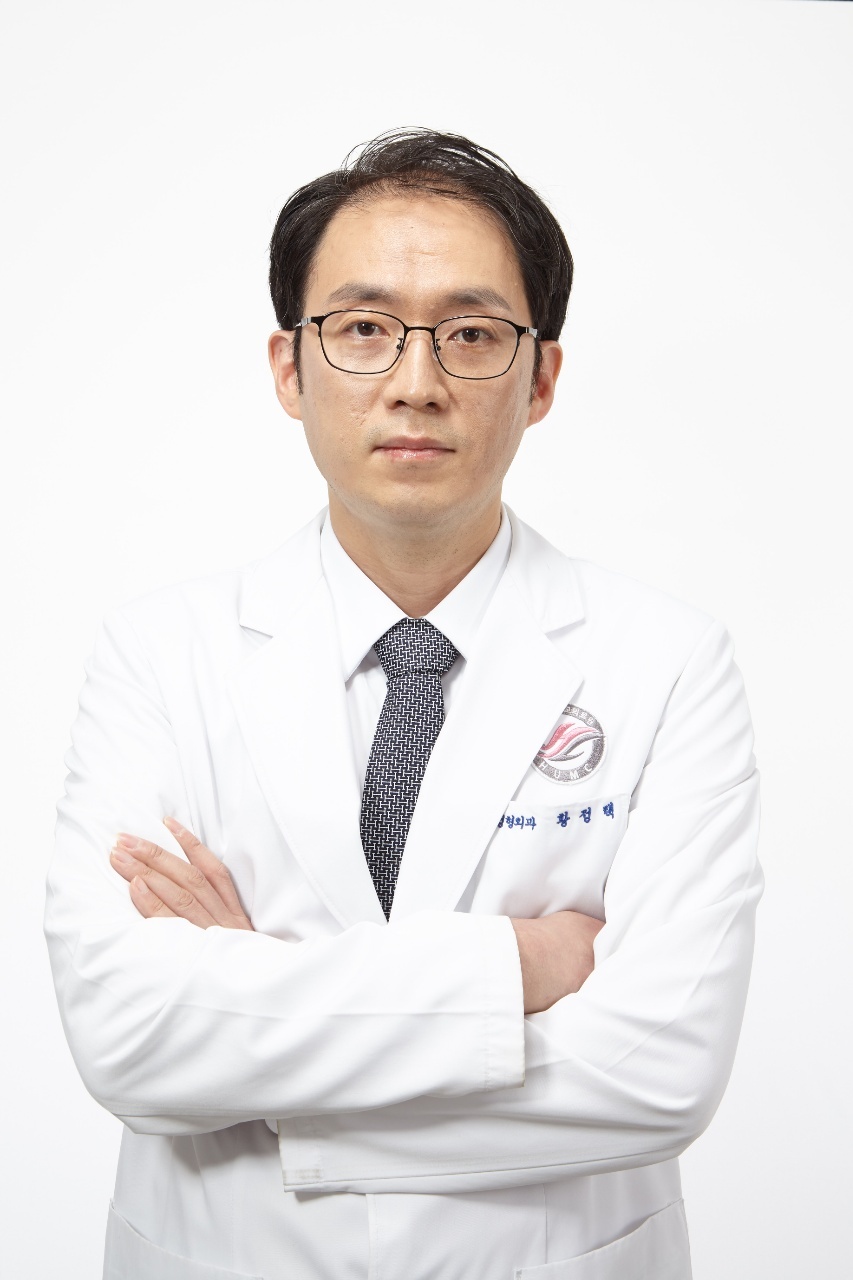 10:10~10:25
Jung-Taek Hwang (Department of Orthopedic Surgery, Cuncheon Sacred Heart Hospital, Hallym University Medical College, Korea, Republic of)
Clinical Application of Polydeoxyribonucleotide for Shoulder and Elbow Diseases
10:10~10:25
Jung-Taek Hwang (Department of Orthopedic Surgery, Cuncheon Sacred Heart Hospital, Hallym University Medical College, Korea, Republic of)
Clinical Application of Polydeoxyribonucleotide for Shoulder and Elbow Diseases
Jung-Taek Hwang
(Department of Orthopedic Surgery, Cuncheon Sacred Heart Hospital, Hallym University Medical College, Korea, Republic of) I am a specialist in shoulder and elbow Surgery, sports medicine, and arthroscopy. And I am interested in musculoskeletal biomechanics, regenerative medicine, and postoperatiove pain control.
I am a specialist in shoulder and elbow Surgery, sports medicine, and arthroscopy. And I am interested in musculoskeletal biomechanics, regenerative medicine, and postoperatiove pain control.
- Oral Presenter
-
 10:25~10:35
Jiaxiang Wang (Qingdao University of Technology, China)
Mechanical properties and bone regeneration ability of additively manufactured trabecular porous tantalum scaffolds
10:25~10:35
Jiaxiang Wang (Qingdao University of Technology, China)
Mechanical properties and bone regeneration ability of additively manufactured trabecular porous tantalum scaffolds
 10:35~10:45
Xinyu Li (Imperial College London, United Kingdom)
In vivo studies of an innovative 3D printed device for articular cartilage regeneration
10:35~10:45
Xinyu Li (Imperial College London, United Kingdom)
In vivo studies of an innovative 3D printed device for articular cartilage regeneration
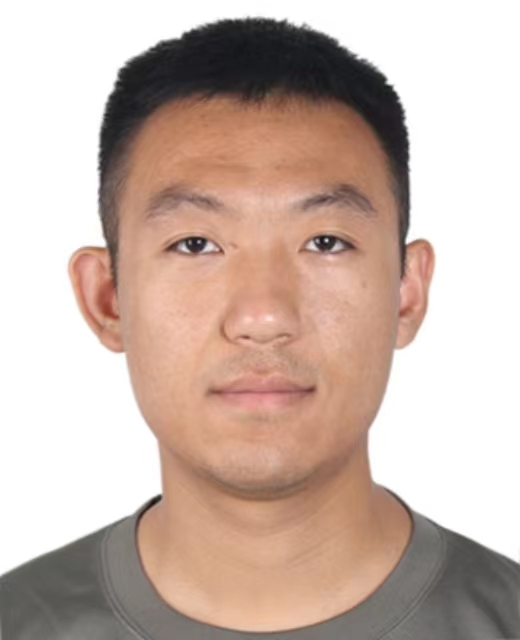 10:45~10:55
tianwei Zhang (Dalian university,China, China)
Internal fixation with biodegradable high purity magnesium screw in the treatment of ankle fracture
10:45~10:55
tianwei Zhang (Dalian university,China, China)
Internal fixation with biodegradable high purity magnesium screw in the treatment of ankle fracture
- Session TrackBiomaterials for pre-clinical and clinical translation
- Session TitleClinical and Pre-clinical Application of Biomaterials toward Next-Generation Medicine
- Session CodeSP-T08-0053
- Date & Time / RoomMay 31 (Fri) 9:30~11:00 / Room 315
Clinical and Pre-clinical Application of Biomaterials toward Next-Generation Medicine
In this session, we will focus on pre-clinical and clinical research mainly and invite worldwide top-level clinical surgeons and basic scientists to discuss the requirements and possibilities of biomaterials for next-generation medicine. In accordance with the WBC's symposia policy, we have invited Prof. Bo Nilsson from Uppsala University, Sweden as a keynote lecturer, Prof. Sarah Heilshorn, from Stanford University, USA, and Prof. Naoki Morimoto, from Kyoto University, Japan as an invited speaker for our symposium proposal who are extremely diverse in terms of gender, geographic location, and clinical and research expertise. This session will be very attractive to all audiences not only academic researchers but also students and industrial and clinical researchers.
[Detail description] Although clinical transplantation of cells, organs, and decellularized tissues has been successful, the availability is still quite limited due to the poor biocompatibility with the host’s immune systems. Therefore, we have worked on the improvement of graft survival with help of biomaterials. To address this issue, we have developed various microencapsulation techniques using biomaterials, and some of them made it possible to improve graft survival. This approach is in the middle of clinical trials, but there are promising clinical outcomes. In addition, biomaterials have been used for the transplantation of organs and decellularized tissues, and some of them are studied in preclinical and clinical trials. By the use of biomaterials, the blood compatibility and vascularization of the graft have been improved. This innovation also opened-up the use of xenograft for human recipients. We would like to invite world-leading researchers working on these issues to discuss the current situation and new prospects for next-generation medicine.
- Organizer
-
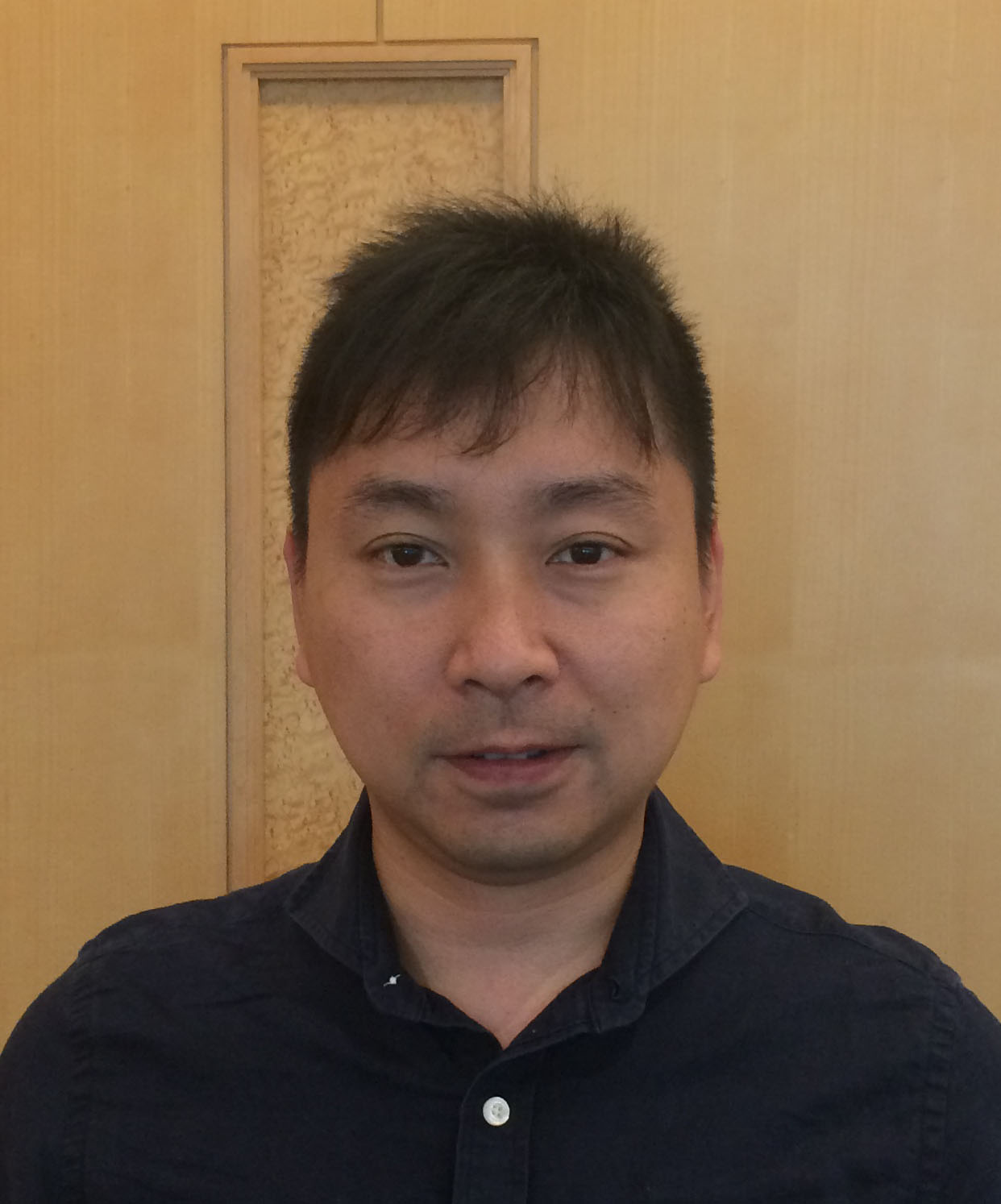 Atsushi Mahara (Department of Biomedical Engineering, National Cerebral and Cardiovascular Center Research Institute, Japan)
Atsushi Mahara (Department of Biomedical Engineering, National Cerebral and Cardiovascular Center Research Institute, Japan)
- Chair
-
 Atsushi Mahara (Department of Biomedical Engineering, National Cerebral and Cardiovascular Center Research Institute, Japan)
Atsushi Mahara (Department of Biomedical Engineering, National Cerebral and Cardiovascular Center Research Institute, Japan)
 Yuji Teramura (Cellular and Molecular Biotechnology Research Institute (CMB), National Institute of Advanced Industrial Science and Technology, Japan)
Yuji Teramura (Cellular and Molecular Biotechnology Research Institute (CMB), National Institute of Advanced Industrial Science and Technology, Japan)
- Keynote Speaker
-
 9:30~9:55
Alireza Biglarnia (Lund University, Sweden)
Enhancing kidney transplantation: Addressing ischemia-reperfusion injury through ex vivo cell surface engineering with a novel amphiphilic polymer
9:30~9:55
Alireza Biglarnia (Lund University, Sweden)
Enhancing kidney transplantation: Addressing ischemia-reperfusion injury through ex vivo cell surface engineering with a novel amphiphilic polymer
Alireza Biglarnia
(Lund University, Sweden) Dr. Biglarnia is an adjunct lecturer at Lund University and the medical director at the Department of Transplantation at Skåne University Hospital in Malmö, Sweden. His pre-clinical and clinical research is currently focused on the role of innate immunity in the mediation of graft injury in solid organ transplantation. Beyond academia, Dr. Biglarnia is also a co-founder of a pharmaceutical company developing novel therapeutics by combining engineering techniques to address injurious innate immune responses across a variety of medical conditions.
Dr. Biglarnia is an adjunct lecturer at Lund University and the medical director at the Department of Transplantation at Skåne University Hospital in Malmö, Sweden. His pre-clinical and clinical research is currently focused on the role of innate immunity in the mediation of graft injury in solid organ transplantation. Beyond academia, Dr. Biglarnia is also a co-founder of a pharmaceutical company developing novel therapeutics by combining engineering techniques to address injurious innate immune responses across a variety of medical conditions.
- Invited Speaker
-
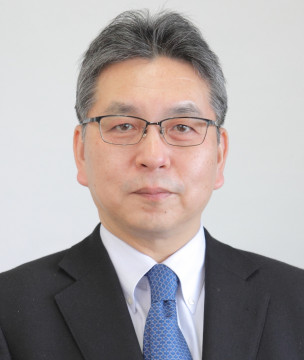 9:55~10:10
Naoki Morimoto (Department of Plastic and Reconstructive Surgery, Graduate School of Medicine and Faculty of Medicine, Kyoto University, Japan)
Development of a high-hydrostatic pressure device for nevus tissue inactivation and dermal regeneration for the treatment of giant melanocytic nevus
9:55~10:10
Naoki Morimoto (Department of Plastic and Reconstructive Surgery, Graduate School of Medicine and Faculty of Medicine, Kyoto University, Japan)
Development of a high-hydrostatic pressure device for nevus tissue inactivation and dermal regeneration for the treatment of giant melanocytic nevus
Naoki Morimoto
(Department of Plastic and Reconstructive Surgery, Graduate School of Medicine and Faculty of Medicine, Kyoto University, Japan) 2019.5-present Professor, Department of Plastic and Reconstructive Surgery, Graduate School of Medicine, Kyoto University
2019.5-present Professor, Department of Plastic and Reconstructive Surgery, Graduate School of Medicine, Kyoto University
2016.12-2019.4 Associate professor, Department of Plastic and Reconstructive Surgery, Kansai Medical University
2011.4-2016.11 Senior Lecturer, Department of Plastic and ReconstructiveSurgery, Kansai Medical University
2005.4 Ph.D. Kyoto University Graduate School of Medicine
2004.4 –2011.3 Assistant professor, Department of Plastic and Reconstructive Surgery, Kyoto University
2003.4-2004.3 Fellow, Department of Plastic and Reconstructive Surgery, Kyoto University
2000.4-2003.3 Regular surgical staff, Kobe Municipal General Hospital
1998.3-2000.3 Fellow, Department of Plastic and Reconstructive Surgery, , Kyoto University
1996.4-1998.2 Regular surgical staff, Shimane Prefectural Central Hospital
1994.12-1996.3 Resident, Department of Plastic and Reconstructive Surgery, Shimane Prefectural Central Hospital
1993.5-1994.12 Resident, Department of Plastic and Reconstructive Surgery, Kobe Municipal General Hospital
1993.3 Graduated from Kyoto University School of Medicine 10:10~10:25
Yuji Teramura (Cellular and Molecular Biotechnology Research Institute (CMB), National Institute of Advanced Industrial Science and Technology, Japan)
Cell surface engineerinf for transplantation therapy
10:10~10:25
Yuji Teramura (Cellular and Molecular Biotechnology Research Institute (CMB), National Institute of Advanced Industrial Science and Technology, Japan)
Cell surface engineerinf for transplantation therapy
- Oral Presenter
-
 10:25~10:35
Vanessa Doulames (Stanford University, USA)
Hydrogel-delivery of stem cell-derived neurons to repair the injured adult cervical spine
10:25~10:35
Vanessa Doulames (Stanford University, USA)
Hydrogel-delivery of stem cell-derived neurons to repair the injured adult cervical spine
 10:35~10:45
Yurena Polo Arroyabe (Polimerbio SL, Spain)
Pre-clinical evaluation of a new class III biodegradable stent for the treatment of urethral stricture
10:35~10:45
Yurena Polo Arroyabe (Polimerbio SL, Spain)
Pre-clinical evaluation of a new class III biodegradable stent for the treatment of urethral stricture
 10:45~10:55
Yafei Feng (Xijing Hospital, China)
Development and clinical application of biodegradable silk protein bone screw
10:45~10:55
Yafei Feng (Xijing Hospital, China)
Development and clinical application of biodegradable silk protein bone screw
Regulatory challenge in biomaterial products
- Session TrackBiomaterials for pre-clinical and clinical translation
- Session TitleRegulatory science for the translation of biomaterials products
- Session CodeSP-T08-0311
- Date & Time / RoomMay 28 (Tue) 16:30~18:00 / Room 320-A
Regulatory science for the translation of biomaterials products
Introductory abstract of a maximum of 300 words that addresses the symposium’s
1) objectives or purposes;
2) Proposed program and intended audience
3) expected outcomes and relevance to the main topic of WBC 2024.
Regulatory science is “the science of developing new tools, standards, and approaches to assess a product’s safety, efficacy, quality, and performance of regulated products”. The process from innovative basic research to successful clinical translation of biomaterials products needs the strong involvement of regulatory science. Innovative biomaterials-based medical products (i.e., “the products”) need to be designated and classified. Whether they are medical devices, combination devices, or drugs need to be appropriately and clearly identified. This classification will determine the future regulatory paths for the products. Preclinical research and evaluations of such products may need to develop new tools, standards and approaches. The design and understanding of the novel tools and methods and the establishment of new standards and guidance documents can strongly impact the regulatory and commercialization processes of the products. Current good manufacturing practice (cGMP) under a robust quality systems regulation (QSR) is required for manufacturing the products. How should the unique characteristics and risk management of the products be regulated under QSR and cGMP? In order to make the clinical translation of the products, clinical evaluations need to be conducted with the appropriate selections of indications, control and primary endpoints. Post-market surveillance along with real-world research of the products would also request strong scientific understanding after successful regulatory approval and market commercialization processes. Presentations with case studies will demonstrate how regulatory science can help the research, development and translation of biomaterials. Special attention should also be paid to the collaboration between regulatory science and biomaterials during the process from their basic research to clinical translation.
- Organizer
-
 Kai Zhang (Sichuan University, China)
Kai Zhang (Sichuan University, China)
- Chair
-
 Kai Zhang (Sichuan University, China)
Kai Zhang (Sichuan University, China)
 Arthur J. Coury (Northeastern University, USA)
Arthur J. Coury (Northeastern University, USA)
- Keynote Speaker
-
 16:30~16:55
TBD (TBD, )
16:30~16:55
TBD (TBD, )
- Invited Speaker
-
 16:55~17:10
Suping Lyu (Medtronic Inc., USA)
Regulatory Science for Medical Devices
16:55~17:10
Suping Lyu (Medtronic Inc., USA)
Regulatory Science for Medical Devices
Suping Lyu
(Medtronic Inc., USA) Scientist at Medtronic PLC since 2020, expertise in polymer materials for medical devices.
Scientist at Medtronic PLC since 2020, expertise in polymer materials for medical devices.
- Oral Presenter
-
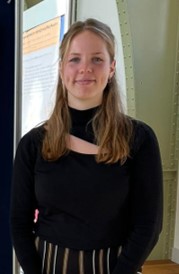 17:10~17:20
Anniek Gielen (National institute of public health, Netherlands)
A safe-by-design approach for medical implants
17:10~17:20
Anniek Gielen (National institute of public health, Netherlands)
A safe-by-design approach for medical implants
 17:20~17:30
Jing Liu (Institute of Biomedical Engineering, Peking Union Medical College, Chinese Academy of Medical Sciences, China)
Immunogenicity assessment for swim bladder-derived biomaterials
17:20~17:30
Jing Liu (Institute of Biomedical Engineering, Peking Union Medical College, Chinese Academy of Medical Sciences, China)
Immunogenicity assessment for swim bladder-derived biomaterials
 17:30~17:40
LI NA (Si chuan university, China)
The research on key technology for evaluation of soft tissue wound repair materials
17:30~17:40
LI NA (Si chuan university, China)
The research on key technology for evaluation of soft tissue wound repair materials
 17:40~17:50
Jonathan Weiss (Stanford University, USA)
A low-cost and open-source bio-multimaterial multinozzle 3D printer (BioMM3D)
17:40~17:50
Jonathan Weiss (Stanford University, USA)
A low-cost and open-source bio-multimaterial multinozzle 3D printer (BioMM3D)
 17:50~18:00
SUN Lingxiao (Shandong Institute of Medical Device and Pharmaceutical Packaging Inspection, China)
Research Status of Nanomaterial Medical Devices and Discussion on Biological Evaluation
17:50~18:00
SUN Lingxiao (Shandong Institute of Medical Device and Pharmaceutical Packaging Inspection, China)
Research Status of Nanomaterial Medical Devices and Discussion on Biological Evaluation
- Session TrackLuncheon Seminar
- Session TitleRegulatory perspectives on biologics composed of cell therapy and biomaterials
- Session CodeSP-T14-0458
- Date & Time / RoomMay 30 (Thu) 12:20~13:30 / Room 324-A
Regulatory perspectives on biologics composed of cell therapy and biomaterials
TBD
- Organizer
-
 Joo Hee (Elise) Kim (Ajou University, Korea, Republic of)
Joo Hee (Elise) Kim (Ajou University, Korea, Republic of)
- Chair
-
 Joo Hee (Elise) Kim (Ajou University, Korea, Republic of)
Joo Hee (Elise) Kim (Ajou University, Korea, Republic of)
 James Moon (University of Michigan, Ann Arbor, USA)
James Moon (University of Michigan, Ann Arbor, USA)
- Invited Speaker
-
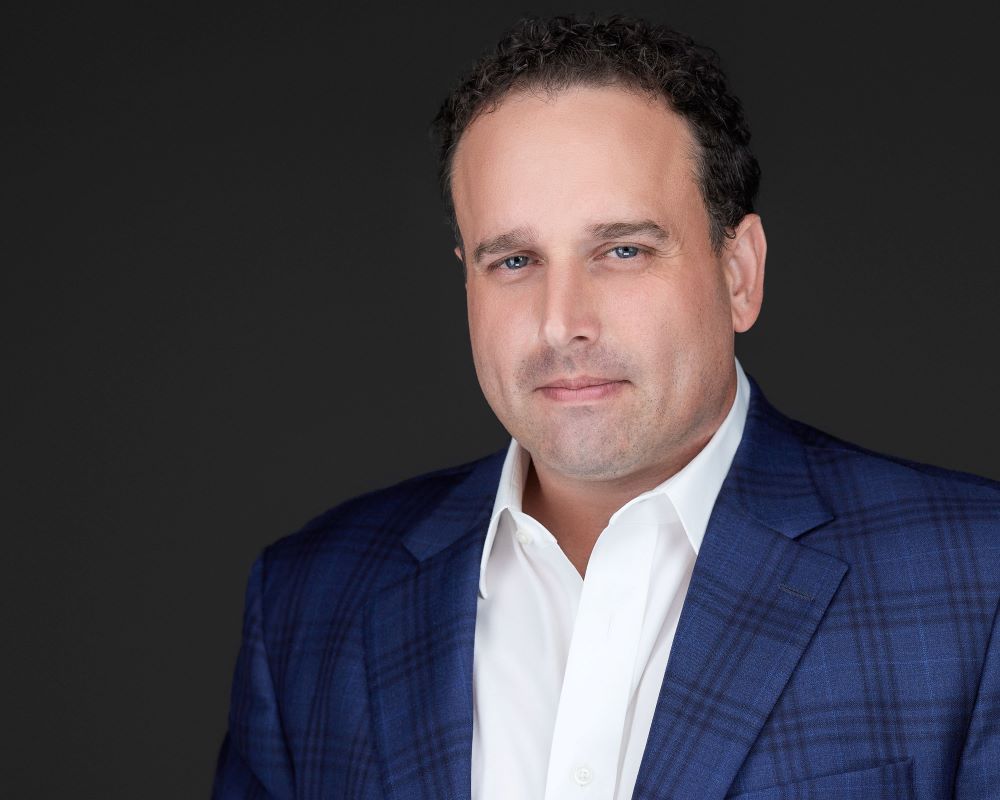 12:20~12:50
James Wabby (Regulatory Affairs (CoE), AbbVie, Inc, USA)
Combination Products: Advanced Drug Delivery Technologies and Cell/Gene Therapies
12:20~12:50
James Wabby (Regulatory Affairs (CoE), AbbVie, Inc, USA)
Combination Products: Advanced Drug Delivery Technologies and Cell/Gene Therapies
James Wabby
(Regulatory Affairs (CoE), AbbVie, Inc, USA) James is responsible for leading global regulatory affairs for AbbVie’s device and medicinal/device delivery portfolio providing the vision for the future of device at AbbVie and in the broader industry.
James is responsible for leading global regulatory affairs for AbbVie’s device and medicinal/device delivery portfolio providing the vision for the future of device at AbbVie and in the broader industry.
James has 22 years of experience in increasing regulatory compliance and regulatory affairs responsibilities within the GxP regulated environment pertaining to Medical Devices, Medicinal Delivery Platforms, Companion Diagnostics, Digital Medicine, and Combination Product areas. He regularly provides AbbVie therapeutic franchise units regulatory counsel and strategy to all aspects within the quality management system and regulatory affairs.
James is an internationally recognized leader as he is a member of various regulatory/quality work groups and is a speaker and keynote at various regulatory symposia. In addition, he is the Chair of the DIA Combination Products Committee, Chair of the ISPE Combination Products (CoP), and a moderator for various global regulatory panel discussions.
James holds a BSc. in Biology from Duquesne University, MHMS in Health Law and Policy from Duquesne University, Certificate in Health Law and Life Science Regulatory Compliance from Seton Hall University Law School - Center for Health & Pharmaceutical Law, and Certificate, RAPS Executive Development Program from Northwestern University - Kellogg School of Management. 12:50~13:20
Takahiro Ochiya (Tokyo Medical University, Japan)
12:50~13:20
Takahiro Ochiya (Tokyo Medical University, Japan)
From bench to commercialization
- Session TrackBiomaterials for industrial applications
- Session TitleEmerging biomaterials: From bench to startup
- Session CodeSP-T09-0366
- Date & Time / RoomMay 27 (Mon) 14:40~16:10 / Room 320-B
Emerging biomaterials: From bench to startup
1) Objectives or purposes: The aim of this symposium is to showcase the next generation of functional and emerging nanomaterials towards biomedical applications.
2) Proposed program and intended audience: This session will target researchers working in material science and/or bioengineering fields interested in learning about opportunities to expand the reach and capabilities of their work. Topics of interest include bioelectronics, programmed biosynthesis of materials, artificial cells and organelles, biosensing and therapeutic materials, as well as tool development to produce and/or characterize biologically engineered materials.
3) Expected outcomes and relevance to the main topic of WBC 2024: This symposium will span from strategies for biomaterials for clinical translation, which wil also focus on tecnological transfer related with startup company. The symposium will also cover parametric and fundamental studies which showcase key biological, chemical, and physical phenomena observed during biomaterials and medical translation.
- Organizer
-
 Jinmyoung Joo (Ulsan National Institute of Science and Technology, Korea, Republic of)
Jinmyoung Joo (Ulsan National Institute of Science and Technology, Korea, Republic of)
- Chair
-
 Jinmyoung Joo (Ulsan National Institute of Science and Technology, Korea, Republic of)
Jinmyoung Joo (Ulsan National Institute of Science and Technology, Korea, Republic of)
- Keynote Speaker
-
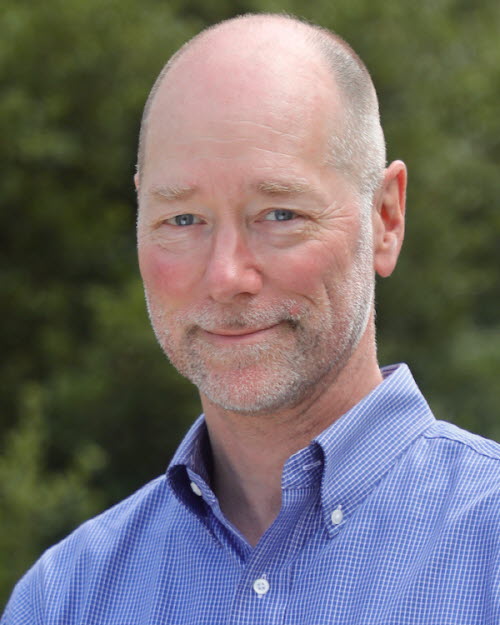 14:40~15:05
Michael J. Sailor (University of California San Diego, USA)
14:40~15:05
Michael J. Sailor (University of California San Diego, USA)
Michael J. Sailor
(University of California San Diego, USA) Michael J. Sailor is Distinguished Professor at the University of California, San Diego, Director of the UC San Diego Materials Research Science and Engineering Center (an NSF MRSEC), and Director of the UC San Diego Institute for Materials Discovery & Design. He holds Affiliate Appointments in the UCSD Bioengineering Department, the Nanoengineering Department, and the Materials Science and Engineering program. He was trained at Harvey Mudd College (BS Chemistry), Northwestern University (PhD Chemistry), Stanford (Post-doctoral), and Caltech (Post-doctoral). He has supervised more than 160 undergraduate, graduate, and post-doctoral students, he is the author of more than 260 peer-reviewed research publications, one book, and 39 issued patents. He has an H-Index (Google Scholar) of 100. He has founded or co-founded four companies, including Lisata Therapeutics (NASDAQ: LSTA). He is an elected Fellow of the American Association for the Advancement of Science, the U.S. National Academy of Inventors, and the Royal Society of Chemistry, and he serves as Associate Editor of the journal ACS Sensors.
Michael J. Sailor is Distinguished Professor at the University of California, San Diego, Director of the UC San Diego Materials Research Science and Engineering Center (an NSF MRSEC), and Director of the UC San Diego Institute for Materials Discovery & Design. He holds Affiliate Appointments in the UCSD Bioengineering Department, the Nanoengineering Department, and the Materials Science and Engineering program. He was trained at Harvey Mudd College (BS Chemistry), Northwestern University (PhD Chemistry), Stanford (Post-doctoral), and Caltech (Post-doctoral). He has supervised more than 160 undergraduate, graduate, and post-doctoral students, he is the author of more than 260 peer-reviewed research publications, one book, and 39 issued patents. He has an H-Index (Google Scholar) of 100. He has founded or co-founded four companies, including Lisata Therapeutics (NASDAQ: LSTA). He is an elected Fellow of the American Association for the Advancement of Science, the U.S. National Academy of Inventors, and the Royal Society of Chemistry, and he serves as Associate Editor of the journal ACS Sensors.
- Invited Speaker
-
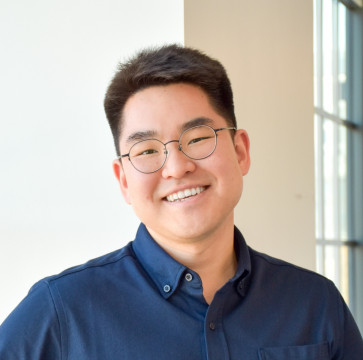 15:05~15:20
Hyunwoo Yuk (SanaHeal, USA)
Soft Materials for Hard Problems in Healthcare: Hydrogels as Novel Medical Device
15:05~15:20
Hyunwoo Yuk (SanaHeal, USA)
Soft Materials for Hard Problems in Healthcare: Hydrogels as Novel Medical Device
Hyunwoo Yuk
(SanaHeal, USA) Dr. Hyunwoo Yuk received a Ph.D. / M.S. in Mechanical Engineering at the Massachusetts Institute of Technology in 2021/2016, and a B.S. from the Korea Advanced Institute of Science and Technology in 2014, both in Mechanical Engineering. Dr. Yuk is currently the CTO of a medtech startup, SanaHeal, Inc., which he founded in 2021. His research focuses on the broad topics of mechanics and materials science and engineering in human–machine interfaces including robust adhesion of soft materials, hydrogel bioelectronics, and 3D printing of advanced soft materials. He is a recipient of various prestigious awards including the Materials Research Society Graduate Student Award, Forbes 30 Under 30, and MIT Technology Reviews Innovators Under 35.
Dr. Hyunwoo Yuk received a Ph.D. / M.S. in Mechanical Engineering at the Massachusetts Institute of Technology in 2021/2016, and a B.S. from the Korea Advanced Institute of Science and Technology in 2014, both in Mechanical Engineering. Dr. Yuk is currently the CTO of a medtech startup, SanaHeal, Inc., which he founded in 2021. His research focuses on the broad topics of mechanics and materials science and engineering in human–machine interfaces including robust adhesion of soft materials, hydrogel bioelectronics, and 3D printing of advanced soft materials. He is a recipient of various prestigious awards including the Materials Research Society Graduate Student Award, Forbes 30 Under 30, and MIT Technology Reviews Innovators Under 35.
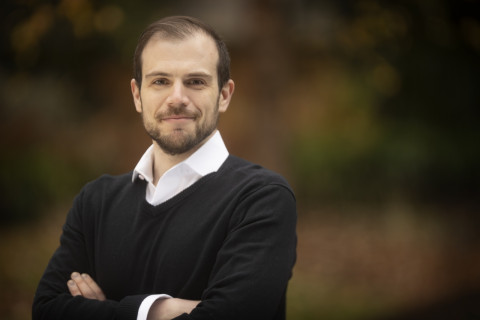 15:20~15:35
Alec Smith (University of Washington, USA)
Sustainable release of retinoic acid by porous silicon microparticles enhances the functional maturation of induced pluripotent stem cell-derived motor neurons
15:20~15:35
Alec Smith (University of Washington, USA)
Sustainable release of retinoic acid by porous silicon microparticles enhances the functional maturation of induced pluripotent stem cell-derived motor neurons
Alec Smith
(University of Washington, USA) Dr. Alec Smith is a Research Assistant Professor in the Department of Physiology and Biophysics at The University of Washington. Dr. Smith earned his Ph.D. in Tissue Engineering from University College, London (UK) in 2012 before moving to the United States to pursue a career in biomedical research. His expertise includes electrophysiology, molecular biology, and tissue engineering, with a particular focus on muscle and neuronal tissues. His work has involved the development of novel 2D and 3D culture systems for assessing nerve and muscle performance, and the analysis of physiological interactions between multiple cell types in vitro. By integrating human tissue engineering and cell culture with advanced methods for assaying electrophysiological and contractile function, he aims to develop novel platforms with which to improve the predictive capacity of current preclinical toxicity screening and disease modeling technologies. To date, Dr. Smith has authored or co-authored more than 50 peer-reviewed journal articles and referenced conference proceedings, as well as 5 book chapters, and his papers have been cited over 2,700 times. In addition, he has filed 3 patents (issued or pending) based on his research. Over the course of his career so far, Dr. Smith has been the recipient of a number of awards, including The UK Medical Research Council Doctoral Training Award (2007), The Jaconette L. Tietze Young Scientist Award (2017), The University of Washington’s Institute for Translational Health Science KL2 Career Development Award (2017), and the Weill Neurohub Investigator Award (2023).
Dr. Alec Smith is a Research Assistant Professor in the Department of Physiology and Biophysics at The University of Washington. Dr. Smith earned his Ph.D. in Tissue Engineering from University College, London (UK) in 2012 before moving to the United States to pursue a career in biomedical research. His expertise includes electrophysiology, molecular biology, and tissue engineering, with a particular focus on muscle and neuronal tissues. His work has involved the development of novel 2D and 3D culture systems for assessing nerve and muscle performance, and the analysis of physiological interactions between multiple cell types in vitro. By integrating human tissue engineering and cell culture with advanced methods for assaying electrophysiological and contractile function, he aims to develop novel platforms with which to improve the predictive capacity of current preclinical toxicity screening and disease modeling technologies. To date, Dr. Smith has authored or co-authored more than 50 peer-reviewed journal articles and referenced conference proceedings, as well as 5 book chapters, and his papers have been cited over 2,700 times. In addition, he has filed 3 patents (issued or pending) based on his research. Over the course of his career so far, Dr. Smith has been the recipient of a number of awards, including The UK Medical Research Council Doctoral Training Award (2007), The Jaconette L. Tietze Young Scientist Award (2017), The University of Washington’s Institute for Translational Health Science KL2 Career Development Award (2017), and the Weill Neurohub Investigator Award (2023).
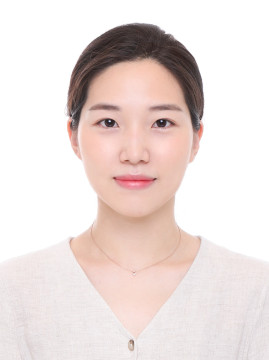 15:35~15:50
Eun Je Jeon (Cellartgen, Korea, Republic of)
Bridging Bench to Startup: Advancements in Emerging Biomaterials for Regenerative Medicine
15:35~15:50
Eun Je Jeon (Cellartgen, Korea, Republic of)
Bridging Bench to Startup: Advancements in Emerging Biomaterials for Regenerative Medicine
Eun Je Jeon
(Cellartgen, Korea, Republic of) Eun Je Jeon currently serves as the team leader in the Advanced Biomaterials Research and Development Department at Cellartgen Inc. in the Republic of Korea. She earned her B.S. degree from the College of Natural Sciences at Seoul Women's University in 2013 and later obtained her Ph.D. in Biotechnology from Yonsei University. In 2022, she joined Cellartgen Inc. as a Senior Researcher and was appointed team leader for Advanced Biomaterials Research and Development in 2023. She has also been selected as a Junior Researcher in the Ministry of SMEs and Startups since May 2023. Her research interests focus on utilizing functional biomaterials for tissue engineering, particularly in the areas of stem cells, reprogrammed cells, and organoids. She has published 19 peer-reviewed papers with over 754 citations and obtained more than 17 filed patents and pending patent applications. Recognized for her outstanding contributions, she received the KSBM-KOFWST Young Scientist Award from the Korean Society for Biomaterials and the WBF-Biosolution Saebyeol Women's Science Award from the Women's Bioscience Forum in 2021.
Eun Je Jeon currently serves as the team leader in the Advanced Biomaterials Research and Development Department at Cellartgen Inc. in the Republic of Korea. She earned her B.S. degree from the College of Natural Sciences at Seoul Women's University in 2013 and later obtained her Ph.D. in Biotechnology from Yonsei University. In 2022, she joined Cellartgen Inc. as a Senior Researcher and was appointed team leader for Advanced Biomaterials Research and Development in 2023. She has also been selected as a Junior Researcher in the Ministry of SMEs and Startups since May 2023. Her research interests focus on utilizing functional biomaterials for tissue engineering, particularly in the areas of stem cells, reprogrammed cells, and organoids. She has published 19 peer-reviewed papers with over 754 citations and obtained more than 17 filed patents and pending patent applications. Recognized for her outstanding contributions, she received the KSBM-KOFWST Young Scientist Award from the Korean Society for Biomaterials and the WBF-Biosolution Saebyeol Women's Science Award from the Women's Bioscience Forum in 2021.
- Oral Presenter
-
 15:50~16:00
Seema Nandi (SelSym Biotech, Inc., USA)
SymClot: synthetic platelets for improved hemorrhage control
15:50~16:00
Seema Nandi (SelSym Biotech, Inc., USA)
SymClot: synthetic platelets for improved hemorrhage control
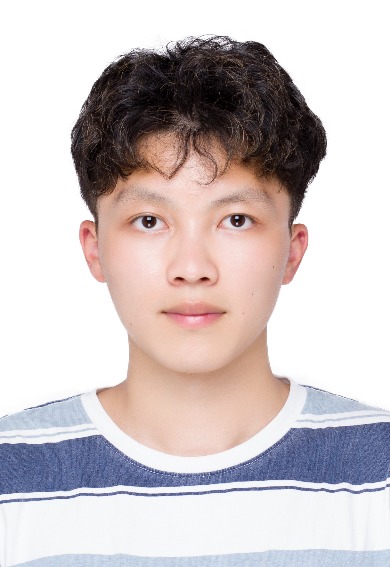 16:00~16:10
Xu Gao (National University of Singapore, Singapore)
Confined migration drives stem cell epigenetics and differentiation
16:00~16:10
Xu Gao (National University of Singapore, Singapore)
Confined migration drives stem cell epigenetics and differentiation
- Session TrackBiomaterials for industrial applications
- Session TitleBiomaterials' challenges: From academia to industry
- Session CodeSP-T09-0320
- Date & Time / RoomMay 28 (Tue) 16:30~18:00 / Room 320-B
Biomaterials' challenges: From academia to industry
In recent years, there have been tremendous advances in the fields of biomaterials’ design as well as 3D bioprinting and biofabrication. Nevertheless, a large part of conducted research output remains in academia and never makes it to the clinic. This is in part related to a lack of standardization and reproducibility of biomaterials and associated protocols. Many companies are focusing on the development of 3D-printing hardware which enables the creation of biomaterial-based patient-specific implants and medical devices. More recently, also industrial efforts have emerged regarding the commercialization of available biomaterials and bio(material) ink formulations. Especially, when targeting high resolution, light-based technologies have gained increasing interest.
The keynote lecture will be focussing on the spin-off BIO INX. BIO INX was launched in April 2022 focusing on the commercialization of highly performing bioinks serving multiple printing technologies going from low to high resolution. In this respect, a lot of aspects had to be taken into consideration, which are typically overlooked when working in academia.
The proposed symposium will address all contributions involving industrial translation of academic findings. We aim to address both early career PhD students, post-doctoral researchers, but also clinicians, policy makers and industry to find out about the journey from academic researcher to entrepreneur, and getting insight in the needs for successful industrial translation to happen. We envision that our symposium will inspire academic researchers to become more active in translational efforts. In addition, the proposed symposium will form an excellent base for networking between scientists and industry which will give rise to the establishment of novel collaborations and at the same time, will ensure that biomaterials’ researchers will consider the need for industrial translation at all times throughout a developmental trajectory pursued in academia. The symposium thus seamlessly fits the overall theme of WBC featuring convergence in biomaterials.
- Organizer
-
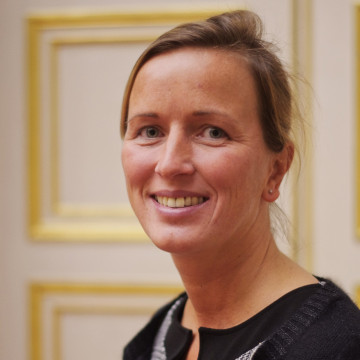 Sandra Van Vlierberghe (Ghent University, Belgium)
Sandra Van Vlierberghe (Ghent University, Belgium)
- Chair
-
 Sandra Van Vlierberghe (Ghent University, Belgium)
Sandra Van Vlierberghe (Ghent University, Belgium)
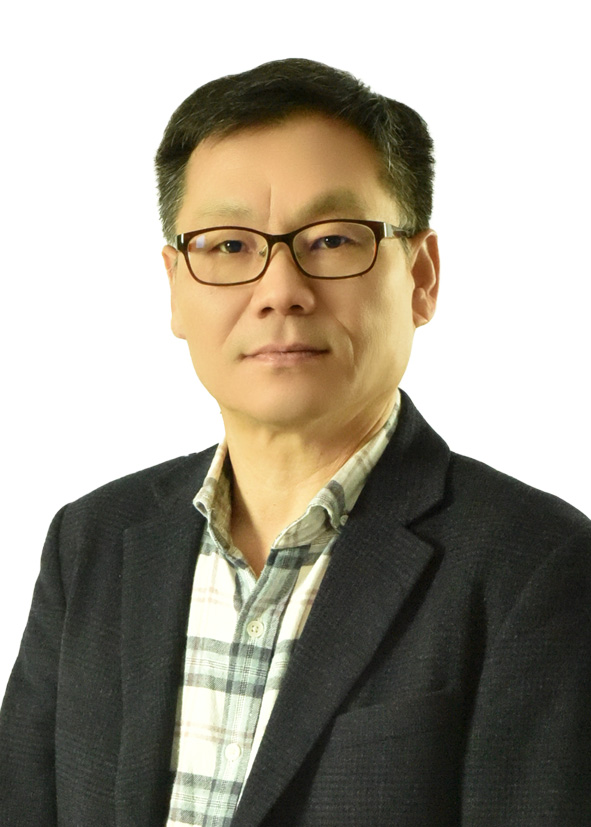 Insup Noh (Seoul National University of Science and Technology, Korea, Republic of)
Insup Noh (Seoul National University of Science and Technology, Korea, Republic of)
- Keynote Speaker
-
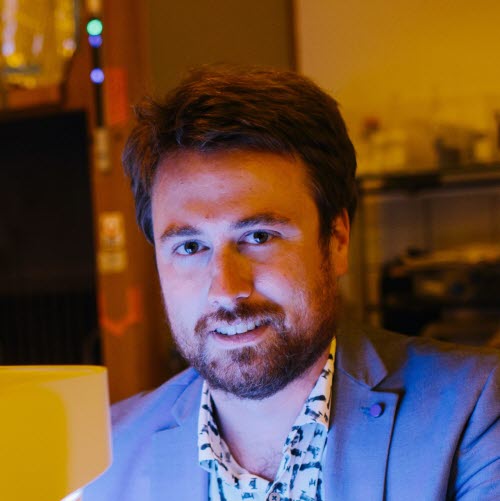 16:30~16:55
Jasper Van Hoorick (BIO INX, Belgium)
From BIO INK to BIO INCorporation: the launch of BIO INX
16:30~16:55
Jasper Van Hoorick (BIO INX, Belgium)
From BIO INK to BIO INCorporation: the launch of BIO INX
Jasper Van Hoorick
(BIO INX, Belgium) Jasper Van Hoorick graduated as master in Chemistry in 2014 with a major in Molecular and Macromolecular design and a minor in Industry and Management. In his master thesis he focussed on the development of materials for tissue engineering purposes for which he received the 2014 Agoria award for technological master dissertations as part of the Vlaamse Scriptieprijs. Thanks to this award he completed an executive masterclass in Innovation and Entrepreneurship at Vlerick business school in 2015. In 2015 he secured funding from the FWO (Research Foundation Flanders) for a joint PhD project between the Polymer Chemistry & Biomaterials Research group (PBM) at Ghent University and Brussels Photonics (B-PHOT) at the Vrije Universiteit Brussel. In his PhD he focussed on the development of novel biodegradable polymer materials and their processing into membranes for ocular tissue regeneration thereby taking advantage of (high resolution) additive manufacturing using laser based multiphoton lithography 3D printing (2PP). He co-authored over 30 Web of Science Core Collection cited papers, 1 book chapter and co-edited one book. Additionally, he attended multiple international conferences to present the results he obtained during his PhD, and obtained funding for 5 international research stays in Vienna, Austria (Prof. Dr. Aleksandr Ovsianikov) to perform 2PP experiments. Finally, the work performed during his PhD also resulted in the filing of 2 patents. In 2018 he aided in consolidating FWO funding thereby aiming to further develop the corneal membranes towards (pre)clinical applications. In 2019 he completed his PhD with greatest honours for which he was awarded a Solvay award in 2020 and a Julia Polak Award in 2021. Additionally, he was a finalist in the Flemish PhD cup in 2021. After his PhD, he secured funding for a post-doc position at Ghent University towards the preparation of a spin-off company. In 2022, the spin-off company BIO INX was launched, which he leads as CEO. BIO INX focusses on the development and commercialisation of biomaterials and bio inks for 3D bioprinting with applications in regenerative medicine. It made the finals of the 2022 RSC Emerging Technologies Competition in 2022 and was elected in 2023 as UNIZO East-Flanders Start-up of the year.
Jasper Van Hoorick graduated as master in Chemistry in 2014 with a major in Molecular and Macromolecular design and a minor in Industry and Management. In his master thesis he focussed on the development of materials for tissue engineering purposes for which he received the 2014 Agoria award for technological master dissertations as part of the Vlaamse Scriptieprijs. Thanks to this award he completed an executive masterclass in Innovation and Entrepreneurship at Vlerick business school in 2015. In 2015 he secured funding from the FWO (Research Foundation Flanders) for a joint PhD project between the Polymer Chemistry & Biomaterials Research group (PBM) at Ghent University and Brussels Photonics (B-PHOT) at the Vrije Universiteit Brussel. In his PhD he focussed on the development of novel biodegradable polymer materials and their processing into membranes for ocular tissue regeneration thereby taking advantage of (high resolution) additive manufacturing using laser based multiphoton lithography 3D printing (2PP). He co-authored over 30 Web of Science Core Collection cited papers, 1 book chapter and co-edited one book. Additionally, he attended multiple international conferences to present the results he obtained during his PhD, and obtained funding for 5 international research stays in Vienna, Austria (Prof. Dr. Aleksandr Ovsianikov) to perform 2PP experiments. Finally, the work performed during his PhD also resulted in the filing of 2 patents. In 2018 he aided in consolidating FWO funding thereby aiming to further develop the corneal membranes towards (pre)clinical applications. In 2019 he completed his PhD with greatest honours for which he was awarded a Solvay award in 2020 and a Julia Polak Award in 2021. Additionally, he was a finalist in the Flemish PhD cup in 2021. After his PhD, he secured funding for a post-doc position at Ghent University towards the preparation of a spin-off company. In 2022, the spin-off company BIO INX was launched, which he leads as CEO. BIO INX focusses on the development and commercialisation of biomaterials and bio inks for 3D bioprinting with applications in regenerative medicine. It made the finals of the 2022 RSC Emerging Technologies Competition in 2022 and was elected in 2023 as UNIZO East-Flanders Start-up of the year.
- Invited Speaker
-
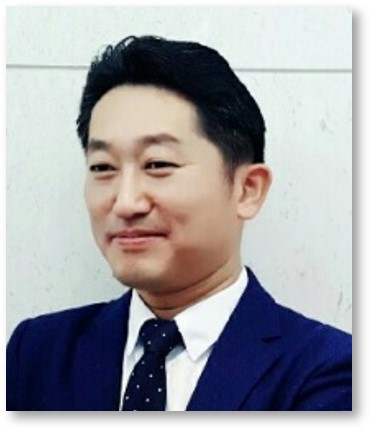 16:55~17:10
Yong Woo Cho (Hanyang University, Korea, Republic of)
Taking exosome therapeutics from academia to industry
16:55~17:10
Yong Woo Cho (Hanyang University, Korea, Republic of)
Taking exosome therapeutics from academia to industry
Yong Woo Cho
(Hanyang University, Korea, Republic of) Yong Woo CHO PhD is a Professor, Department of Materials Science and Chemical Engineering, Hanyang University ERICA and CEO of ExoStemTech Inc, South Korea. He got BS, MS, and PhD degrees from School of Engineering, Seoul National University. He worked for KIST (Korea Institute for Science and Technology) and Purdue University as a Post Doc. Since 2006, he has been working for Hanyang University ERICA. His research interest is exosome-based therapeutics, focused on regenerative medicine using stem cell exosomes and exosome-based protein/RNA delivery systems. In 2016, he founded a bio-venture company, ExoStemTech Inc., for the clinical development of exosome therapeutics and is currently developing several exosome products for the treatment of osteoarthritis, tendinitis, lung fibrosis, Parkinson’s disease, etc.
Yong Woo CHO PhD is a Professor, Department of Materials Science and Chemical Engineering, Hanyang University ERICA and CEO of ExoStemTech Inc, South Korea. He got BS, MS, and PhD degrees from School of Engineering, Seoul National University. He worked for KIST (Korea Institute for Science and Technology) and Purdue University as a Post Doc. Since 2006, he has been working for Hanyang University ERICA. His research interest is exosome-based therapeutics, focused on regenerative medicine using stem cell exosomes and exosome-based protein/RNA delivery systems. In 2016, he founded a bio-venture company, ExoStemTech Inc., for the clinical development of exosome therapeutics and is currently developing several exosome products for the treatment of osteoarthritis, tendinitis, lung fibrosis, Parkinson’s disease, etc.
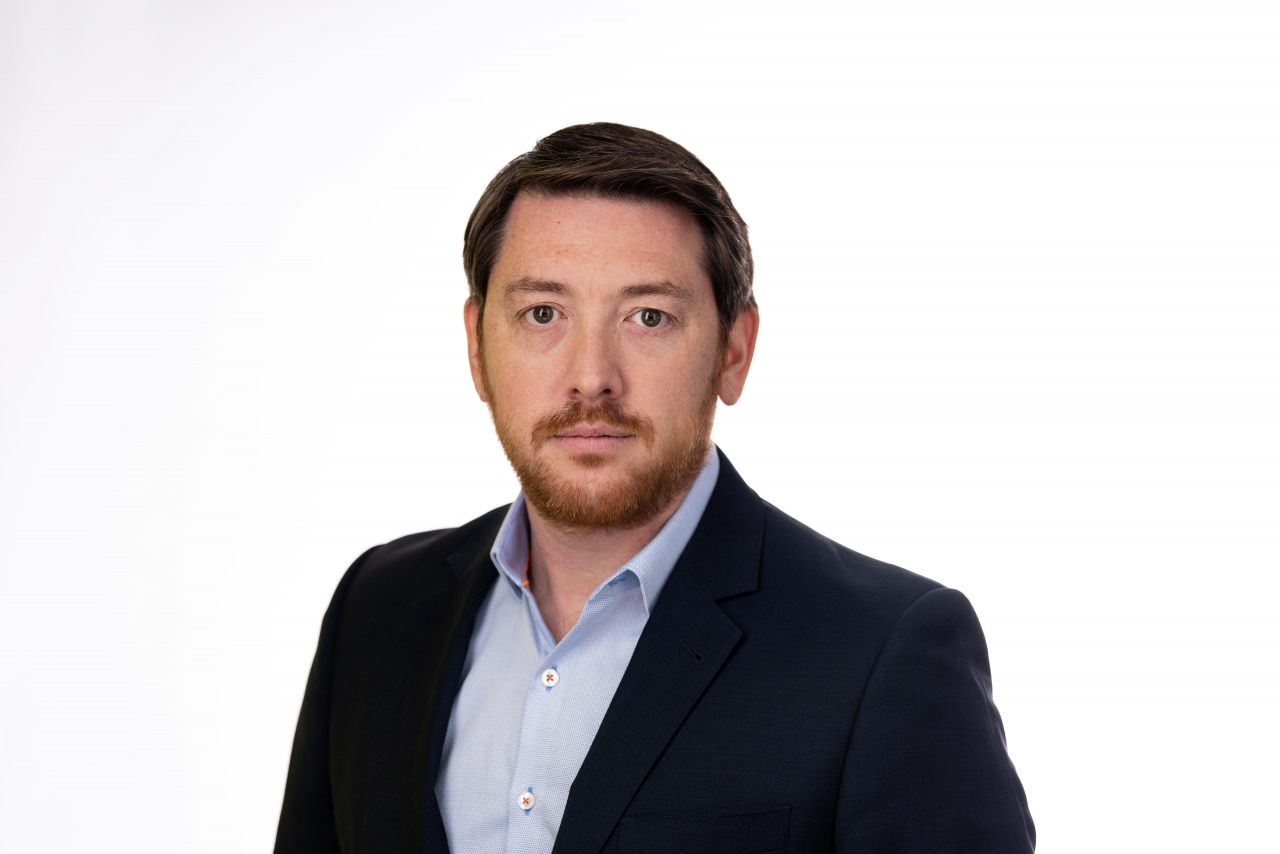 17:10~17:25
Chris Wattengel (Collagen Solutions, United Kingdom)
Academia, Start-Ups, CDMOs, CROs and Strategics: The challenge of translating innovative biomaterials to the clinic
17:10~17:25
Chris Wattengel (Collagen Solutions, United Kingdom)
Academia, Start-Ups, CDMOs, CROs and Strategics: The challenge of translating innovative biomaterials to the clinic
Chris Wattengel
(Collagen Solutions, United Kingdom) Chris Wattengel is Global Vice President of R&D for Collagen Solutions. He is a seasoned medical device industry innovator and leader with over 20 years of experience in product and business development. He has led R&D teams from concept through commercialization, and been involved with bringing over 10 product families to market.
Chris Wattengel is Global Vice President of R&D for Collagen Solutions. He is a seasoned medical device industry innovator and leader with over 20 years of experience in product and business development. He has led R&D teams from concept through commercialization, and been involved with bringing over 10 product families to market.
- Oral Presenter
-
 17:25~17:35
Ana Maria Porras (University of Florida, USA)
Evaluating Global Participation in Biomaterials Science: Addressing Disparities in Authorship and Editorial Boards
17:25~17:35
Ana Maria Porras (University of Florida, USA)
Evaluating Global Participation in Biomaterials Science: Addressing Disparities in Authorship and Editorial Boards
 17:35~17:45
Terry Steele (Nanyang Technological University, Singapore)
Double network bioadhesives for tissue adhesion
17:35~17:45
Terry Steele (Nanyang Technological University, Singapore)
Double network bioadhesives for tissue adhesion
 17:45~17:55
Jihoon Ha (Kolmar Korea, Korea, Republic of)
The Impact of Salt on the Skin Adhesion Properties of Cosmetic Acrylic Polymer Gels
17:45~17:55
Jihoon Ha (Kolmar Korea, Korea, Republic of)
The Impact of Salt on the Skin Adhesion Properties of Cosmetic Acrylic Polymer Gels
- Session TrackBiomaterials for industrial applications
- Session TitleBiomaterials-based startups for tissue engineering
- Session CodeSP-T09-0103
- Date & Time / RoomMay 29 (Wed) 13:40~15:10 / Room 320-B
Biomaterials-based startups for tissue engineering
1) Objectives or purposes
Obhectives of this session is to introduce academic-based startup companies and their biomaterials technologies from the new companies with less than 3 years history after setups.
2) Proposed program and intended audience
Proposed program:
- The program title is biomaterials-based startups.
- The company should be recently setup (e.g. within 3 years).
- presentation content is startup-related issues such as biomaterials, technlogies, applications, markets such as medical devices and tissue engineering and others, and other issues in approval from FDA, commericalization of biomaterials in market.
Intended audience: graduate students, businessmans and researchers from both academics and industrial companies.
3) Expected outcomes and relevance to the main topic of WBC 2024
- This session will make connections between startup companies and academic researches by showing how to setup and grow biomateirals-based new companies in worldwide.
- Market trends and career development
- Organizer
-
 Insup Noh (Seoul National University of Science and Technology, Korea, Republic of)
Insup Noh (Seoul National University of Science and Technology, Korea, Republic of)
- Chair
-
 Insup Noh (Seoul National University of Science and Technology, Korea, Republic of)
Insup Noh (Seoul National University of Science and Technology, Korea, Republic of)
 Xiumei Wang (Tsingua University, China)
Xiumei Wang (Tsingua University, China)
 Sandra Van Vlierberghe (Ghent University, Belgium)
Sandra Van Vlierberghe (Ghent University, Belgium)
- Keynote Speaker
-
 13:40~14:05
Insup Noh (Seoul National University of Science and Technology, Korea, Republic of)
Control of in situ bioprinting for even cell distribution and mechanical properties of tissue engineering scaffold by 3D bioprinting pen
13:40~14:05
Insup Noh (Seoul National University of Science and Technology, Korea, Republic of)
Control of in situ bioprinting for even cell distribution and mechanical properties of tissue engineering scaffold by 3D bioprinting pen
Insup Noh
(Seoul National University of Science and Technology, Korea, Republic of) Insup Noh is a professor at the Department of Chemical and Biomolecular Engineering and a chief professor/founder of the Convergence Institute of Biomedical Engineering and Biomaterials of Seoul National Univ. of Science & Technology (Korea). After both receiving his MS and Ph.D. degrees in the areas of biomaterials for tissue engineering from the Univ. of Texas at Austin (1994) and working at the California Institute of Technology(Caltech, 1995-1997) as a special graduate student under J.A. Hubbell, he had done researches with E.R. Edelman in the division of Harvard-MIT Health Science and Technology as a postdoctoral researcher for local drug delivery in cardiovascular diseases(1997-1999). Professor Insup Noh’s expertise lies in the area of functional biomaterials for bone and cartilage tissue engineering by using in situ 3D bioprining technology with diverse bioinks. He served the president of the Korean Society for Biomaterials(2020) and the editor-in-chief of Biomaterials Research (2012-2019, Springer-Nature, UK) and is the president/founder of MatrixCellBio Inc., Korea, and a IUSBSE KSBM delegate.
Insup Noh is a professor at the Department of Chemical and Biomolecular Engineering and a chief professor/founder of the Convergence Institute of Biomedical Engineering and Biomaterials of Seoul National Univ. of Science & Technology (Korea). After both receiving his MS and Ph.D. degrees in the areas of biomaterials for tissue engineering from the Univ. of Texas at Austin (1994) and working at the California Institute of Technology(Caltech, 1995-1997) as a special graduate student under J.A. Hubbell, he had done researches with E.R. Edelman in the division of Harvard-MIT Health Science and Technology as a postdoctoral researcher for local drug delivery in cardiovascular diseases(1997-1999). Professor Insup Noh’s expertise lies in the area of functional biomaterials for bone and cartilage tissue engineering by using in situ 3D bioprining technology with diverse bioinks. He served the president of the Korean Society for Biomaterials(2020) and the editor-in-chief of Biomaterials Research (2012-2019, Springer-Nature, UK) and is the president/founder of MatrixCellBio Inc., Korea, and a IUSBSE KSBM delegate.
- Invited Speaker
-
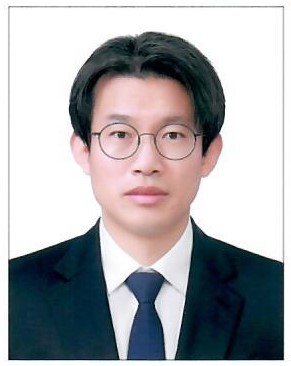 14:05~14:20
Chul-Su Yang (Hanyang University, Korea, Republic of)
Colon-targeted S100A8/A9-specific peptide systems ameliorate colitis and colitis-associated colorectal cancer in mouse models
14:05~14:20
Chul-Su Yang (Hanyang University, Korea, Republic of)
Colon-targeted S100A8/A9-specific peptide systems ameliorate colitis and colitis-associated colorectal cancer in mouse models
Chul-Su Yang
(Hanyang University, Korea, Republic of) Dr. Chul-Su Yang who professor of Infection Biology Lab at Dept. of Medicinal and Life Science, Hanyang University.
Dr. Chul-Su Yang who professor of Infection Biology Lab at Dept. of Medicinal and Life Science, Hanyang University.
Research interests as below,
1. Microbial pathogenesis and host responses. (1) Molecular and cellular pathogenesis of intracellular microbes infection especially on Mycobacteria, Listeria, Candida, Toxoplasma, Influenza infection (2) Signal transduction mechanisms in immune and inflammatory responses (3) Molecular and immunopathogenesis in neuroinflammatory diseases.
2. Host-pathogen functional interactions and its therapeutic strategies. (1) The role of ROS-generating NADPH oxidases activation and expression (2) Exploring of cell death and autophagy pathways in microbial infection (3) The role of nuclear receptors in innate immunity (4) The role of mitochondria and autophagy in innate immunity.
3. Molecular engineering of Peptide-Drug Conjugates for therapeutics. (1) Peptide and protein therapeutics (2) Pharmaceutics drug delivery and targeting
- Oral Presenter
-
 14:20~14:30
Xiumei Wang (Tsinghua University, China)
Multifunctional aligned nanofiber hydrogels deliver multimodal cell-regulatory signals for nerve regeneration
14:20~14:30
Xiumei Wang (Tsinghua University, China)
Multifunctional aligned nanofiber hydrogels deliver multimodal cell-regulatory signals for nerve regeneration
 14:30~14:40
William Oates (University of Manchester, United Kingdom)
Microfluidic bioreactors for the sustainable development of local drug delivery systems
14:30~14:40
William Oates (University of Manchester, United Kingdom)
Microfluidic bioreactors for the sustainable development of local drug delivery systems
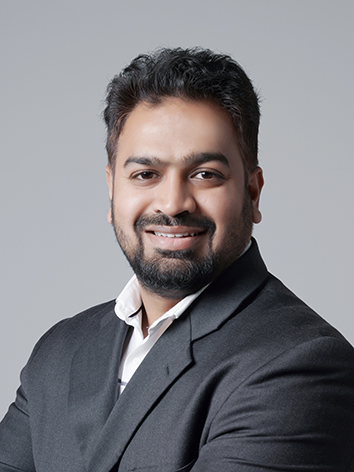 14:40~14:50
Vikas Sharma (Pohang University of Science and Technology, Korea, Republic of)
Flow-based downstream processing of in vitro transcribed mRNA and comparative assessment
14:40~14:50
Vikas Sharma (Pohang University of Science and Technology, Korea, Republic of)
Flow-based downstream processing of in vitro transcribed mRNA and comparative assessment
Vikas Sharma
(Pohang University of Science and Technology, Korea, Republic of) Dr. Vikas Sharma currently holds a postdoctoral fellow position within the CIMPS group at the Chemical Engineering department of Pohang University of Science and Technology, South Korea. He earned his Ph.D. in Biotechnology from National Institute of Technology Raipur, India, where his research focused on the production and purification of thermostable enzymes. He then served CSIR-IITR, India, as a Senior Project Associate, and was also awarded the prestigious SERB-NPDF postdoctoral fellowship by the Government of India. He has published his works in reputed journals, such as Bioresource Technology, Renewable Energy, Chemosphere and Journal of Bioscience and Bioengineering. His research interests lie in developing innovative solutions for upstream and downstream processing of biopharmaceuticals utilizing microfluidics and scale-up modules.
Dr. Vikas Sharma currently holds a postdoctoral fellow position within the CIMPS group at the Chemical Engineering department of Pohang University of Science and Technology, South Korea. He earned his Ph.D. in Biotechnology from National Institute of Technology Raipur, India, where his research focused on the production and purification of thermostable enzymes. He then served CSIR-IITR, India, as a Senior Project Associate, and was also awarded the prestigious SERB-NPDF postdoctoral fellowship by the Government of India. He has published his works in reputed journals, such as Bioresource Technology, Renewable Energy, Chemosphere and Journal of Bioscience and Bioengineering. His research interests lie in developing innovative solutions for upstream and downstream processing of biopharmaceuticals utilizing microfluidics and scale-up modules.
14:50~15:00 Elaine Duncan (Paladin Medical, Inc. & Adjunct Professor, F. Joseph Halcomb III, M.D. Department of Biomedical Engineering Pigman College of Engineering, University of Kentucky, USA) Has Determination of Biocompatibility Been Hijacked? Biomaterial Scientists Take Heed
Elaine Duncan
(Paladin Medical, Inc. & Adjunct Professor, F. Joseph Halcomb III, M.D. Department of Biomedical Engineering Pigman College of Engineering, University of Kentucky, USA)Ms. Duncan enables large and small companies alike to acquire US FDA clearance and approval by guiding teams to establishing programs of Design Control and Review, teaching and establishing Quality Systems, developing protocols and reports of pre-clinical and clinical studies for new devices and planning biocompatibility testing, verification, validation and human factors studies. From her wide experience in medical device technology, encompassing implantable devices, biomaterials such as bone void fillers, textiles and magnetic materials, software and electronics and assistive device technologies, she serves as a trainer and instructor to medical device development peers and university students. Ms. Duncan has given numerous lectures, written many trade-journal articles and authored book chapters, including, three chapters in the 4th Edition of Biomaterials Science (C 2020.) Ms. Duncan has been recognized for her service to the advancement of biomaterials and medical device science throughout her years of service.
 15:00~15:10
Andrea Mele (University of Sheffield, United Kingdom)
PHAsT: revolutionizing medical devices
15:00~15:10
Andrea Mele (University of Sheffield, United Kingdom)
PHAsT: revolutionizing medical devices
Industry symposium
- Session TrackLuncheon Seminar
- Session TitleCompany Seminar (Genoss)
- Session CodeSP-T14-0461
- Date & Time / RoomMay 29 (Wed) 12:20~13:10 / Room 325-AB
Company Seminar (Genoss)
Genoss: an innovating company with a variety of advanced medical devices
Making Invests 30% of the annual revenue in R&D every year, GENOSS has pushed ahead with staffing itself with outstanding research professionals from around the world and developing the world's best products.
Our vision is creating the best products and service for contributing to promotion of human health as a representative of Korean medical device companies.
GENOSS will develop competitive bioproducts to make them strong players in the global market.
GENOSS will keep focusing on developing medical instruments that fit to the globalization by relying on our willingness to face challenges and also become the world-leading company with innovative value creation through constant R&D on the bio industry.
We promise our growth into the most enterprising company that stands in our global customers’ shoes and values talents, technology and the environment.
- Invited Speaker
-
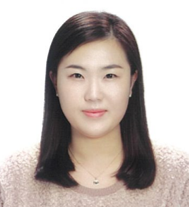 LS2-1-1
Seong-Ok Na (GENOSS, Korea, Republic of)
LS2-1-1
Seong-Ok Na (GENOSS, Korea, Republic of)
Seong-Ok Na
(GENOSS, Korea, Republic of) I work as a researcher at the R&D center of Genoss, a medical device manufacturing company.
I work as a researcher at the R&D center of Genoss, a medical device manufacturing company.
While in charge of developing implantable medical devices, she led and participated in several projects for industrialization of biocompatible medical devices.
- Session TrackLuncheon Seminar
- Session TitleCompany Seminar (Dentium)
- Session CodeSP-T14-0460
- Date & Time / RoomMay 30 (Thu) 12:20~13:10 / Room 325-AB
Company Seminar (Dentium)
Collagen matrix (Collagen graft 2) vs Collagen membrane
‘Gingival augmentation using collagen matrix’, which was recognized as a new medical technology from Korean Ministry of Health and Welfare in 2023 has been spreading widely in the Korean dental community attracting attention as a simple yet effective periodontal plastic surgery.
This collagen matrix has been used in Europe and the United States for periodontal plastic surgery for a long time, and its effectiveness has been proven in previous studies. Recently, various indications other than periodontal plastic surgery have been introduced in Korea; 1) indications for alveolar ridge preservation, and 2) indications for ridge augmentation instead of barrier membranes. A recent experiment conducted at the Department of Periodontology at Seoul National University showed that collagen matrix was superior to barrier membranes in ridge preservation procedure (Sci Rep. 2024 Jan 2;14(1):163).
In this lecture, clinical cases with various indications, and supporting studies about collagen matrix (Collagen graft 2) will be discussed.
- Invited Speaker
-
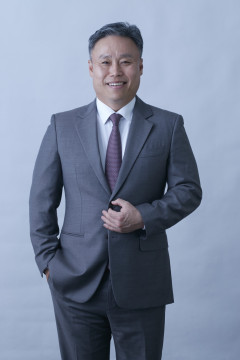 12:20~13:10
Sung-Tae Kim (Seoul national university School of Dentistry, Korea, Republic of)
12:20~13:10
Sung-Tae Kim (Seoul national university School of Dentistry, Korea, Republic of)
Sung-Tae Kim
(Seoul national university School of Dentistry, Korea, Republic of) Dentist, Periodontist, Prosthodontist, Tenured professor in Seoul National University School of Dentistry and Seoul National University Dental Hospital
Dentist, Periodontist, Prosthodontist, Tenured professor in Seoul National University School of Dentistry and Seoul National University Dental Hospital
- Session TrackLuncheon Seminar
- Session TitleCompany Seminar (DENTIS / Dalim Tissen)
- Session CodeSP-T14-0467
- Date & Time / RoomMay 28 (Tue) 12:20~13:10 / Room 325-CD
Company Seminar (DENTIS / Dalim Tissen)
Company Seminar 2 (Dalim Tissen)
During spinal surgery, it is important to achieve accurate and rapid haemostasis to reduce operation and anaesthesia time and maintain patients’ haemodynamic equilibrium, in order to decrease the occurrence of complications. CollaStat, a thrombin-containing collagen-based topical hemostatic agent, is a paste-like flowable hemostatic matrix which exhibits both passive and active blood coagulation mechanisms of action. Collagen granules of CollaStat have a physical compression effect by swelling up on contact with blood, and act as a matrix for fibrin clot formation. And the thrombin triggers the biological reaction which initiates the innate coagulation cascade while collagen supports complete activation and adhesion of platelets. CollaStat is ready to be used within 60 seconds by a simple preparation step comprising of syringe connecting and mixing, without a time-consuming thrombin reconstitution step. This simple preparation step of CollaStat may significantly reduce the preparation time compared with those of other flowable hemostats, which require an additional thrombin reconstitution step. Furthermore, flowable characteristics of CollaStat facilitated its application in irregular and small spaces, filling deep lesions, and removing excessive material by irrigation. As demonstrated in various clinical studies, CollaStat was shown to have rapid, safe, and effective hemostasis in spinal surgery.
- Invited Speaker
-
 12:20~12:45
Inhae Shin (Human Materials R&D Team, Korea, Republic of)
12:20~12:45
Inhae Shin (Human Materials R&D Team, Korea, Republic of)
 In Bo Han (CHA Univ. School of Medicine, Korea, Republic of)
In Bo Han (CHA Univ. School of Medicine, Korea, Republic of)
- Session TrackLuncheon Seminar
- Session TitleCompany Seminar (MAVERICK / Desktop Health™)
- Session CodeSP-T14-0464
- Date & Time / RoomMay 28 (Tue) 12:20~13:10 / Room 322
Company Seminar (MAVERICK / Desktop Health™)
Company Seminar 1 (MAVERICK)
Telocollagen additives for Regenerative Medicine seen through a Dental Device Lens
Collagen represents 30% of the protein found in the human body and is the most abundant structural protein in the extracellular matrix, being mainly found in connective tissue such as cartilage, bones, tendons, ligaments, and skin. It contributes much to the ease of handling, formability, and volume stability in many major bone graft substitute products, which are typically based on the natural combination of mineral hydroxyapatite with collagen type I. Fibroblasts produce 28 different types of collagen, each consisting of a linear sequence of amino acids connected to form a highly stable triple helix and each with its own specific biological function. In addition, through its highly evolved cell recognition properties collagen greatly accelerates bone formation, wound healing, and tissue regeneration. The advantages of using xenogenic collagen are manifold, including sustainable supply, usability, biocompatibility, biodegradability, low immunogenicity, cellular porosity and, most importantly, regulatory acceptability. As a consequence, collagen-based products are widely used in all aspects of tissue engineering. This lecture will review the functional biological properties of collagen, its current commercial use, and the future perspectives of collagen-based products in bone and tissue regeneration.
Company Seminar 2 (Desktop Health™)
Designing patterns for tubular scaffolds using the 3D-Bioplotter’s PrintRoll system
The process for the preparation of scaffold fabrication using a bioprinter is well established. Starting from STL or 3MF files, these can be loaded onto the bioprinter’s software, sliced into layers, and a pre-programmed pattern can be applied to the layers using the technician’s input to meet specific mechanical or biological requirements. These parts can then be printed either onto flat substrates (plastic films, well plates, petri dishes, etc.) or in buoyancy-providing baths.
Nevertheless, this method poses great restrictions on the fabrication of porous tubular scaffolds. Most academic users will print a flat scaffold and roll them into the necessary cylindrical shape, fusing the ends together.
Desktop Health has recently released the PrintRoll upgrade for its modular bioprinter, the 3D-Bioplotter. This platform attachment allows the user to print directly onto a rotating stainless-steel mandrel, available in different diameters. Tubular scaffolds fabricated on the 3D-Bioplotter with PrintRoll can have complex patterns, bestowing them with different mechanical properties like stretchability, compressibility, flexibility, bendability, and shrinkage, as well as biological characteristics.
In this lecture the process for designing these complex patterns using the Desktop Health’s 3D-Bioplotter’s software will be presented.
- Invited Speaker
-
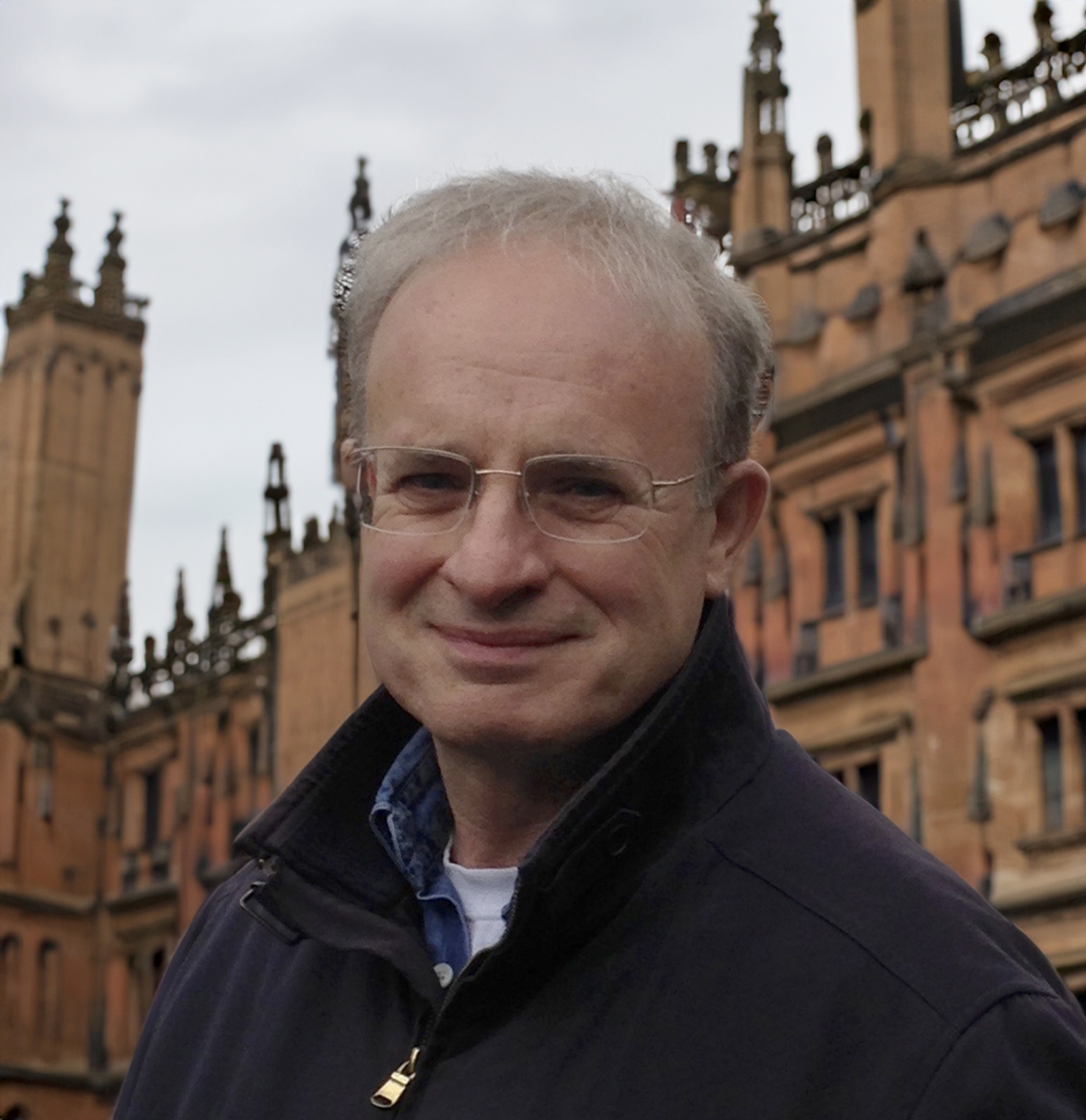 12:20~12:45
Terance Hart (Maverick Biosciences, United Kingdom)
12:20~12:45
Terance Hart (Maverick Biosciences, United Kingdom)
Terance Hart
(Maverick Biosciences, United Kingdom) Dr Hart worked for over 30 years in Pharmaceutical Research for global companies such as Sanofi-Genzyme and Novartis as well as in many different Biotech companies, where he led teams in their discovery of new pharmaceuticals.
Dr Hart worked for over 30 years in Pharmaceutical Research for global companies such as Sanofi-Genzyme and Novartis as well as in many different Biotech companies, where he led teams in their discovery of new pharmaceuticals.
During the last 14 years he was for 10 years Chief Scientific Officer for Geistlich Pharma in Switzerland, where the R&D team brought through important, innovative collagen based products to the dental and tissue regeneration market, including Mucograft, Fibro-Gide and Derma-Gide. Currently he is a Scientific Advisor for Maverick Bioscience and a member of their Scientific Advisory Board. 12:45~13:10
Carlos Carvalho (Desktop Health™, Germany)
12:45~13:10
Carlos Carvalho (Desktop Health™, Germany)
- Session TrackLuncheon Seminar
- Session TitleCompany Seminar (Rousselot / Readily3D)
- Session CodeSP-T14-0462
- Date & Time / RoomMay 29 (Wed) 12:20~13:10 / Room 325-CD
Company Seminar (Rousselot / Readily3D)
Company Seminar 2 (Readily3D)
Tomographic volumetric 3D bioprinting allows building the entire volume of centimer-scale 3D cell- or organoid-laden bioconstructs within less than 30 seconds. This light-based and ultrafast process opens up new opportunities for the biofabrication of complex and functional living constructs thanks to its high viability for both cells and organoids as well as its design freedom.
In recent years, tomographic volumetric bioprinting has for instance been used to build functional hepatic constructs, anatomically correct porous bone models, multi-material perfusable bio-constructs, or even 3D pancreatic cancer models. Thanks to the throughput and repeatability of volumetric bioprinting, such models could be used in a near future for drug development. The scalability of volumetric bioprinting also makes it relevant for regenerative medicine applications.
In this talk, Paul Delrot, PhD, CEO of Readily3D will present the science behind the technology and cover the range of applications enabled by tomographic volumetric 3D bioprinting.
- Invited Speaker
-
 12:45~13:10
Paul Delrot (Readily3D, Switzerland)
12:45~13:10
Paul Delrot (Readily3D, Switzerland)
Paul Delrot
(Readily3D, Switzerland) Paul co-invented the volumetric bioprinting technology at the end of his PhD studies at EPFL in 2017. After transferring what was a lab experiment into a standalone and user-friendly 3D printer, Paul co-founded Readily3D in 2020. Since then, Paul has focused on demonstrating the wide range of applications enabled by volumetric bioprinting while leading product development at Readily3D.
Paul co-invented the volumetric bioprinting technology at the end of his PhD studies at EPFL in 2017. After transferring what was a lab experiment into a standalone and user-friendly 3D printer, Paul co-founded Readily3D in 2020. Since then, Paul has focused on demonstrating the wide range of applications enabled by volumetric bioprinting while leading product development at Readily3D.
